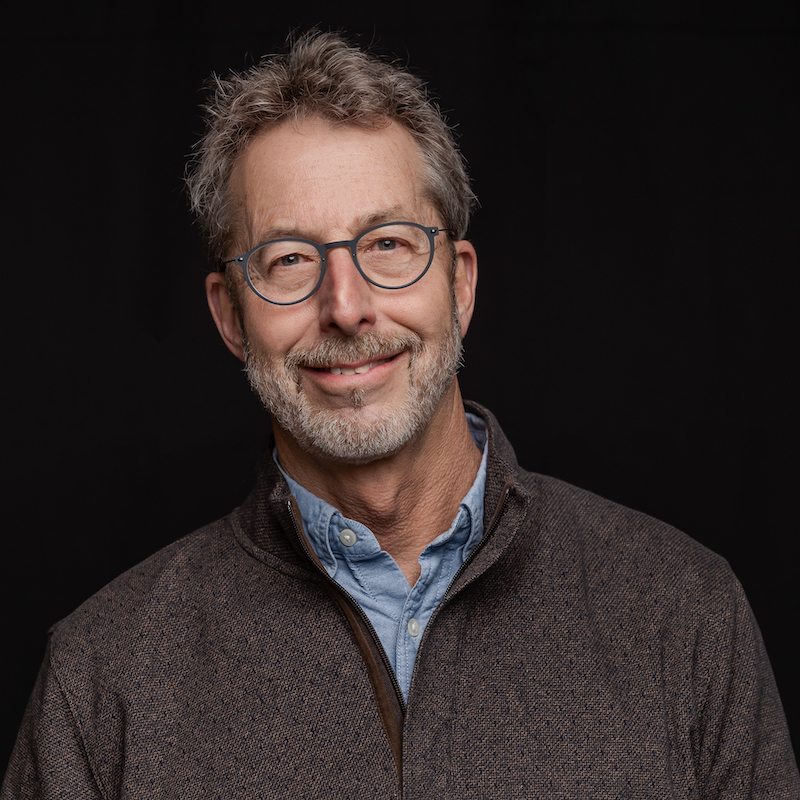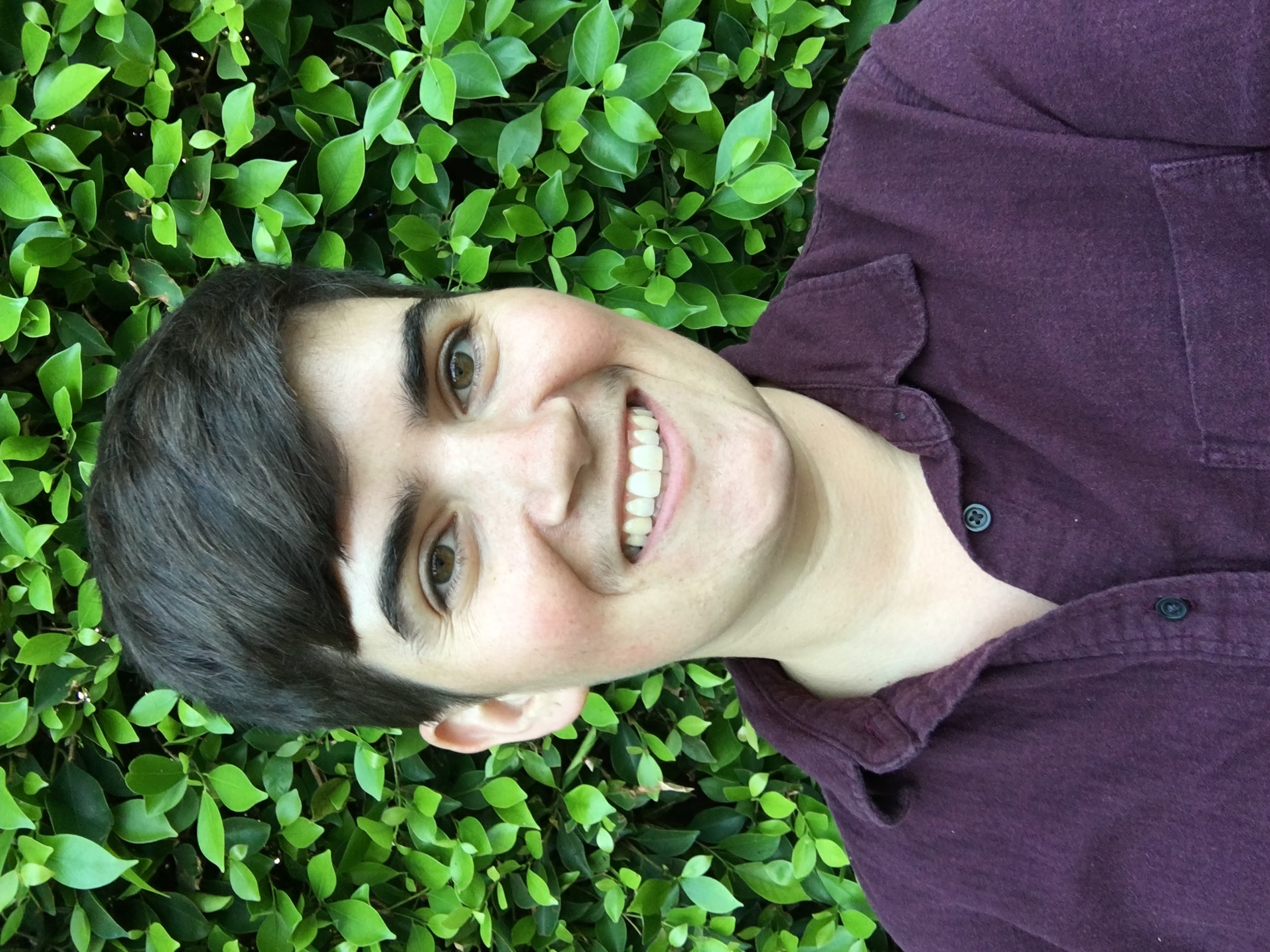Additional details will be added as confirmed.
All times below are US PDT (Pacific Daylight Time) UTC/GMT – 7 hours
Movements Move Mountains: Gender Equity in Tech
8:00am - 9:15am PDT
3 Subsessions
Description
Join us as Dr. Vignetta Charles, CEO of ETR, officially opens YTH Live 2021! We are thrilled to introduce ETR's very own Chris Walker, who will serve as our Master of Ceremonies.Speakers
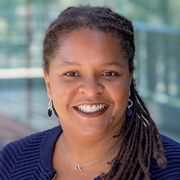
Bio
Vignetta Charles, PhD, is Chief Executive Officer at ETR. Prior to her appointment as CEO, Dr. Charles was Chief Science Officer at ETR–focused on unifying and translating ETR’s science-based approaches to training and research. Her research emphasis is on behavioral health related to the intersection of HIV/AIDS, sexual health and mental health. She came to ETR from AIDS United, where she served as Senior Vice President, guiding strategic programming for the organization, garnering public and private resources for programs, leading efforts to measure and document program outcomes, and developing an expanded portfolio on the translation of science to community. Prior to her work at AIDS United, Dr. Charles developed and rigorously evaluated innovative, theory- and evidence-based sexual and reproductive health and HIV prevention programs.
Bio
Chris Walker is a Project Coordinator at ETR with six years of experience working in HIV/ STI prevention. Currently, he coordinates and provides logistical support for several projects on the HIV, Sexual & Reproductive Health services team. His career began in college while attending the University of Memphis. During his time there, he worked with several campus organizations assisting them in creating on-campus HIV/STI testing events and educational forums on cultural inclusivity. Shortly after graduation, he moved to Dallas, Texas, and took his learned skills to the non-profit world. He was a field supervisor for the CDC-funded National HIV Behavioral Surveillance and has experience working directly with marginalized communities. He has a Master's in Public Health from the University of Texas School of Public Health. With a passion for advocacy, he aspires to fight disparities faced by individuals who lack access to equitable healthcare and education.Description
Our YTH Live Global 2021 keynote address features a conversation with Latanya Mapp Frett, President and CEO of the Global Fund for Women, a global feminist fund. Dr. Vignetta Charles will interview Ms. Frett and explore themes related to gender equity in technology, meaningful youth-led organizing across the globe, and how to address burnout. This conversation is sure to leave you inspired and ready to mobilize as we kick off this year's conference.Speakers
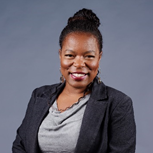
Bio
Latanya Mapp Frett is President and CEO of Global Fund for Women and serves on the Board of Directors for Global Fund for Women and Global Fund for Women UK. As a feminist fund, Global Fund for Women offers flexible support to a diverse group of partners – more than 5,000 groups across 175 countries so far – to create meaningful change that will last beyond our lifetimes. Previously, she was the Executive Director of Planned Parenthood Global, the international arm of Planned Parenthood Federation of America, with regional and country offices in Africa and Latin America. She quadrupled the size of the program in four years to become one of the most innovative and sustainable global health organizations in the field.
Bio
Vignetta Charles, PhD, is Chief Executive Officer at ETR. Prior to her appointment as CEO, Dr. Charles was Chief Science Officer at ETR–focused on unifying and translating ETR’s science-based approaches to training and research. Her research emphasis is on behavioral health related to the intersection of HIV/AIDS, sexual health and mental health. She came to ETR from AIDS United, where she served as Senior Vice President, guiding strategic programming for the organization, garnering public and private resources for programs, leading efforts to measure and document program outcomes, and developing an expanded portfolio on the translation of science to community. Prior to her work at AIDS United, Dr. Charles developed and rigorously evaluated innovative, theory- and evidence-based sexual and reproductive health and HIV prevention programs.Description
Join three members of the Global Fund for Women's Adolescent Girls Advisory Council (AGAC) for an inspiring and change-oriented conversation with young feminist leaders about tangible ways to create a more just world for girls and women. Panelists share their expertise on advising funding decisions and harnessing the power of technology to build stronger, more resilient gender justice movements through COVID-19 and beyond.Speakers

Bio
Besma (Katia) Arbaoui is a pre-med and biology student from Algeria interested in improving healthcare and equity. Some of Katia’s other interests are aviation, entrepreneurship, events management, and diplomatic missions. In 2019, Katia served as a delegate for UNHCR Cyprus. A fun fact about Katia is she loves flying for long periods of time without any hesitation. Currently, Katia volunteers as a mentor at the American Corner, a program sponsored by the US embassy in her city and is an Adolescent Girls Advisor for the AGAC.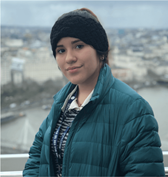
Bio
Marla de la Cruz is a sophomore student at Tecnologico de Monterrey in Mexico, where she pursues a double degree of International Relations & Government and Public Transformation. She is also Campus President of Girl Up Tec de Monterrey and intern at the Institution’s Data Science Hub. Marla has a lot of interests like education accessibility, sexual and reproductive rights, youth, politics, data science, citizen participation, among others. Thus, she doesn’t know exactly what she is going to do in the future, but is sure that she will keep advocating and creating a more inclusive, equitable and sustainable community. One of her fun facts is that she has a technical degree in teaching languages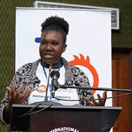
Bio
Yande Banda is a vibrant and passionate girls’ rights activist from Zambia. She is the Co- chairperson of Transform Education, a youth-led coalition hosted by the United Nations Girls Education initiative where she champions education issues and uses her voice for change and is is also a member of the Adolescent Girls’ Advisory Council under the Global Fund for Women as its youngest member where she facilitates grant making processes and advises the Global Fund for Women on their work. In 2019, Yande coauthored an Open letter to social media companies, in collaboration with Plan International Global to end online harassment. This open letter accumulated over 60, 000 signatures and resulted in tangible changes in social media policy. In addition to this, she works actively as a member of the adolescent’s mobilization team of UN Women to advocate for adolescent engagement, education, girls and women's rights issues.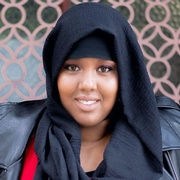
Bio
Deeqa Mohamed is a public and global health professional with a strong passion for sexual and reproductive health research, especially as it relates to women’s empowerment. She received her M.S. in Global Health Sciences from UCSF. Her Master’s thesis research focused on access to and quality of abortion care for young Kenyan women (aged 18-24 years old) in Nairobi. Prior to joining ETR, she spent almost two years working for the San Francisco Department of Public Health in the Substance Use Research Unit learning all the ins and outs of what it takes to manage large scale opioid use and overdose prevention studies. Currently, she is responsible for managing several evaluation projects in the school health and wellness portfolio at ETR.
Beyond your ABC’s: School as a Key Site for Health and Wellness
9:30am - 10:30am PDT
For many youth, schools are their primary center for health education, assessment, and referral for medical care. In this panel, learn about efforts to increase healthcare and health education in a school-based community health model and on a large scale, with recommendations for evaluation.
2 Subsessions
Description
In this interactive workshop, you will learn about the outrageous situation of schools in Latin America, regarding their health promoting practices and conditions, which affect the health, education and wellbeing of millions of students in the region. We will not stay for long with bad news, because after the introduction, we will present a tool, built upon the latest evidence and information technology, to ensure we can transform every school in the region into a health-promoting school, able to contribute to every student being able to survive, thrive and transform. In particular, you will see how this tool can be implemented at a big scale, the products of the tool: automatic and specific school-level reports (which can also be aggregated by geography or other categories), with evidence based recommendations and indicators for monitoring and evaluation.Speaker

Bio
I am a medical doctor who believes that improving the health of children, adolescents and young people has enormous effects in the wellbeing and development of communities. I am the co-founder and CEO of Escalando Salud y Bienestar, a technology-based startup aiming to transform every school into a health-promoting school, with the potential to positively impact the health of millions of adolescents and youth, worldwide.Description
Health and education are the foundation of youth empowerment, which is why Healthy Learners and THINKMD have been collaborating for three years to improve access to both. HL has established a school-based community health model to train and support teachers as school health workers (SHW) and directly connect schools with local MoH health facilities to transform schools into access points for child and adolescent healthcare. THINKMD offers an advanced clinical assessment mobile health (mHealth) platform that enables Healthy Learners SHWs to perform accurate and robust clinical assessments and appropriately identify those who are sick, what illnesses they may have, and if they need to be referred to a local MoH clinic. Learn how this partnership has allowed this program to scale to 70 Zambian schools in Lusaka improving health and education outcomes for over 250,000 school-age children.Speakers
Bio
Barry is a Professor of Pediatrics at the University of Vermont College of Medicine and an Attending and Teaching physician in the Pediatric Inpatient and Critical Care Division at the Vermont’s Children’s Hospital at the University of Vermont Medical Center. He is also the Director of the Global Health and Humanitarian Opportunity Program at the University of Vermont. He has over 25 years of experience as a Pediatrician in the areas of emergency, critical and acute care medicine, with an additional 30 years of experience as a basic, clinical and translational research scientist. He has participated in a numerous research, medical global health and humanitarian projects, as well as capacity building and disaster relief missions in Uganda, Ethiopia, Peru, Jamaica, Bhutan, South Africa, Ecuador, Philippines, Congo, Cameroon, Togo, Benin, Bangladesh and Burkina Faso.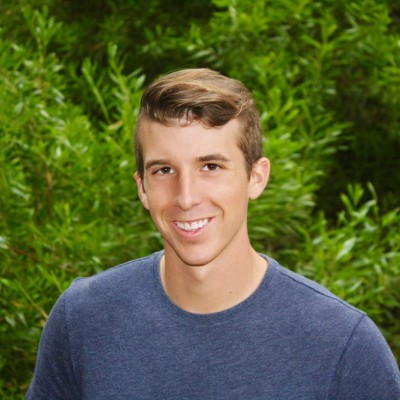
Bio
Lonnie is the President and Co-founder of Healthy Learners in Zambia. Prior to Healthy Learners, Lonnie served as a Global Health Corps fellow with the Centre for Infectious Research in Zambia. Lonnie is a Truman Scholar, Rainer Arnhold Fellow and Draper Richards Kaplan Social Entrepreneur. Lonnie studied Biochemistry at Bowdoin College and International Health and Tropical Medicine from the University of Oxford
How to use Human-Centred Design methods to co-create a youth-driven tech platform for adolescent sexual and reproductive health related content?
9:30am - 10:30am PDT
Join our team of young human-centred designers from across the globe in an engaging workshop that walks through how to use HCD to identify and prototype health-tech products and platforms for youth and adolescents. You will learn about innovative existing solutions from three projects in three countries, and how HCD takes novel and empathetic approaches to understand your users and get better results. Participants will be guided through a prototyping session in groups, where they will learn how to generate and use youth/adolescent insights, and co-create and prototype innovative solutions using real-life examples. Not only will participants learn new HCD approaches, but they’ll experience them firsthand in this interactive, design-focused session. Come together with other youth, designers, tech developers, and global health implementers, to improve health outcomes by creating products and solutions that are desirable, accessible, and useable for youth and adolescents.
Speakers
Bio
Bio
Bio
Tell me about it: Storytelling in digital health education
9:30am - 10:30am PDT
The role of story-telling in youth health cannot be understated. It’s critical that we fine-tune the narratives that we weave, be that through social media monitoring and social listening, culturally competent interventions that center youth, or through youth-centered design. Our panelists know just how to tell a story worth listening to, and they have the knowledge, experience, and perhaps most importantly—the tools needed to do so.
3 Subsessions
Description
Social media monitoring and social listening – through platforms including Twitter and Facebook – are relatively recent additions to the public health monitoring, evaluation, research and learning toolbox. We describe how these techniques were used to inform design, monitor, and evaluate the impact of the youth-led mass and social media campaign, Merci Mon Héros. The campaign promotes intergenerational communication about RH/FP in Francophone Africa, and encourages gender and social norms that facilitate youth RH/FP service access. Central to the campaign are short testimonial videos and online content that detail real-life youth RH/FP experiences, and celebrate adults who overcome taboos to support young people to access RH/FP information and services. With the global increase in social media use and its role in rapidly spreading accurate and inaccurate health information, we contribute to advancing the field’s understanding of how these tools can inform youth-focused social media campaigns.Speakers
.jpg)
Bio
Martha Silva has over 15 years of experience in international public health in the non-profit sector, academic institutions, and independently as a research and evaluation consultant. Her research focus includes health services research and social and behavior change evidence generation for program and policy improvement.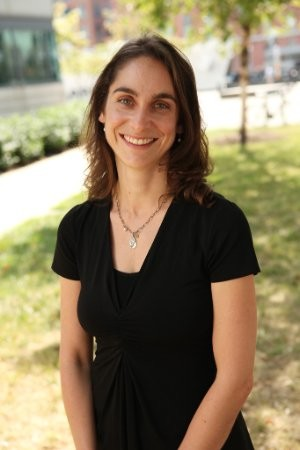
Bio
Erin Portillo is a Senior Program Officer with the Johns Hopkins Center for Communication Programs, where she works on youth-, family planning-, and francophone Sub-Saharan Africa- focused social and behavior change programs. She has 10+ years of international development experience on topics including family planning, sexual and reproductive health and HIV education and prevention.Description
In India, discussions about sexual and reproductive health are rare due to social stigma, among other factors. As a result, Indian adolescents have limited access to sexual and reproductive health information and services, making them vulnerable to multiple health conditions with lifelong consequences: unintended pregnancy, sexually transmitted infections, mental distress, and more. Kissa Kahani, which translates to “anecdotes and stories” in Hindi is an evidence-based intervention that provides information about sexual and reproductive health to Indian adolescents. By scaffolding non-traditional methodologies with traditional research methodologies, the intervention design process produced a unique transmedia experience and accompanying curriculum. Created by the Center for Interdisciplinary Inquiry and Innovation in Sexual and Reproductive Health (Ci3) at the University of Chicago in partnership with Ramya Ramakrishnan Design, StratComm Consulting, and India-based community organizations, Kissa Kahani aims to educate adolescents ages 12 to 14 about sexual and reproductive health in schools and communities across India.Speaker
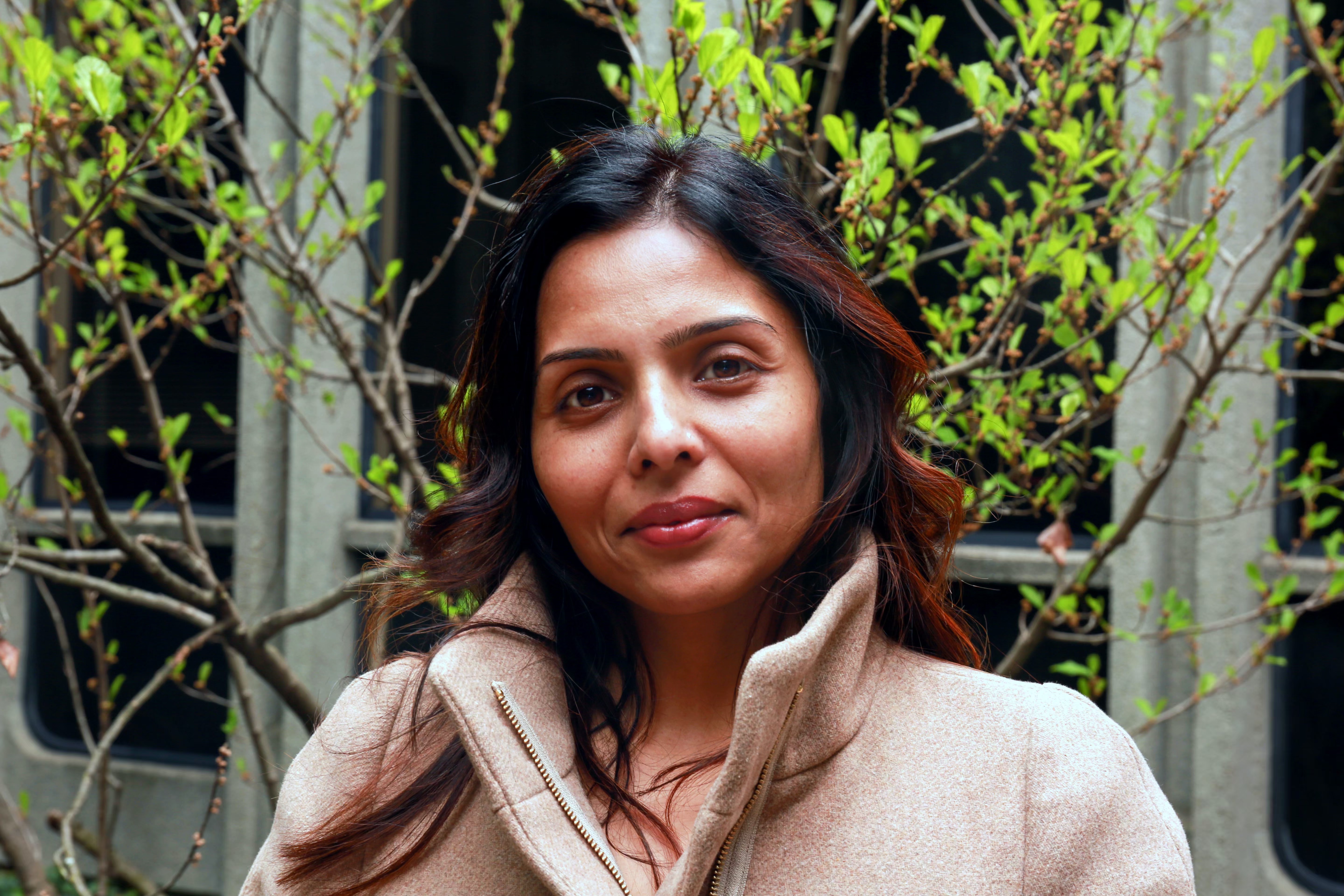
Bio
Suchi Bansal is a Senior Research Specialist at Ci3 where she researches health equity and access issues for young people living in international countries. Suchi leads the Center's adolescent health project in India titled Kissa Kahani that aims to increase gender equality and SRH among Indian adolescents. Suchi's research interests include: sexuality education, abortion, and youth participation in research and program design. Her research has been published in multiple peer-reviewed journals. Prior to joining Ci3, Suchi consulted for the World Bank on the reduction of teen pregnancy and maternal mortality and morbidity in developing countries. Suchi has a MPH from Columbia University and Bachelor's degree in Economics and International Relations from Knox College.Description
Young people already have many things vying for their attention. So how do we promote healthy behavior through digital health interventions that actually appeal to adolescents? To help us answer that question, Peer Health Exchange (PHE) recruited eight diverse high school students and trained them in Trauma-Informed Youth-Centered Health Design. Together, we co-created a digital health product featuring identity-affirming content and resources designed to validate all young people’s experiences and destigmatize health issues. In this presentation, you’ll hear from PHE staff and members of our Youth Design Group on how we centered youth voice in the design of our new app from ideation to implementation and iteration. We’ll describe in detail the ways in which we incorporated one of the key recommendations of our youth advisors: ensuring that all elements of the app centered identity and lived experience of young people.Speakers

Bio
Chris Wilson is a South Los Angeles native who has spent more than 15 years working in sexual and public health. He currently serves as the Director, Digital Learning on the Peer Health Exchange Programs and Strategic Learning team and leads the content development for Peer Health Exchange’s digital programming which aims to reach young people outside of the classroom. He has spent more than a decade serving, educating, and advocating for Queer, BIPOC, and HIV positive youth around the country through varies roles. Chris graduated from Wiley College with a B.A in Sociology, and transferred from Southern New Hampshire University, to earn his Master of Public Health from UCLA
Bio
Wendy (She/They) is 16 years old and is from USC Hybrid High in South Los Angeles, California. At school, they’re founders of a Social Justice Organization and part of Student Council. Outside of school, they are involved in a queer magazine production program, Social Justice Program. They are a valuable part of Peer Health Exchange’s youth design group since August 2020. They are very passionate about having equal access to unbiased medical advice for all people and they plan to study Biology in college.
Bio
Josh (he/him) is 16 and a junior at Woodrow Wilson High School in Long Beach, California. At his school, he is very active as a vice president in one club and a treasurer in another. He is also a part of the yearbook team and a group called link crew, which helps freshmen get to know the school and help them with their mental health throughout the year. He has been participating in Peer Health Exchanges activities since last August. Josh is very passionate about everyone being able to have access to the knowledge of mental health and other kinds of health no matter what they could pay for these services, so they can take care of themselves.
Embracing Digital Tools to Better Deliver Comprehensive Sexuality Education, sponsored by UNESCO
9:30am - 10:30am PDT
School-based comprehensive sexuality education (CSE) has excellent potential to contribute to health, and wellbeing outcomes for children and adolescents. Countries are investing in improving and scaling-up the delivery of CSE to all learners. Digital technology can contribute to these efforts, particularly given that teachers can find some elements of CSE challenging to deliver given cultural taboos about speaking openly about aspects of sexuality. But how can digital tools be used to their full potential in the classroom? Moreover, in the context of the Covid-19 pandemic and an attempt to shift to distance learning, can CSE be delivered exclusively online? This Panel presentation will showcase diverse examples of digital tools and reflect on both the opportunities and challenges of using digital tools to deliver CSE. This will include examples of attempts to deliver CSE exclusively online in the context of school closures.
Speakers
.jpg)
Bio
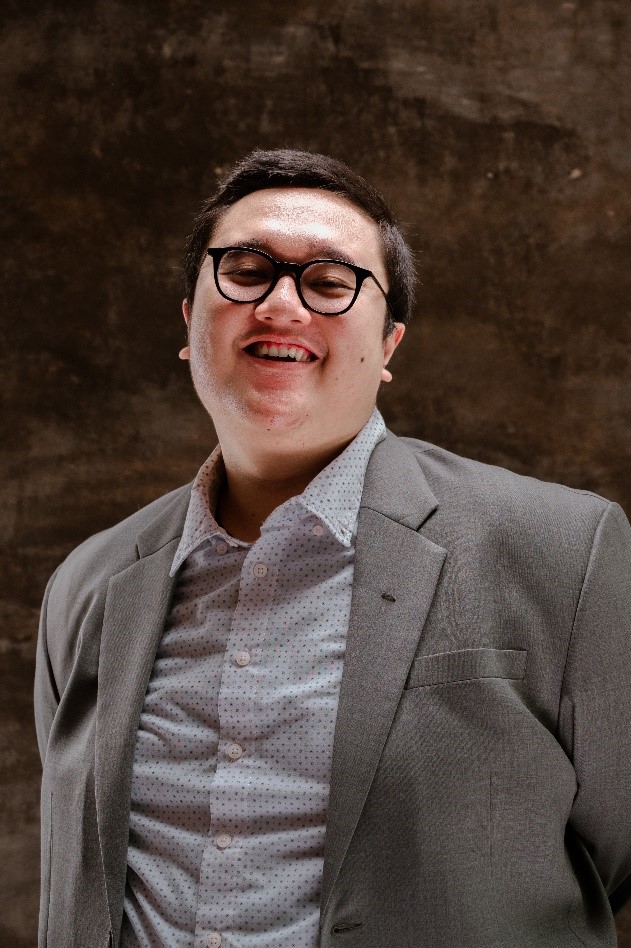
Bio
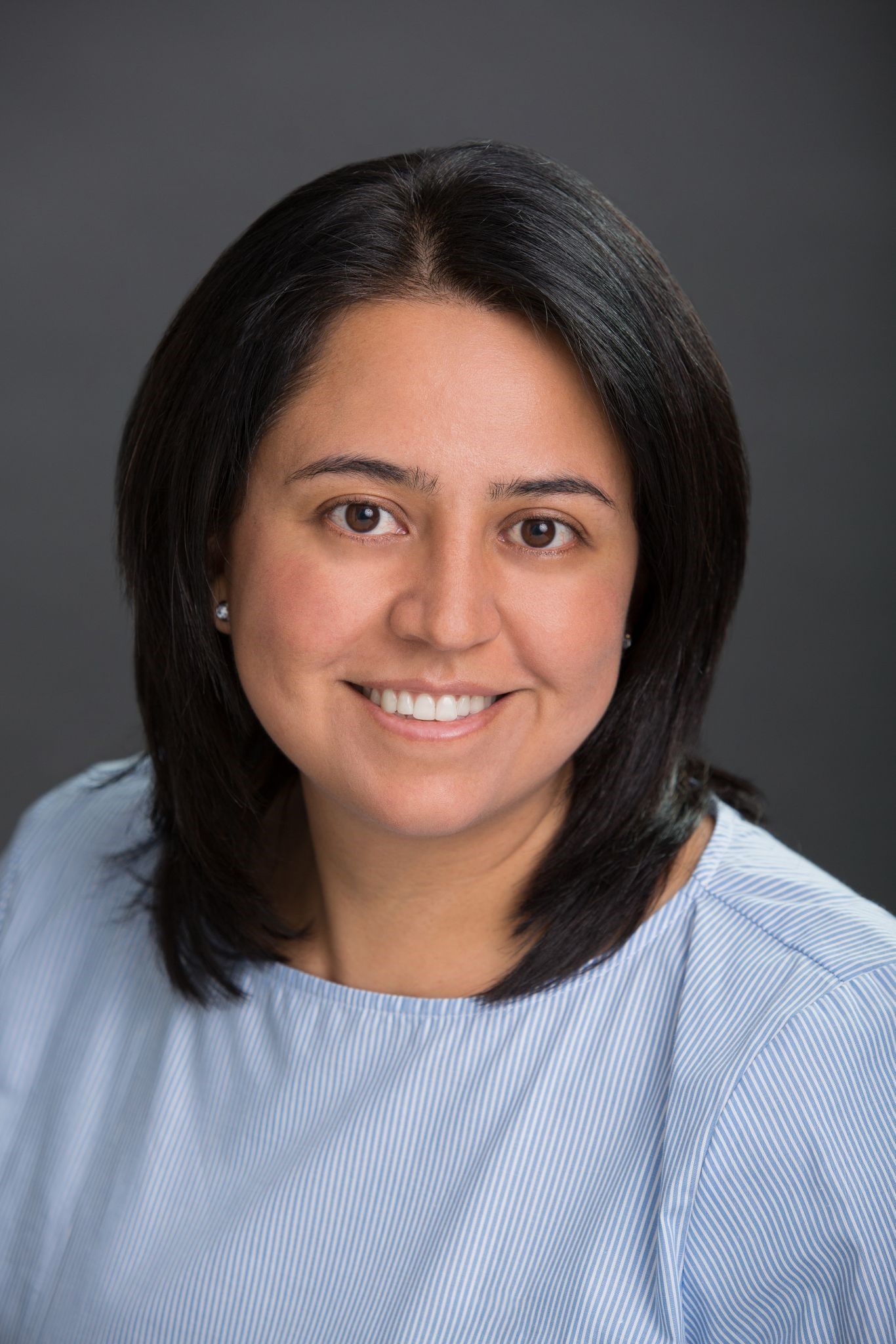
Bio
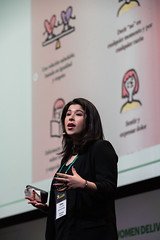
Bio
How to Co-Design Digital Self-Care Tools for Abortion and Contraception Care with Young Women and Girls Living in Humanitarian Settings
10:45am - 11:45am PDT
In this session, you will learn the detailed design process of engaging youth living amidst humanitarian and emergency crisis’ to co-design a mobile application to facilitate self-managed care for abortion and contraception care, using the example of Aya Contigo. Aya Contigo is a mobile application that provides virtual accompaniment to Venezuelans through a safe self-managed medication abortion and post-abortion contraception journey. Aya Contigo was co-designed with over 1000 Venezuelan women and girls and a dozen grassroots organizations and has the potential to demonstrate a virtual accompaniment model as an essential safe, acceptable and feasible tool in the safe abortion ecoystem within humanitarian contexts. This session will include interactive role playing and hands-on testing of Aya Contigo in small groups to apply a co-design process inclusive of a youth-centered focus on developing self-care digital health tools to facilitate self-managed medication and contraception care for young people living in humanitarian settings.
Speakers
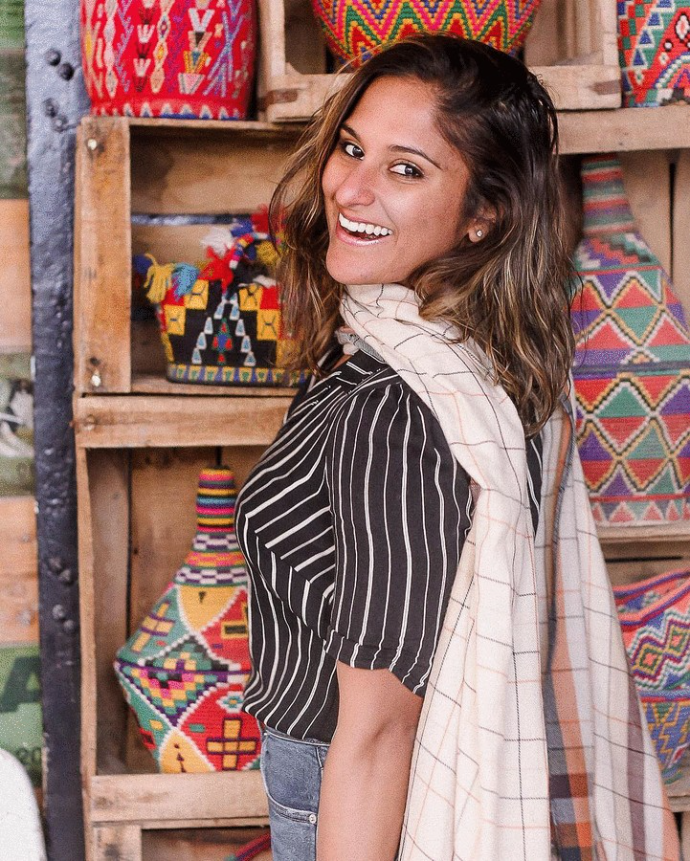
Bio
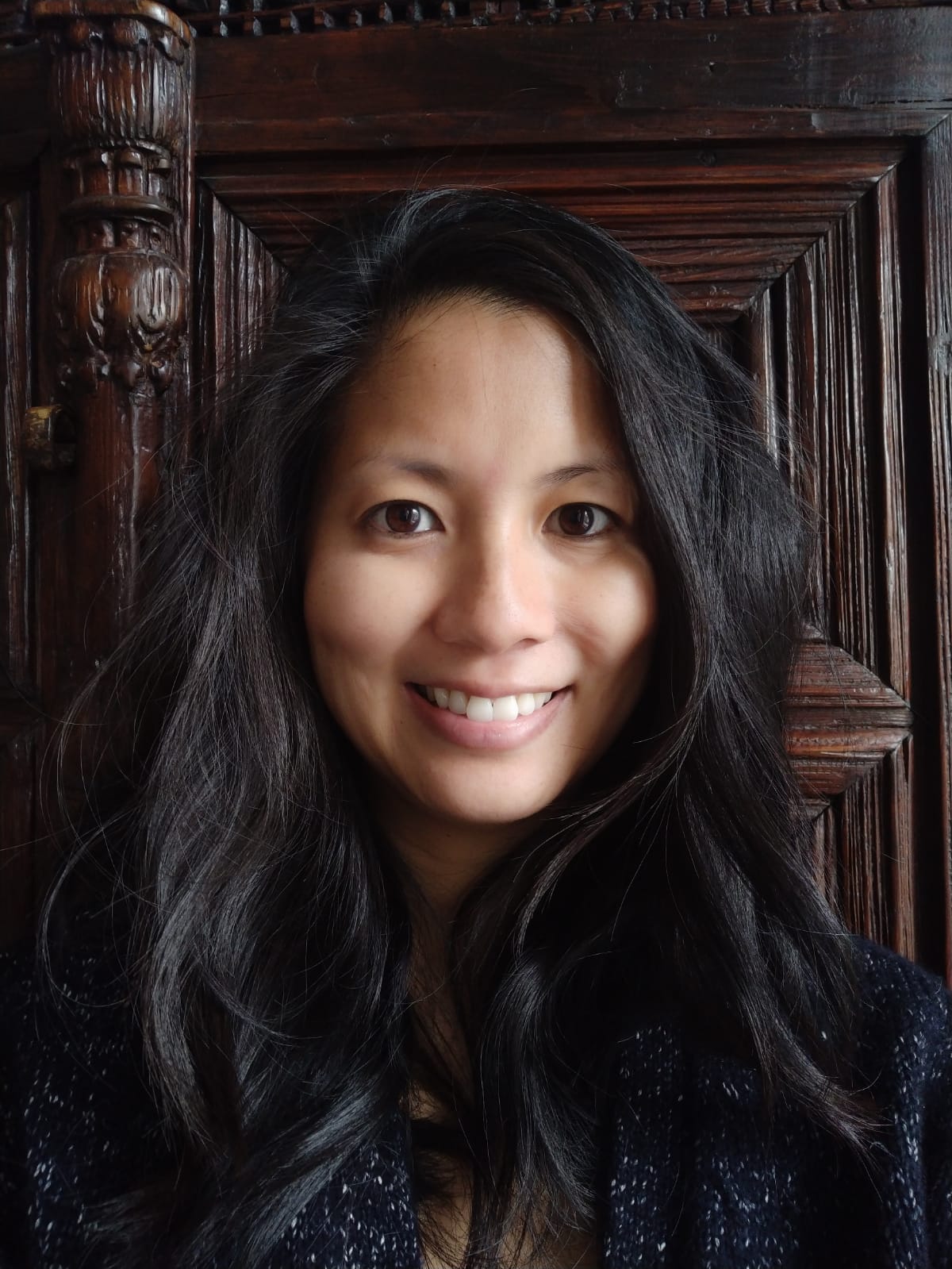
Bio
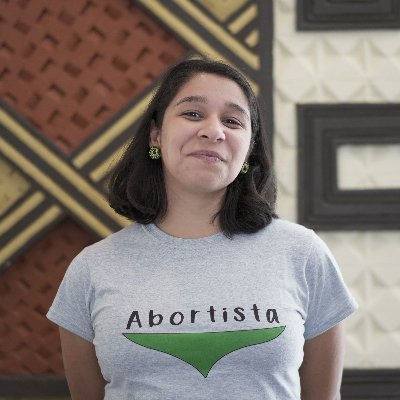
Bio
How are you feeling? Digital mental healthcare
10:45am - 11:45am PDT
As young people are more and more online due to the COVID-19 pandemic, so are youth-serving professionals. We know that mental health remains one of the most pressing issues young people face, so it makes sense that innovators would turn to digital strategies to ensure access to mental health services for those most in need. These panelists understand the benefits and challenges that online mental health programs come with, and they know just how mental health apps can meet the needs of youth, particularly youth of color. Come learn how they use their human centered and fundamental design principles to make apps safe places for young people!
3 Subsessions
Description
RADA Application is a product of 12 University of Nairobi students who were very passionate about outreach activities within the University. They were all called to volunteer by one department (Center for HIV Prevention and research -CHIVPR) within the Universty of Nairobi. In a one day workshop, the students listed all the health challenges faced by students and also designed four prototypes of a mobile application that they were envisioning. They were trained how to code by an Expert from UNESCO from scratch and got to the internet and other publications to get the content in a youth friendly language. This content was later validated by relevant government departments including Department of Reproductive, Adolescent, Maternal, Child and Adolescent Health (RAMCAH), National Agency for the Campaign against Drug Abuse (NACADA), JHPIEGO, and the National AIDS and STI Control Program (NASCOP). It was launched and updated one year after user feed back.Speakers
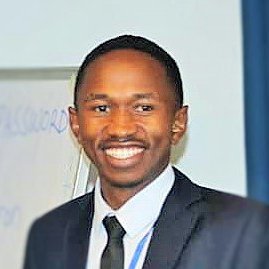
Bio
I am a fourth year University of Nairobi student taking construction managemnt course. For the last two years I have been engaged in development of a health mobile application that targets to empower Universty Students with information on sexual and reproductive health, mental health, substance abuse and career guidance. I coordinate the students activities on this program to promote downloads and uptake of virtual counselling and mentorship. A side from that, I do side hustles in entertainment industry, I am an experienced MC and also engage in drama mostly to pass messages on sexual relationships and mental health. Through such initiatives I am able to mobilize students for RADA App forums thus increasing downloads and service uptake. I am also a peer mentor and have got sessions on empowering students on how to manage talents for better living while at school and to reduce anxiety levels while earning little cash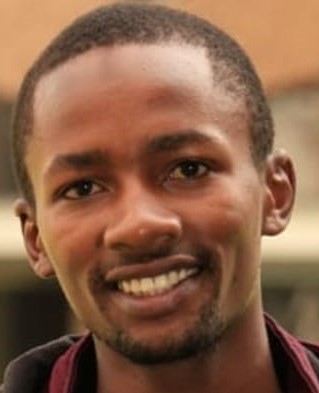
Bio
I have just graduated From the University of Nairobi as a biological scientist and I chose to remain an active alumni. I was in the team that developed RADA Application as a content developer. After the launch, I choose to promote and market the application so that all comrades would benefit both health wise and on personal growth. While at the universty, I perfected my side hustle as a Dj and would be involved in many events that needed sound system and a dj. through this, I benefitted in many youth oriented projects like Ajira which was initiated to help students build career and start working while still at the university as a government agenda to increase job opportunities for the youth. Currently, I mobilize students when there are RADA App virtual activities and so far, I have been able to achieve the set targets for students by the University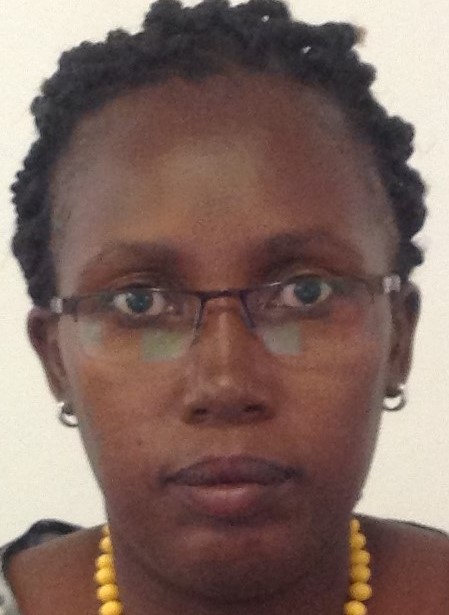
Bio
I am a pulic health specalist with a Masters in public health and over 12 years experiecein research work. I had been in a HIV and AIDS research project for over 10 years at the University of Nairobi that was targeting Key populations. I am still working at the same institution as a program coordinator and am also a Principal Investigator of a HIV and AIDS study. I coordinate all the RADA App activities with students and also partners that support this initiative by our students. My main work involves mentoring students in all activities in ths program to ensure that they graduate healthy and well equipped to actvely get involved in economic development. I am also eqquiping them for better job opportunities so that they can be role models to the other young people that they come across. So far, through RADA App program many have reported personal growthDescription
What is your favorite part of a meal? Is it the main dish? Is it the sweet dessert? Or is it the underappreciated appetizer? For us, it's the appetizer. An appetizer does something no other part of the meal can - it stimulates hunger and carefully sets the foundation for a memorable dining experience. Appetizers are all about the first impression - and so is Heard, the appetizer of mental health care. Curious to know more? In this session, you'll be learning how Kaiser Permanente's Hatch Group was inspired by the idea of an appetizer to build a concept prototype called Heard, a new teen support experience. You'll also get an inside peek into the fundamental design principles that make Heard a reliable, trusted, and most importantly, safe space for teens. Join us to explore how to utilize human-centered design and empathy to create a safe space of your own!Speakers
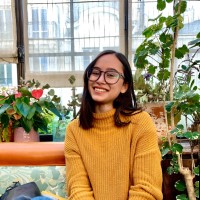
Bio
Valerie has a (maybe) unhealthy love for oat milk and absolutely loves digging deeper into the ‘why’ of anything and everything. Valerie currently utilizes her propensity for ‘whys,’ her business strategy background, and her talent with a keyboard to design joyful experiences for users as part of Grammarly's UX Research team!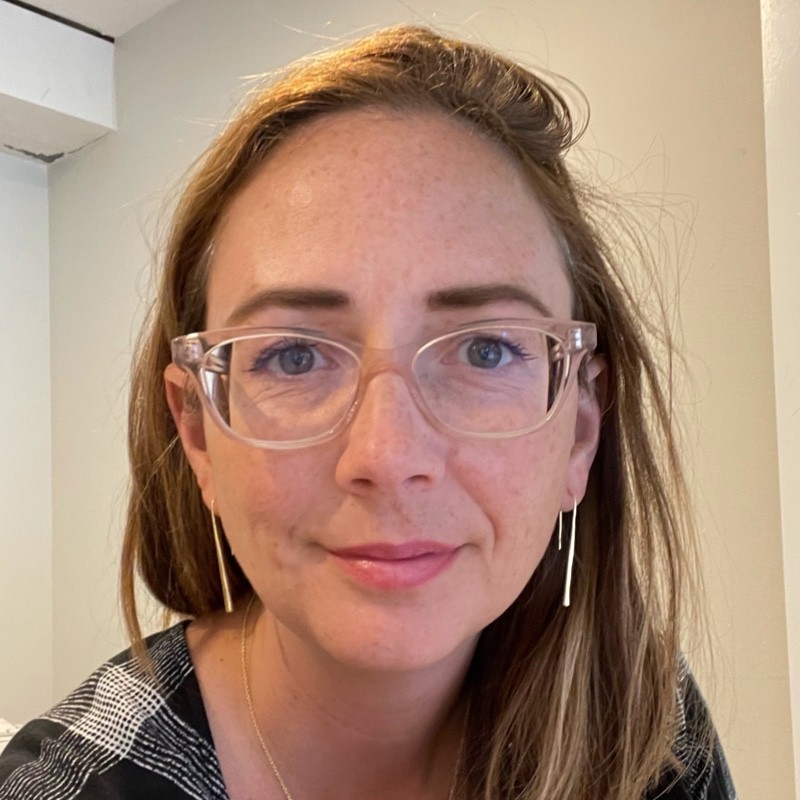
Bio
Laura is an old soul and loves a good docuseries. With a background in media design, Laura started her career as a design researcher at IDEO, where she focused on developing new research methods for teams. She then found herself at the Innovation Consultancy - Kaiser Permanente's first internal innovation group, which aimed to encourage new ways of thinking about, addressing, and designing for the challenges that exist within healthcare. Today, in the Hatch Group she enjoys learning about and designing for emerging generations.Description
Thousands of mental health apps are available in the app stores today. These apps offer unique opportunities to support young people, who are interested in adopting innovative tools, are tech-savvy, and have unmet mental health needs. While we know youth are enthusiastic adopters of apps, we know little about their app preferences or how they think apps might help support their mental health and wellness. In this session, we summarize existing research on the use of mental health apps and present a case study in which we gathered feedback on mental health apps from Latinx youth. This session aims to inform youth, and those working with them, about the benefits and challenges of mental health apps. We aim to increase understanding of how apps can meet the needs of youth, particularly youth of color, who are often left out of conversations about the development of innovative health tools.Speakers
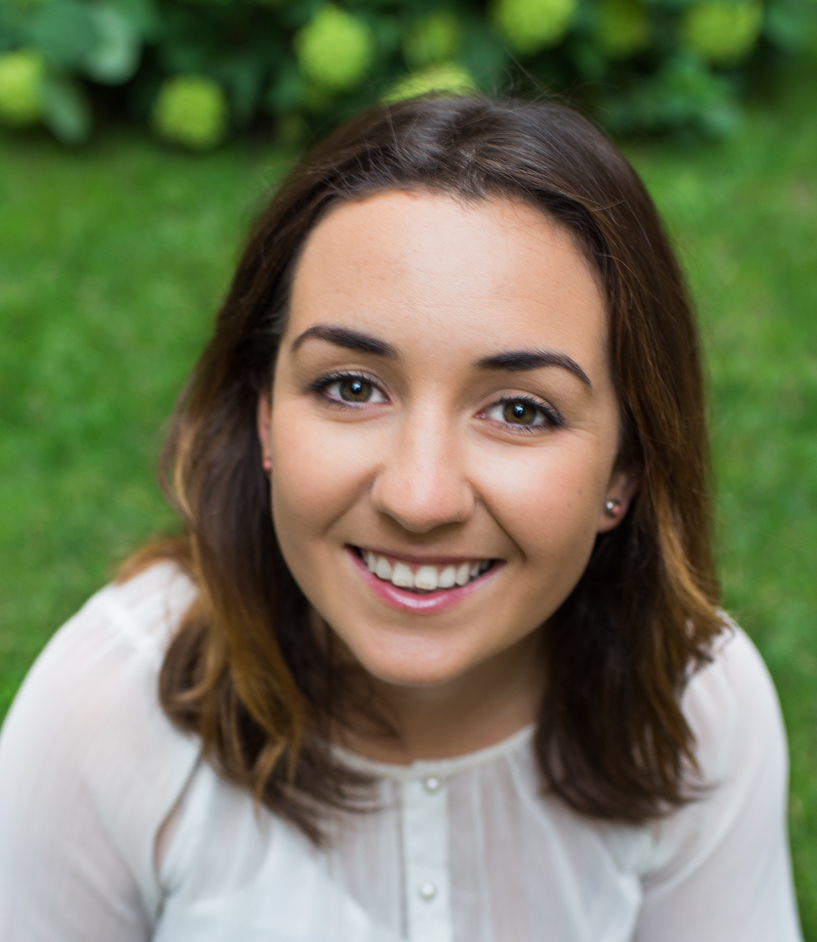
Bio
Martha Neary is the Program Director of One Mind PsyberGuide and the Technology and Mental Health Lab at the University of California, Irvine. Martha received her B.A. in Psychology from University College Dublin and her M.Sc. in Atypical Child Development from Queen’s University, Belfast. Prior to joining PsyberGuide, Martha managed an NIMH-funded study exploring infant mental health. Before moving from Ireland to the United States in 2015, Martha worked with the Growing Up in Ireland Study, a longitudinal cohort study of over 20,000 youth in Ireland. She has also worked on a study exploring healthcare utilization experiences of young people with ADHD, and in a more practical capacity in special needs education and student support services. Martha has published and presented in a range of venues on digital mental health, focusing on the integration of apps into practice and consumer attitudes towards mental health apps.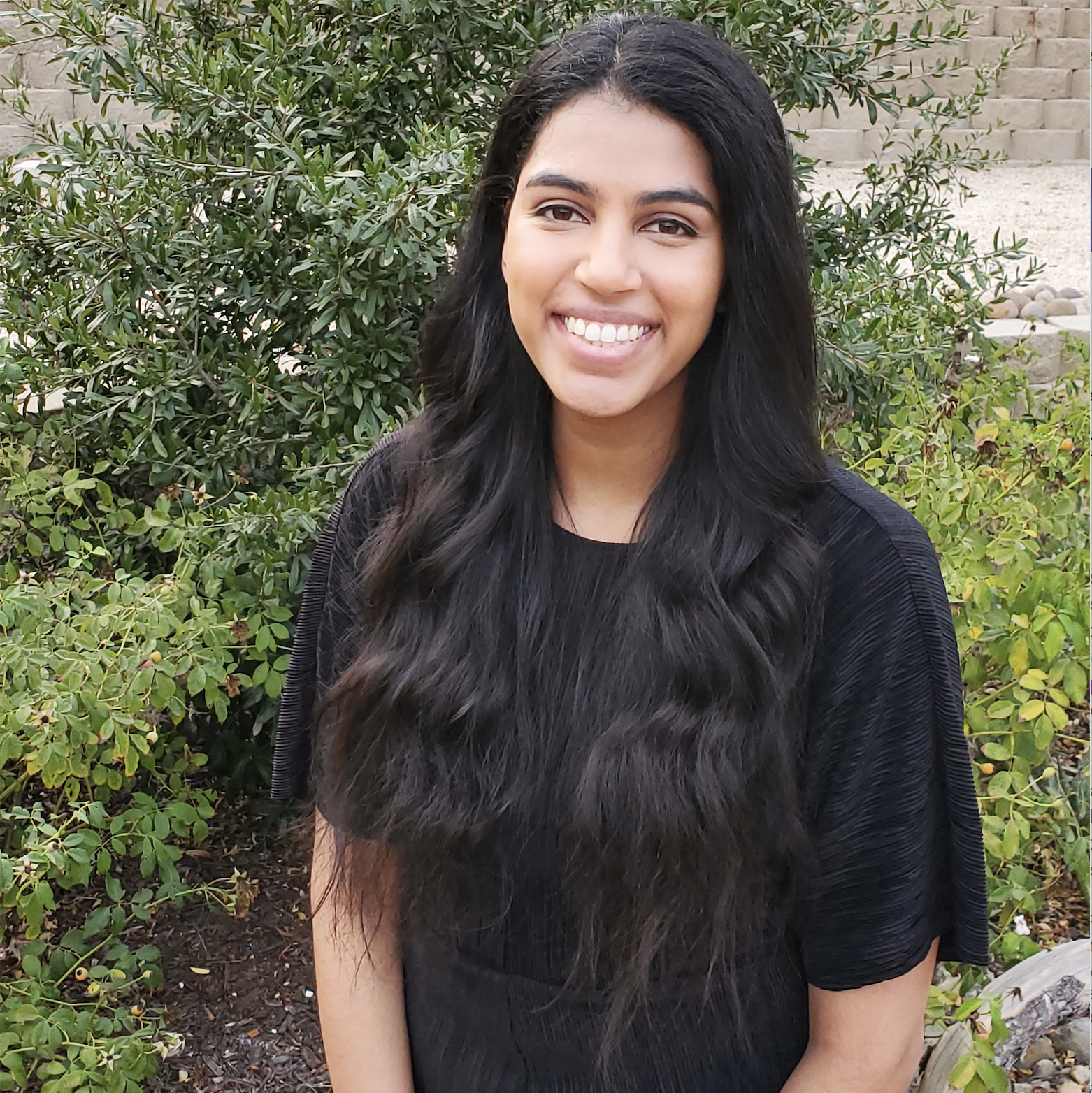
Bio
Sneha Patrachari is a graduate research associate at the University of California, Irvine where she is working alongside the Department of informatics and the PsyberGuide lab to review goal-setting and mental health applications. Sneha graduated from the University of California, Davis with a Bachelor of Arts and Science in Computer Science and Cognitive Science. Shortly after, she was introduced to PresenceLearning, an education technology firm, where she currently works as a DevOps engineer. Sneha helps to provide a platform that connects special education students to health care professionals—empowering her to research and create accessible solutions for underserved populations. She is pursuing a master's of Human-Computer Interaction at the University of California, Irvine, and is eager to join the emerging cross-functional field of engineering and design to advance technical innovation using thoughtful design.
Tips, Tricks, and Toolkits: How Adults Can Communicate Effectively with Young People
10:45am - 11:45am PDT
When it comes to supporting the youth in their lives, many adults are at a loss. The presenters on this panel have designed tools for both professionals and parents to help them understand the needs of adolescents. You’ll hear about a digital toolkit on trauma-informed interviewing techniques for professionals working with immigrant children. You will also learn about a toolkit to facilitate group sessions with parents to help them communicate effectively about topics such as STIs and healthy lifestyles.
2 Subsessions
Description
Thousands of children seeking refuge at the US Southern border have been negatively impacted by US immigration policy and practice, which has resulted in family separation, prolonged child detention, and exposure to significant adversity in Mexico. These traumas can have lasting negative health and psychological effects for children and their families, and legal support and advocacy are often the first steps to help immigrant children and families access safety and rehabilitative care. Hundreds of lawyers provide services to the victims of family separation but the resources available to support these professionals are scarce. The Stanford Center for Health Education’s Digital Medic initiative worked with experts in trauma-informed care from Stanford University and the University of Texas at Rio Grande Valley to create a free digital toolkit for immigration attorneys and other advocates who visit these children, to offer strategies and coping skills they need to do this humanitarian work.Speakers
Bio
Jamie Johnston, PhD is the Research and Evaluation lead for SCHE and a postdoctoral fellow at the Stanford School of Medicine. Her work focuses on the use of technology to improve educational access, instructional quality, and health outcomes in under-resourced areas. Jamie completed her PhD in Economics of Education at the Stanford Graduate School of Education, where she was an Institute of Education Sciences (IES) doctoral fellow. She is an affiliate with the Stanford Center for Education Policy Analysis and Innovations for Poverty Action and holds an MPP from the University of Chicago and an MA in Economics from Stanford University.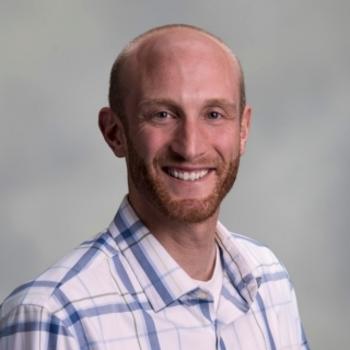
Bio
Ryan B. Matlow, PhD, Clinical Associate Professor in Stanford’s Department of Psychiatry and Behavioral Sciences, is a child clinical psychologist, whose clinical and research efforts focus on understanding and addressing the impact of stress, trauma, and adversity in children, families, and communities. He is the Director of Community Programs for Stanford’s Early Life Stress and Resilience Program, and a faculty member in the Stanford Human Rights in Trauma Mental Health Program. He is engaged in clinical service, program development, and interdisciplinary collaboration efforts that address childhood trauma exposure in communities that have been historically marginalized, under-resourced, and/or experienced human rights violations. He has worked extensively in providing trauma-focused psychological evaluation, treatment, and advocacy services with immigrant youth and families, with a focus on immigrants from Latin American countries.Bio
None / TBDDescription
When it comes to supporting the youth in their lives, many adults are at a loss. The presenters on this panel have designed tools for both professionals and parents to help them understand the needs of adolescents. You’ll hear about a digital toolkit on trauma-informed interviewing techniques for professionals working with immigrant children. You will also learn about a toolkit to facilitate group sessions with parents to help them communicate effectively about topics such as STIs and healthy lifestyles.Speaker
Bio
Bothaina Qamar is currently UNFPA Jordan Youth Program Analyst, and the Chair of the Zaatari Camp Youth Task Force. Bothaina is a Sustainable International Development studies graduate from Brandeis University, with a focus on youth and refugees participation. Bothaina has more than twelve years of experience in positive youth development projects and youth active engagement and participation in various organizations including UN Women, UNDP, CARE International and other International and national organizations. In addition to her work in establishing Y-PEER - Youth Peer Education Network in Jordan that is concerned in youth sexual and reproductive health and rights. Additionally she taught Administration and Coordination of Humanitarian Systems and Sustainable Transition Building courses, as part of The Social Work Professional Diploma Migration and Refugees at the German Jordanian University.
Video Warm-Ups: Combining Physical Literacy, Exercise and Equitable Access for Lifelong Health
10:45am - 11:45am PDT
How can technology increase physical activity and inspire life-long joy in movement? This workshop will describe how a physical education curriculum designed for K-12 students has worked to combine technology with learning progressions that include skill building, application, and practice to promote the development of physically literate youth. In response to the COVID-19 pandemic and data that show an inequitable distribution of lifestyle-related health outcomes EPEC (Exemplary Physical Education Curriculum) has revised its curriculum and integrated videos and digital delivery to support young adults to learn and practice strength-building physical activity skills. Access to progressively more challenging personal conditioning exercises support youth to feel confident trying new fun physical activities in their own preferred environments. Lean about the development process, experience the videos, and brainstorm ways to extend the impact of this integration of health and technology for K-12 students.
Speakers
Bio
Bio
Check Out The Conference Platform
11:45am - 12:30pm PDT
Participate in the Commando scavenger hunt to win prizes, chat with other attendees in a discussion thread or visit an exhibit booth to meet our fabulous sponsors!
Take Care of Yourself
11:45am - 12:30pm PDT
Make sure to visit the YTH Live Global mindfulness booth, sponsored by Dfusion. You'll find videos and other resources to promote self-care!
IN·clued: LGBTQ+ - Centered Sex Ed
12:30pm - 1:30pm PDT
Tired of heteronormative sex education? Come find out what it means to deliver LGBTQ+ – centered sex education that meets the real needs of youth. IN·clued is a ground-breaking educational program that addresses the sexual health disparities impacting LGBTQ+ youth across the United States. Our workshop’s goal is to empower professionals, especially those who deliver sex education, to provide LGBTQ+ youth with sexual health knowledge and skills to keep themselves safe. Join the fight for health equity and inclusion with the first evidence-based sexual health education program designed specifically for LGBTQ+ youth. During out time together we’ll address current research, lessons learned, and provide you with tools to take back to your communities.
Speakers
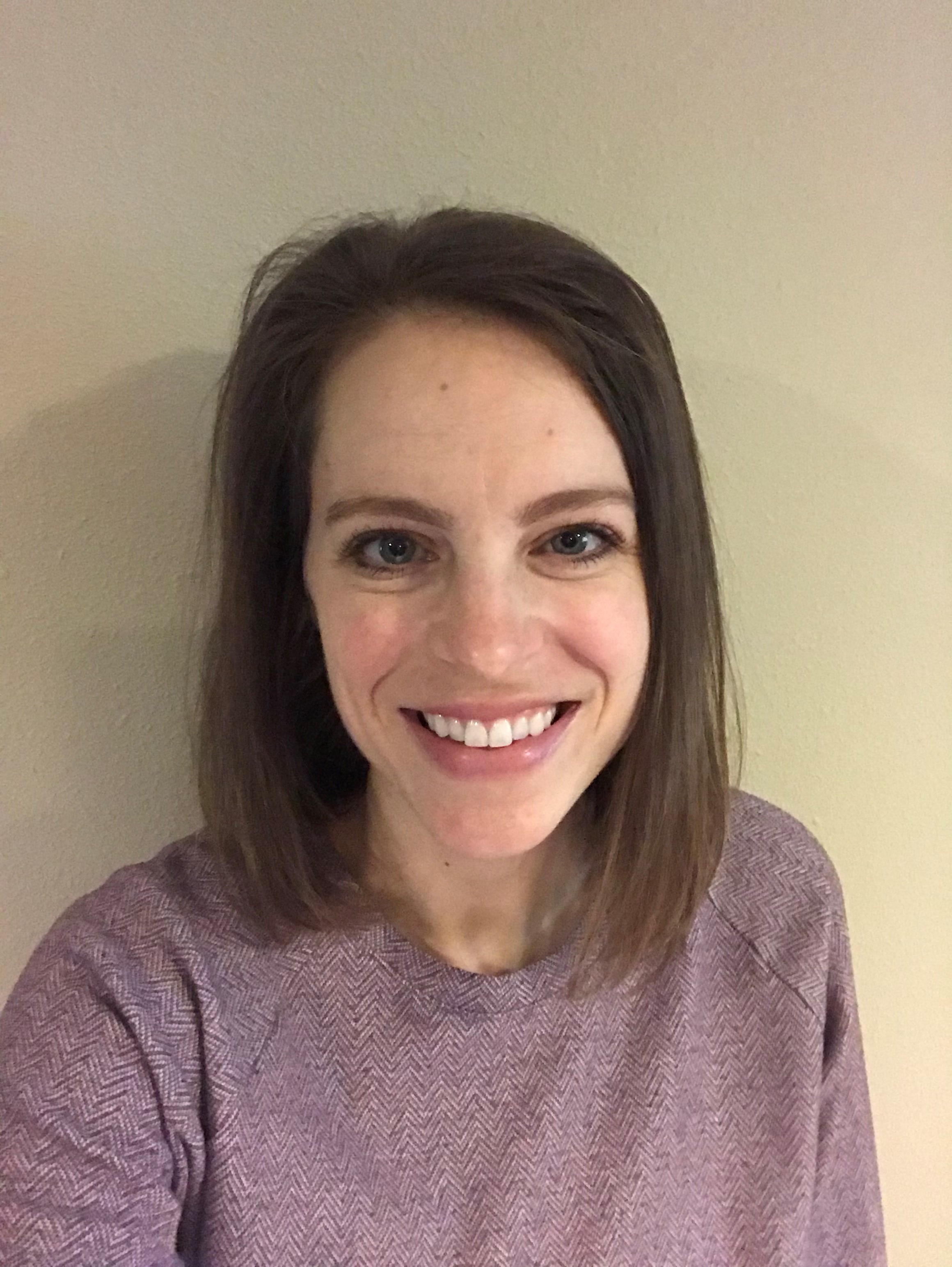
Bio
Bio
Games to Remove Barriers and Transgress Borders
12:30pm - 1:30pm PDT
Digital games are an evolving medium for education with unique opportunities for engagement through discovery and exploration. In this session, learn how exploring topics through an avatar is engaging youth in health education and agency in decision-making, as well as processing grief to build resilience and hope. You’ll also hear how a commercial game was adapted to build global citizens through teaching students about the refugee crisis as well as emotional skills.
3 Subsessions
Description
It is estimated that one in three individuals worldwide plays video-games of some kind. Play has been demonstrated to be an evolutionary feature that enables mammals to acquire new knowledge by exploration and experimentation. How then have we arrived at a system that views games as antagonistic to the classroom and so far disconnected from learning? Digital games are evolving as a fantastic medium for storytelling. The Games for Learning team at UNESCO MGIEP believes in the potential for games to be used to teach empathy, mindfulness, compassion, and critical inquiry to adolescents to encourage them to become global citizens. This programme will share the results of our research study involving 524 participants where we brought a commercial game - Bury me, my Love - and an accompanying course into the classroom to teach adolescents concepts of migration, the refugee crisis, and build in them skills of empathy, and compassion.Speakers
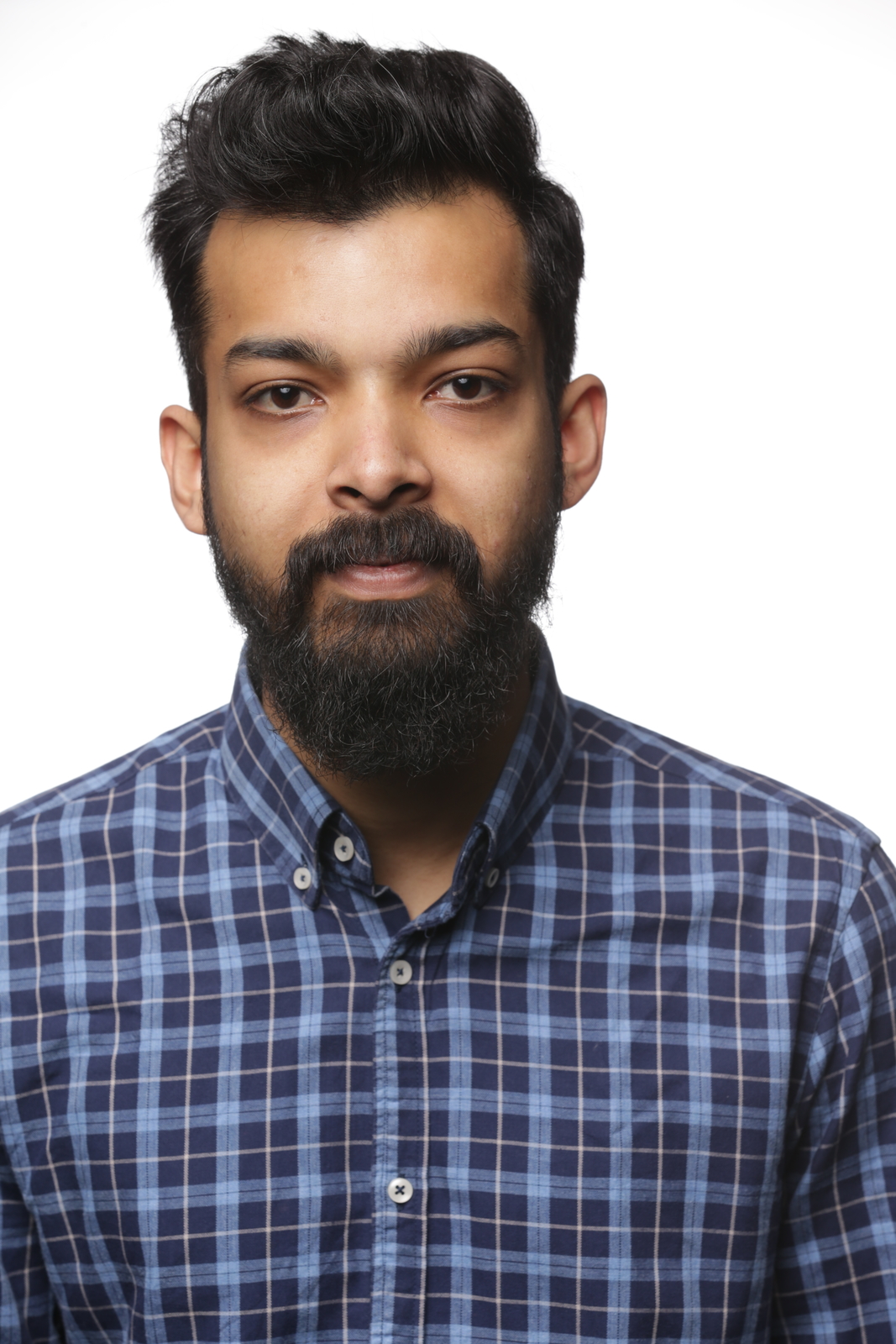
Bio
Vignesh is a designer who is passionate about games and believes in the power of play as a means to acquire new knowledge. He is currently engaged with the Games for Learning team at UNESCO MGIEP where he applies his multidisciplinary background to design innovative pedagogical solutions that leverage the best of technology to help cultivate critical-thinking and social emotional skills in learners. He was a member of the jury at the UNESCO Media Information Week Hackathon 2020, and was invited to speak on Games and Social Emotional Learning at the UN Crime Congress and the Indian Game Developers Conference.
Bio
Anurati is a designer and illustrator who finds joy in creating playful and meaningful products, games, experiences, visuals and interactive media using storytelling, research and human-centered design with a strong focus on social innovation, justice and activism. In the past, she was the product lead at Katha - a non-profit in education and publishing house - where she led the development of an award-winning storytelling mobile app. She has also worked with UNFPA and government bodies. Her educational background is highly interdisciplinary: being a Young India Fellow from Ashoka University where she studied Liberal Arts; she also holds a dual degree with a Bachelor’s in Electrical and Electronics Engineering along with a Master’s in Biological Sciences from BITS Pilani. At UNESCO MGIEP, she designs visuals, UI/UX, human-centered design strategies, characters, game-based narratives to create innovative learning experiences as a part of the ‘Rethinking Learning’ team.
Bio
Nandini is a cognitive neuroscientist and leads the Rethinking Learning programme. She is passionate about translating neuroscientific evidence on learning and education from laboratory to classroom. She is currently designing a programme for socio-emotional learning in school classrooms using interactive digital technologies.Description
Game of Choice, Not Chance is a direct-to-consumer initiative co-creating a mobile game with girls in India, ages 15-19, to provide them with an entertaining and safe space for exploration, discovery, and learning through interactive role-play in a virtual world. The game is the central component of an integrated approach to positively impacting girls’ health and agency that combines mobile, gaming, and predictive analytics technologies. In this panel of game designers, academics, and data engineers, session participants will learn how girls can experience the power of their choices through Nisha, their avatar in the game. Players join Nisha as she navigates her young life and encounters challenges designed to provide opportunities for them to directly access health information and practice decision-making in scenarios that reflect their lives. The panel will also discuss how predictive analytics allows for bridging the decisions taken during a game to behavioral choices in real life.Speakers
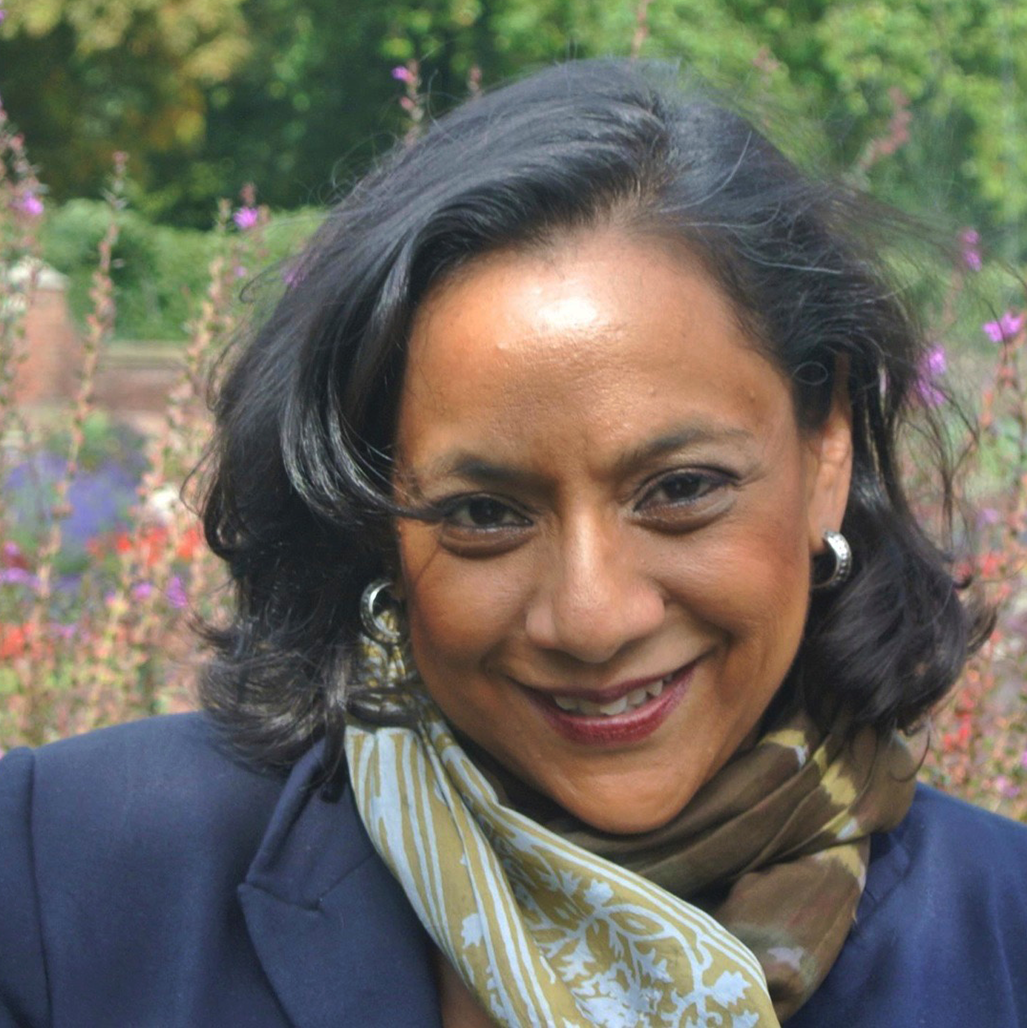
Bio
Susan Howard, PhD, MPH, is a co-founder of Howard-Delafield International (HDI) and a behavioral scientist, educator, and innovator who teaches, mentors, and creates at the nexus of academia, industry, and entrepreneurship. She combines theories from the behavioral and social sciences with best practices from game-based learning technologies, human-centered design, social marketing, and business innovations to design solutions that address pressing health and environmental issues, both globally and locally. She has pioneered a gamified research tool, The Loop Trail Quest, as part of her academic research at George Mason University where she serves as an assistant professor in the College of Humanities and Social Sciences. Currently, Susan is producing and managing several game design and development projects to effect behavior change in global health and the environment and is the Project Director of Game of Choice, Not Chance, a USAID-funded, direct-to-consumer program developing impact games for adolescents in India.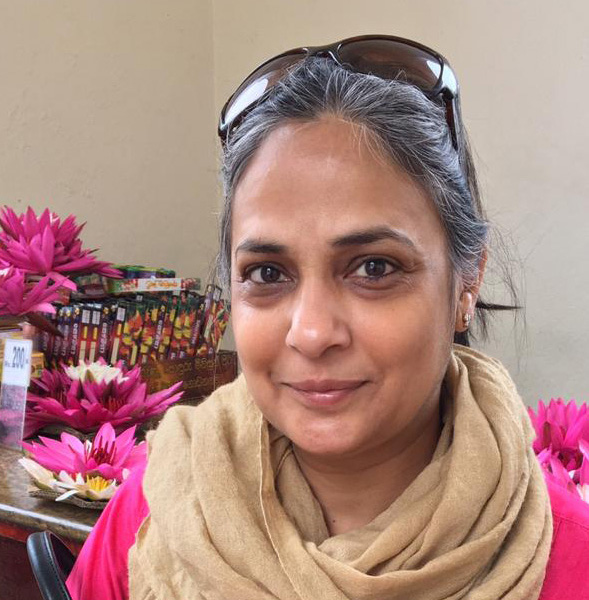
Bio
Lalita Shankar is a neuroscientist by training and has over 25 years of experience in the design, management and evaluation of large-scale infectious disease prevention and control programs. She has worked with international NGOs, governments (DFID/USAID) and the private sector (Becton Dickenson) with geographical experience in India, South East Asia, West Africa and the Middle East, and has led USAID efforts in mitigating the spread of infectious diseases in India/SE Asia working with international NGOs and the private sector. Her interests include product and market development of sustainable and disruptive public health initiatives, the application of data science and predictive analytics for precision social and behavior change messaging, and the impact evaluation of large-scale programs. She serves as the Regional DirectorAsia and the Middle East for Howard Delafield International working on scale and sustainability for the USAID supported Game of Choice, Not Chance project.png)
Bio
Feras A. Batarseh serves as a Senior Gaming Analytics Consultant on Game of Choice, Not Chance. Feras is a Research Associate Professor with the College of Engineering at Virginia Polytechnic Institute and State University (Virginia Tech). His research spans the areas of AI for Policy, AI Assurance, Data Engineering, and Context-Aware Software Systems. Dr. Batarseh is widely published including the author of multiple chapters and books. His two recent books are Federal Data Science and Data Democracy, both by Elsevier’s Academic Press. Dr. Batarseh obtained his Ph.D. and M.Sc. in Computer Engineering from the University of Central Florida (UCF) (2007, 2011), a Graduate Certificate in Project Leadership from Cornell University (2016), and another in Public Policy Economics from the University of Oxford (2020). Feras is a tech evangelist who believes in ethical AI, data openness, and free-for-all access to the sciences.Description
In the wake of a global pandemic, grief feels more palpable and universal than ever. Grief is known to elicit a variety of difficult emotions, ranging from shock, anger, sadness to disbelief and guilt. Research has shown that formal grief education that enables the acceptance and processing of grief can reduce severe negative effects of loss. We explore digital video games that have emerged as effective environments for the exploration of personal grief through the lens of a character. The presentation will describe the design of an interactive digital course developed around a puzzle-based adventure game, Gris that follows the journey of the eponymous character ‘Gris’ as she navigates through the different stages of grief but emerges out having built resilience and renewed hope. Directed at individuals above 18 years, the course is designed to cultivate social and emotional competencies of empathy, compassion, mindfulness, and resilience to cope with grief.Speaker
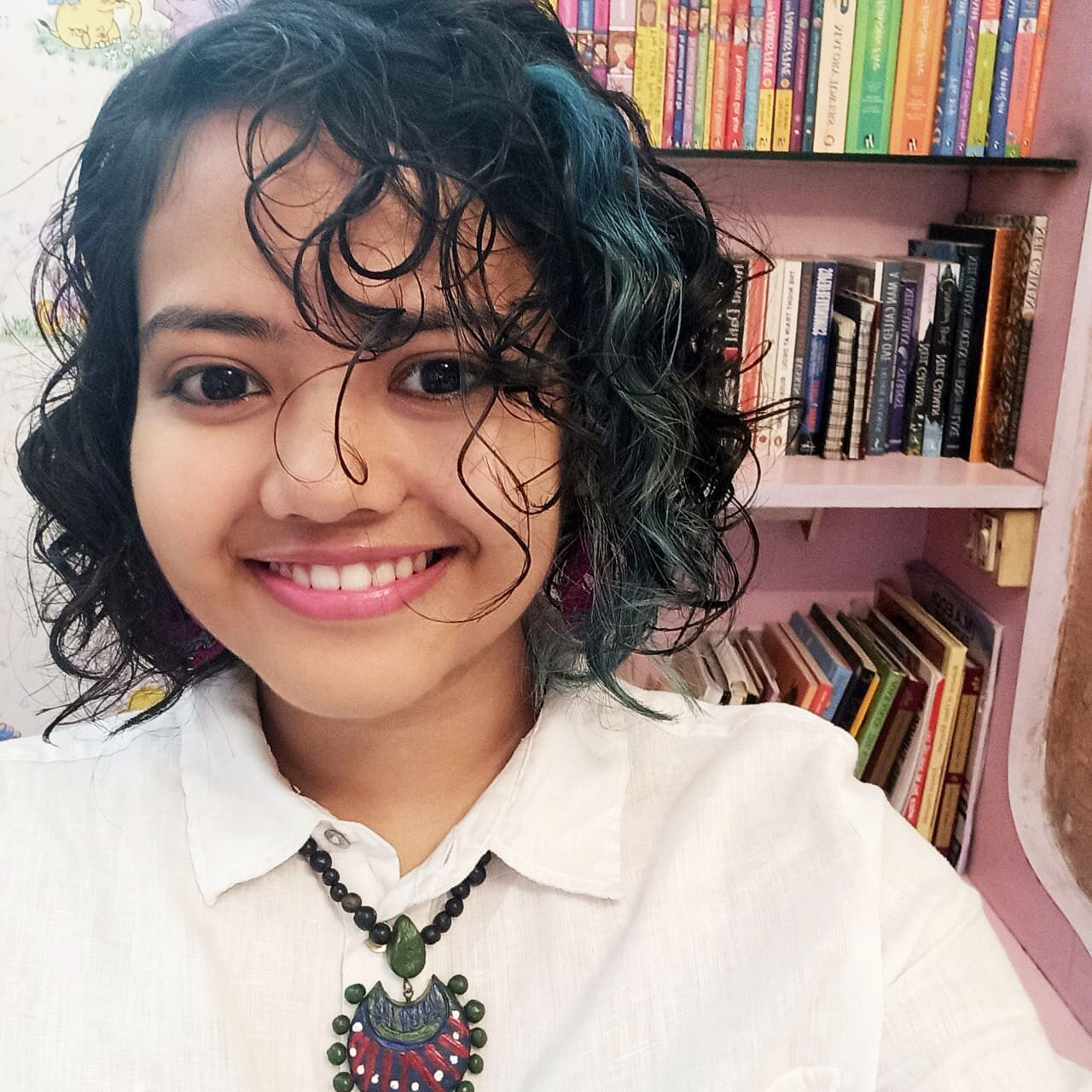
Bio
Anurati is a learning experience and game designer, creative technologist, and new media artist. She has over 5 years of experience working in the education sector with UN agencies, non-profits, and government bodies reimagining the future of learning using technology and human-centered design. Currently, she works in the Games for Learning team at UNESCO MGIEP, creating innovative online curricula, and visual narratives around digital games that promote social-emotional learning. Formerly, she was the Product Manager at Katha, where she led the product development of the storytelling and games mobile app KathaKhazana. She is passionate about using the power of play, creative storytelling, and emerging technologies to enable a generation of curious and empathetic learners.
milk: LGBTQ+ youth mental health and resilience, sponsored by Hopelab
12:30pm - 1:30p PDT
Hopelab’s team of researchers, strategists, designers, and communicators are building tools to support the health and happiness of LGBTQ+ teens and young adults. Queer youth want a world in which they feel free to express themselves; where they aren’t faced with judgement, harassment, or discrimination and where they can explore and embrace their sense of self and their multiple intersecting identities. But for many young people, the stress of being LGBTQ+ in a cisnormative, heteronormative world can be harmful to their mental health and overall well-being. So, in the spirit of co-creation and collaboration, we’ve set our sights on inspiring hope for the future. The milk collaborative, a partnership between Hopelab, CenterLink, and the It Gets Better Project, is working to build, test, and scale a digital mental well-being tool to measurably improve the health and happiness of young queer people.
Speakers
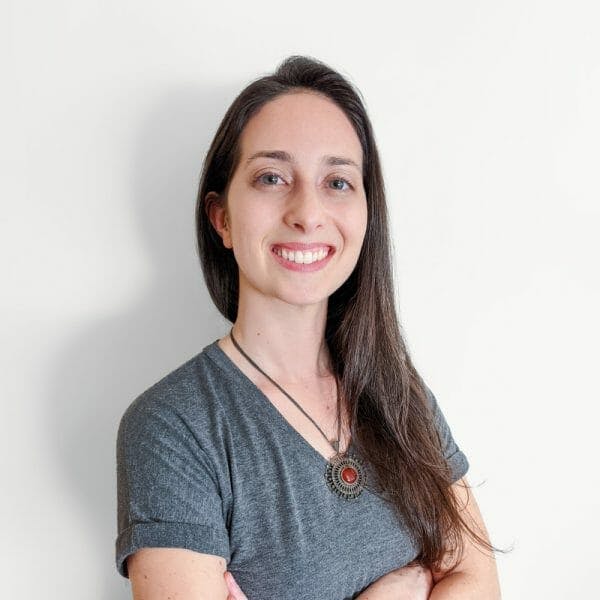
Bio
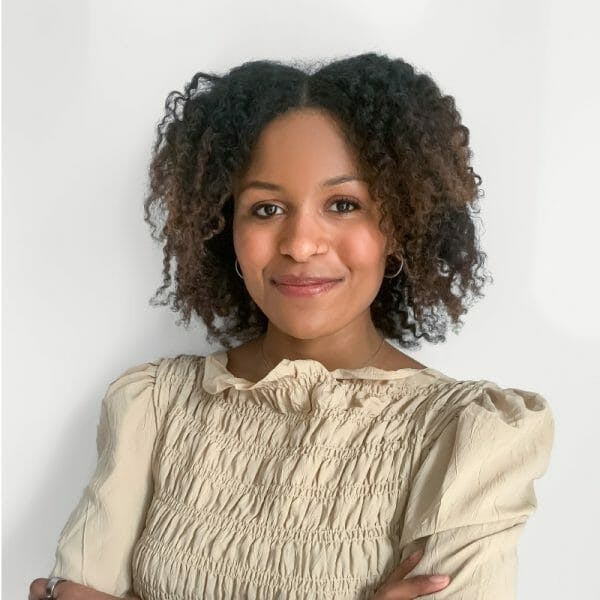
Bio
Empowering Black Youth Through Public Health Education and Technology
1:45pm - 2:45pm PDT
Classes are meeting twice a week on Zoom. Interns are paid their stipend in increments at the end of each week to incentivize class attendance. Participants are learning interviewing and research techniques. Working in groups, youth interns are interviewing professionals working in the fields of science, public health, technology, law, and community organizing on issues related to sexual and reproductive health, education and linkage to care. Interns will participate in an 8-week Summer Youth Program with Code Tenderloin’s Opportunities For All, where they will design and create custom websites.The program is culminating the creation of 3 public health toolkits, a website and blog, a sexual health resources page, and a social media account designed, created and managed by the participating youth.
Speakers
Bio
Bio
Bio
Understanding and Supporting Youth in Advocacy Efforts
1:45pm - 2:45pm PDT
When working with young people, speaking their language is critical. These panelists know just how to meet young people where they’re at, using technological and advocacy-based interventions to build relationships with youth. This deeper understanding and relationship-building lends itself to youth empowerment and feeds into the amazing youth advocacy happening globally. Come learn more about partnering with young people to understand their needs better and how to support young people in leading sexual and reproductive health advocacy efforts across the globe.
3 Subsessions
Description
Young people have a critical role to play in improving their own sexual and reproductive health, but they do not always have the opportunity to influence the policy and funding decisions that impact their access to services. When youth have the advocacy skills to understand and engage in their local policy environment, they can identify and seize opportunities to lead on improving access to sexual and reproductive health. With more than a decade of experience applying the SMART Advocacy approach to increase youth access to sexual and reproductive health in 15 countries, Advance Family Planning (AFP) has learned a few things about how to support youth-led advocacy. Join presenters to hear about how the AFP initiative has partnered alongside, advocated on behalf of, and supported young people to lead advocacy efforts in French-speaking West Africa.Speakers

Bio
Amanda is a scientist turned public health advocate. For the past five years she has worked to advance access to sexual and reproductive health as a program officer for the multi-country Advance Family Planning (AFP) advocacy initiative within the Bill & Melinda Gates Institute for Population and Reproductive Health at the Johns Hopkins Bloomberg School of Public Health. She supports AFP’s efforts to monitor, document, and learn from its more than 11 years of supporting evidence-based, locally -driven advocacy in partnership with advocates and experts in Africa and Asia. She graduated from Purdue University with a Bachelors of Science with honors in chemistry and from the Brown School at Washington University in St. Louis with a Masters in Public Health specializing in global health. In her free time, Amanda enjoys baking, cross-stitch, and walks with her family and their two dogs.
Bio
Kathryn (Kate) Barrett is a program officer with the Advance Family Planning (AFP) advocacy initiative within the Bill & Melinda Gates Institute for Population and Reproductive Health at the Johns Hopkins Bloomberg School of Public Health (JHSPH). For the past five years she has worked closely with partners in the Democratic Republic of the Congo and Francophone West Africa to implement AFP’s SMART advocacy approach to improve policies and funding for family planning. She holds a bachelor’s degree in International Relations and French from Goucher College and a master’s degree in Intercultural Communication from the University of Maryland Baltimore Country.Description
Girl Effect creates innovative technology and branded media to talk to girls on the channels they use. Increasingly, the ‘killer apps’ are Messaging services. Chatbots allow for a private and personalised interaction which we believe provides the perfect platform to discuss young people’s sexual reproductive health and rights. Girl Effect is developing its approach to the use of Natural Language Understanding to understand what the girls are saying and then categorise their comments and provide suitable answers. This creates an amazing potential for scale through automation, but, given the subject matter, accuracy is crucial. Given that our users are communicating in local dialects via their mobile, the language they use doesn’t match up with existing datasets which have been developed for those in the Global North. Come join Girl Effect to find out how we have approached this gap, whilst juggling with technical challenges and ethical dilemmas...Speaker
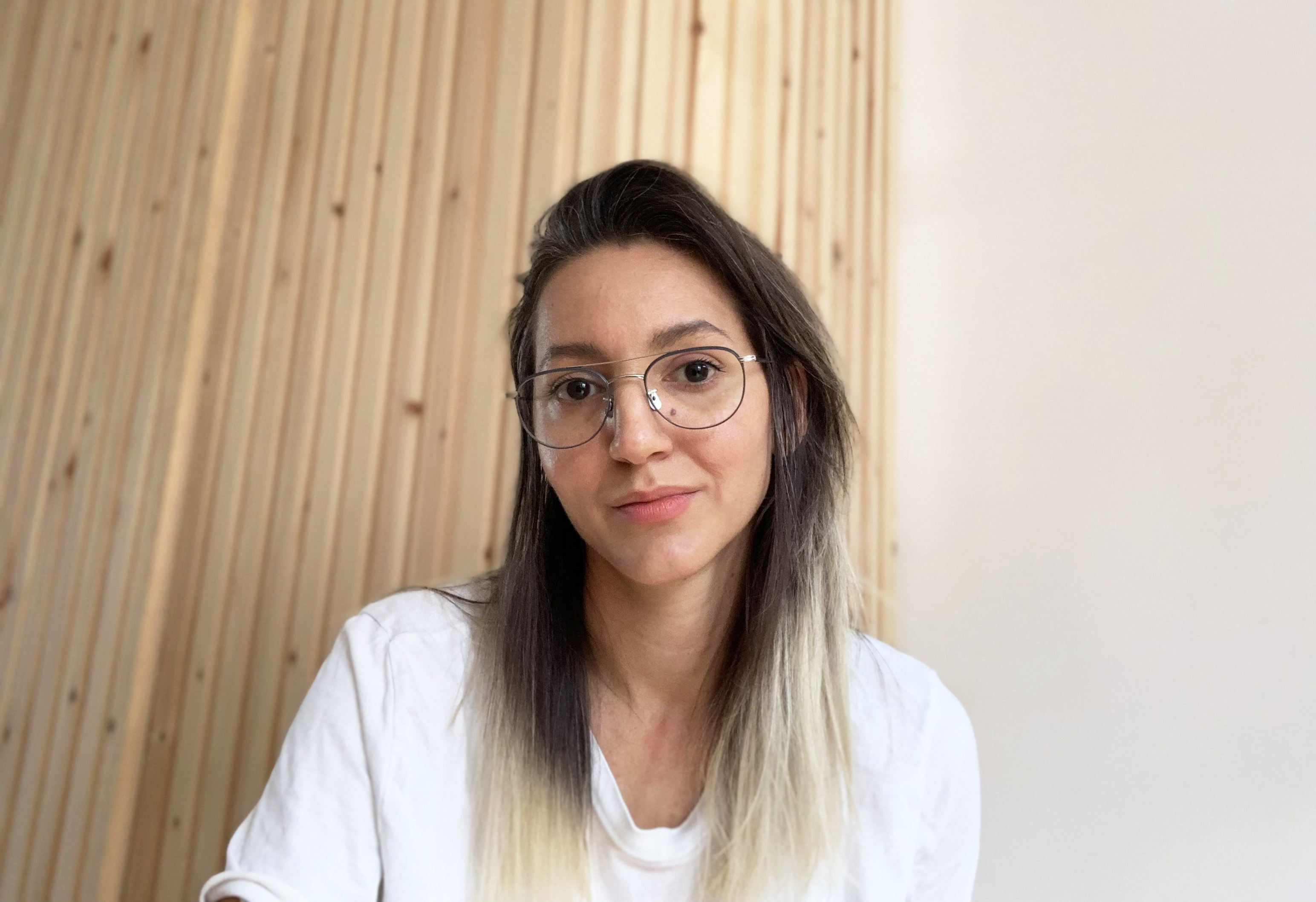
Bio
As Head of Create at Girl Effect, Karina is responsible for leading a global team that brings together experts across a diverse range of expertise, including scriptwriting, data science, social behavior change communication, digital safeguarding and design. Leading Girl Effect�s Create department, Karina works to foster collaboration across disciplines and countries to create brands and media products girls love, from serialized radio dramas to chatbots. With a background in documentary filmmaking and sustainable design, Karina has spent the last twelve years finding creative ways to develop solutions that reach, engage and empower marginalized communities in Africa, Asia, and Central America. Karina has worked with a wide range of both private-sector and non-profit organizations, including UNICEF, UNHCR, Girl Guides, Vodaphone, MTN, Airtel, Facebook, and Tik Tok, launching large-scale digital experiences and platforms available in more than 40 countries.Description
Do you want us to tell you a new way to use technology and virtual tools? Do you think it's time to change the current way of doing things? We think so, too! We think It'sTimeOfAnotherHistory. https://redinterquorum.org/dsr/proyecto-jovenes-por-el-ejercicio-de-los-dsdr-en-el-peru/ - Join us as we show you how we are creating a new generating of digital activists empowered in their rights and demanding social and reproductive justice. Young Peruvians in times of pandemic, defending and promoting their Sexual and Reproductive Rights. Demanding that they be taken into account when making political decisions. Activating digitally and breaking inequality gaps. https://www.youtube.com/watch?v=941PI7C8eqwSpeakers
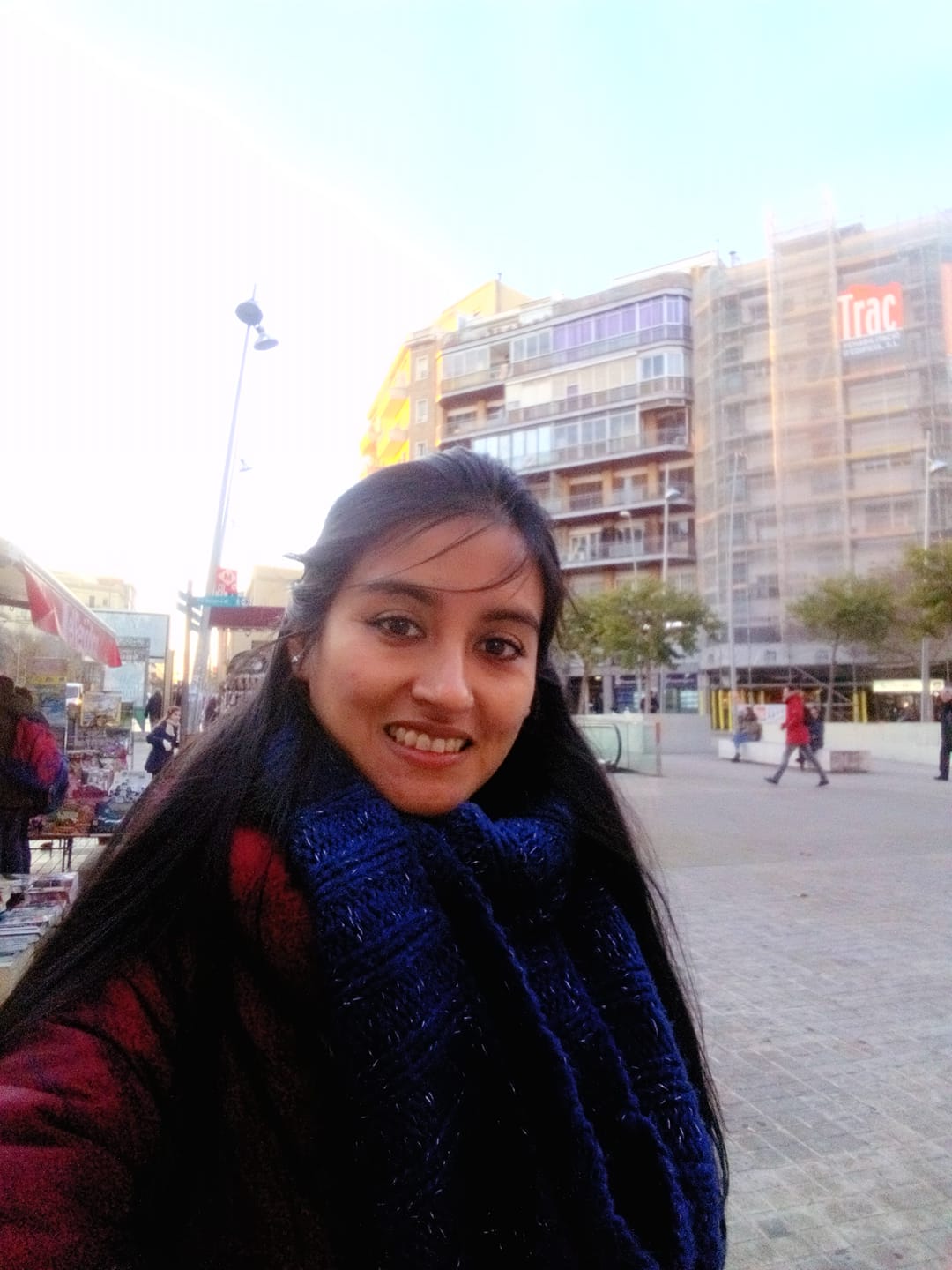
Bio
Licenciada en Educación Inicial en la Universidad Nacional Mayor de San Marcos. Miembro de la Alianza por la Educación Sexual Integral de Perú. Presidenta Fundadora de la Asociación Red Interquorum. Coach educativo, formada en la Universidad de Compostela, Galicia (España). Mediadora comunitaria de igualdad formada por la comunidad de Madrid. Facilitadora y ponente invitada en la Universidad Nacional Mayor de San Marcos, Facultad de Educación. Actual coordinadora del Área de Derechos Sexuales y Reproductivos de la Asociación Red Interquorum y Coordinadora Nacional del Proyecto Jóvenes por los DSDR. Actualmente ha elaborado guías de capacitación para educación secundaria para la organización APROPO y facilitado talleres de Educación Sexual Integral para docentes de secundaria. Participó en la conferencia Regional de Población y Desarrollo en el 2018.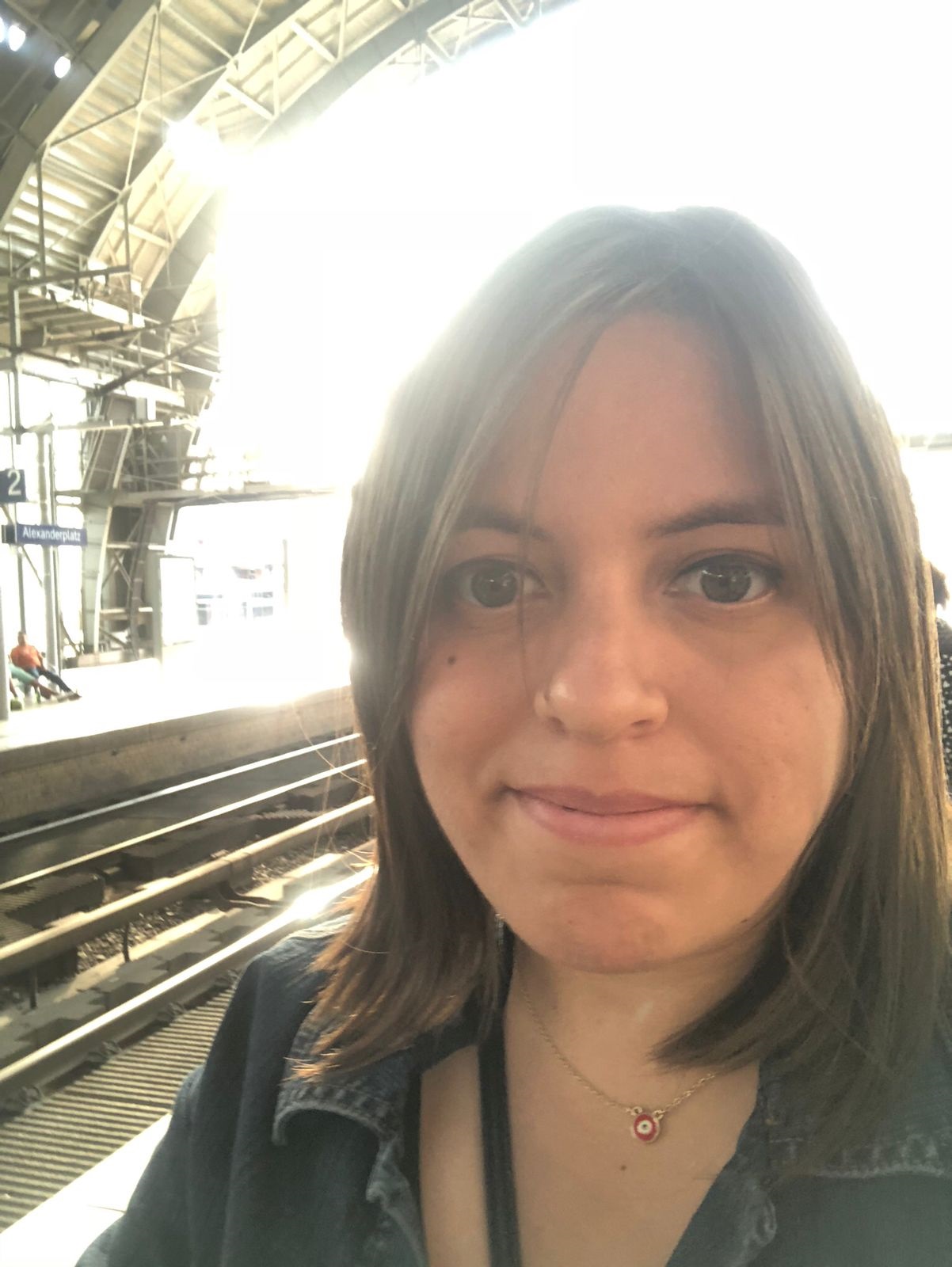
Bio
Licenciada en Administración y Negocios Internacionales (UPC), actualmente cursando la Maestría en Estudios de Género (PUCP). Cuenta con experiencia trabajando en empresas privadas, públicas y organismos internacionales. Forma parte de la Red Interquorum desde hace más de 7 años y es miembro del Consejo Directivo, desempeñando el cargo de Vocal de Asuntos Académicos.
Digital Posters & Lightning Talks
2:45pm - 3:30pm PDT
Conference Reception, sponsored by ViiV Healthcare
3:30pm - 5:00pm PDT
Join YTH Live Global and ViiV Healthcare for a virtual cabaret, featuring performances and talks by four young performers. Come for the performances, stay for the mingling in our amazing 3D world – built specifically for YTH Live Global attendees.
Speakers
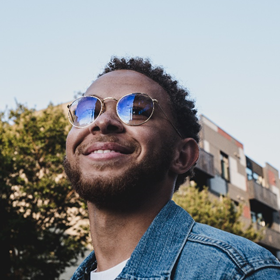
Bio
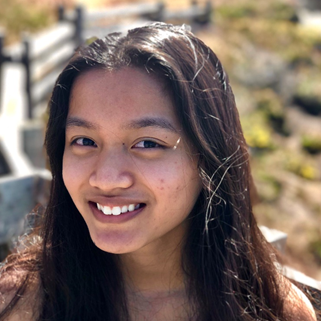
Bio
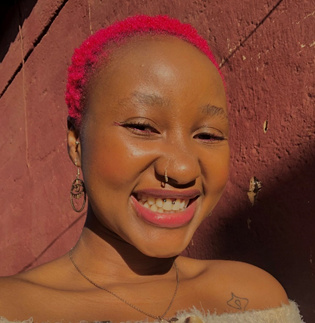
Bio
Global Social Hour, sponsored by HCD Exchange
7:00am - 7:45am PDT
Our Tomorrow Starts Today: Youth Innovation for the Next Generation
8:00am - 9:15am PDT
3 Subsessions
Description
Welcome back for another inspiring day. Our MC, Chris Walker, will get us ready to roll!Speaker

Bio
Chris Walker is a Project Coordinator at ETR with six years of experience working in HIV/ STI prevention. Currently, he coordinates and provides logistical support for several projects on the HIV, Sexual & Reproductive Health services team. His career began in college while attending the University of Memphis. During his time there, he worked with several campus organizations assisting them in creating on-campus HIV/STI testing events and educational forums on cultural inclusivity. Shortly after graduation, he moved to Dallas, Texas, and took his learned skills to the non-profit world. He was a field supervisor for the CDC-funded National HIV Behavioral Surveillance and has experience working directly with marginalized communities. He has a Master's in Public Health from the University of Texas School of Public Health. With a passion for advocacy, he aspires to fight disparities faced by individuals who lack access to equitable healthcare and education.Description
We are delighted to welcome Dr. Titilayo Shodiya as a plenary speaker discussing her strategies of creating community via her podcast, Dope Labs. Using her platform, she meets her listeners where they are and helps them to develop their scientific minds to have greater understand of everyday experiences. She is helping them create healthy skepticism by asking questions and pulling back the veil of how science works. Through this conversation we hope to inspire listeners to share their passion to organize their own communities and learn how technology can help them reach a wider audience.Speakers
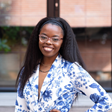
Bio
Dr. Titilayo Shodiya received her Bachelor’s degree in Materials Science and Engineering with a concentration in Electronic and Photonic Materials and a minor in Mathematics from The Pennsylvania State University in 2010. She received her Master’s in Electrical and Computer Engineering in 2012 and Ph.D. in Mechanical Engineering and Materials Science in 2015 from Duke University. In 2017, she started her Post-Doc in the Chemistry department at the University of Michigan – Ann Arbor. Titi is currently the Deputy Quality Manager at The National Institute of Standards and Technology (NIST) supporting NIST’s mission to promote U.S. innovation and industrial competitiveness by advancing measurement science, standards, and technology. Throughout her career, Titi has been an active mentor and started initiatives to encourage women and underrepresented minorities to pursue STEM degrees and careers.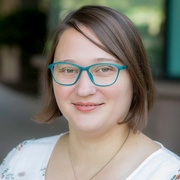
Bio
Emily Green, MA, works primarily on projects focusing on Equity and Inclusion in STEM. She researches K–12 through adult workforce with a focus on how access to resources shifts throughout this process. Prior to joining ETR she worked as a teacher with youth in Santa Cruz County at IRIS Science Academy and Green STEAM Education, where her focus was on teaching hands-on science to alternatively educated students and providing rigorous science education to everyone. It is through these experiences that she discovered the inequity present in STEM education. With her research, she hopes to alleviate these imbalances. Ms. Green received her MA from San Jose State University in Applied Anthropology. She is an experienced qualitative researcher with expertise in data collection with young people and rigorous data analysis. Her current research brings Computer Science (CS) for All to local school districts with a focus on making CS accessible.Description
Project LIYT Next is a pitch competition and learning collaborative focused on inspiring leadership, innovation, and technology within a new generation of public health leaders. For the past nine months, four groups of young people across the country have developed innovative products aimed to target HIV-related stigma through a Trauma-Informed Youth-Centered Health Design (TIYCHD) process. During this year's conference, you will see their ideas come to life and have the opportunity to vote on your favorite! Creating innovations for the next generation! Now let's get LIYT!Speaker

Bio
Chris Walker is a Project Coordinator at ETR with six years of experience working in HIV/ STI prevention. Currently, he coordinates and provides logistical support for several projects on the HIV, Sexual & Reproductive Health services team. His career began in college while attending the University of Memphis. During his time there, he worked with several campus organizations assisting them in creating on-campus HIV/STI testing events and educational forums on cultural inclusivity. Shortly after graduation, he moved to Dallas, Texas, and took his learned skills to the non-profit world. He was a field supervisor for the CDC-funded National HIV Behavioral Surveillance and has experience working directly with marginalized communities. He has a Master's in Public Health from the University of Texas School of Public Health. With a passion for advocacy, he aspires to fight disparities faced by individuals who lack access to equitable healthcare and education.
Trauma-Informed Youth-Centered Health Design (TIYCHD) & The INSPIRE+ Project
9:30am - 10:30am PDT
Youth-centered health design employs principles of positive youth development and human-centered design to position young people as experts in solving the challenges affecting their lives. With the growing popularity and utilization of design thinking to engage young people to address sensitive public health topics, it is imperative that funders, designers and public health practitioners recognize and respond to the traumatic stress of all who participate in the design process. Through a community consultative process, ETR recently created Trauma-Informed Youth-Centered Health Design (TIYCHD). This spotlight will highlight the TIYCHD framework and findings from a TIYCHD pilot with youth in California.
Speakers
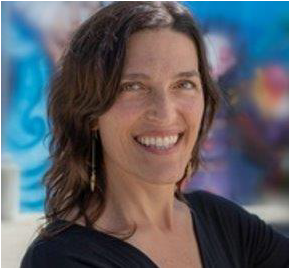
Bio
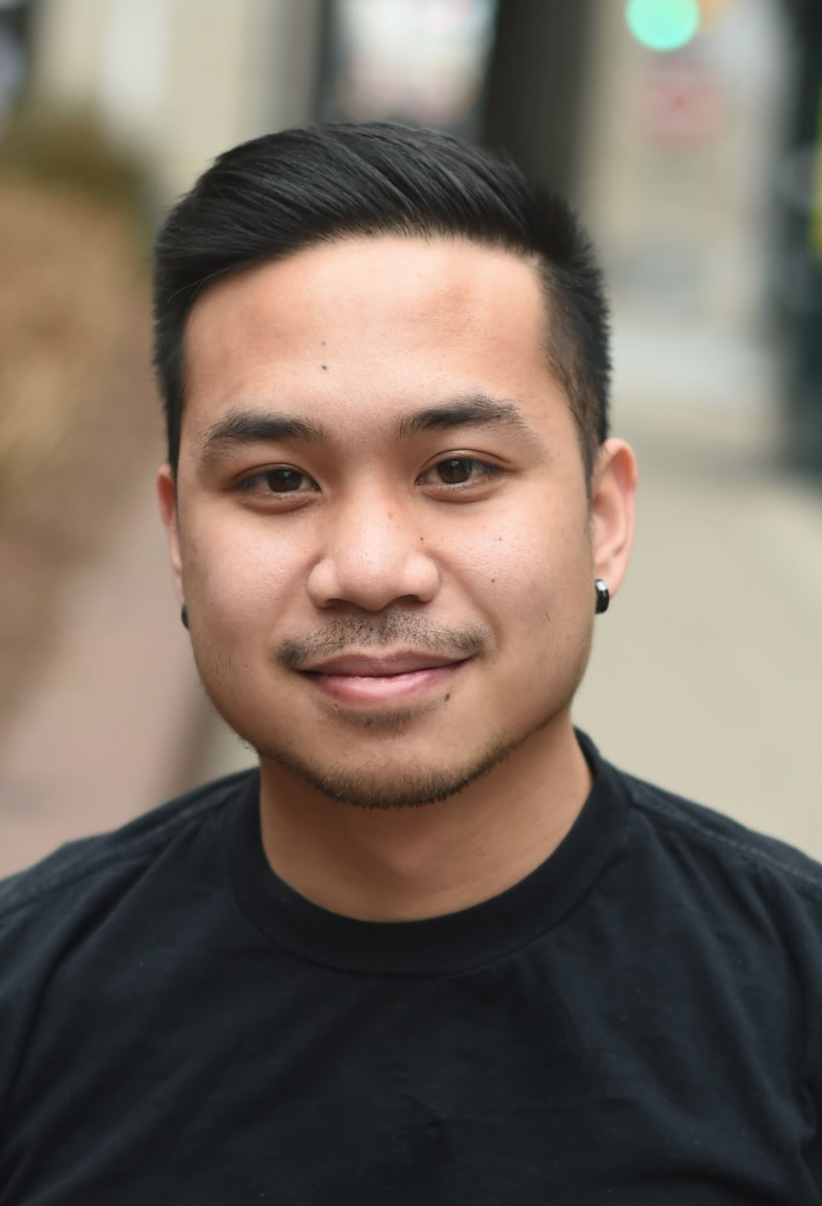
Bio
Empathy Goes Digital
9:30am - 10:30am PDT
In this session, you will hear about three projects that support young people in their social and emotional lives. Learn about one school-based technology integrates screening and intervention, a digital mentoring program, and a video-based training for youth with autism spectrum disorder. You’ll also hear how youth are involved in these initiatives as peer mentors and co-creators.
3 Subsessions
Description
Learn about a successful collaboration with young people with Autism Specturm Disorder (ASD) who contributed as advisors, focus group participants, writers and actors, in the creation of video-based Microskills training to increase their skills to be in healthy relationships – whether with partners, roommates, or work mates. The project developed short sequenced videos to model healthy relationship Microskills – and a national group of diverse young people with ASD and capable of reciprocal verbal communication, participated in the pilot evaluation. As a result of using the SkillFlix video resource, we observed significant improvement in the number of Micorskills participants used between the pre- and post-roleplay sessions for both skills: “apologizing” and “responding to put-downs.” Come and see the videos that sparked positive skill development. Additionally, key learnings from the focus groups, the development process, the pilot results and the usability tests will be shared.Speakers
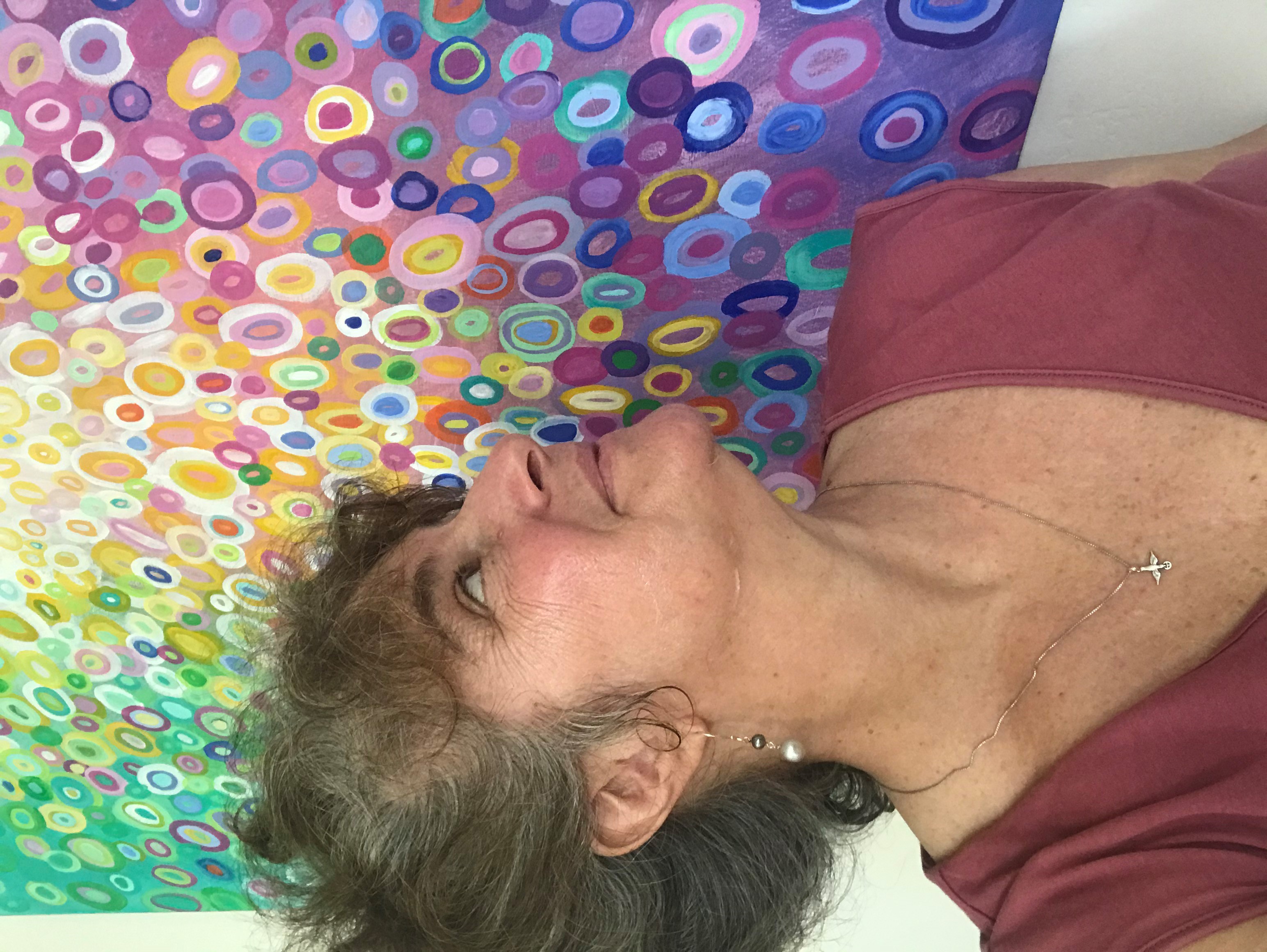
Bio
Regina brings decades of experience in sexuality-related skills-based instruction for youth and their parents and educators. In the last several years she has focused on supporting youth with intellectual and/or developmental disabilities (IDD). She has served as principal investigator on dozens of research and development projects funded by National Institutes of Health, Centers for Disease Control and Prevention, and National Institute of Disabilities, Independent Living and Rehabilitation Research. Regina is the co-founder and CEO of dfusion, an innovative public health small business that prioritizes developing interventions with vulnerable populations to advance their health and well-being.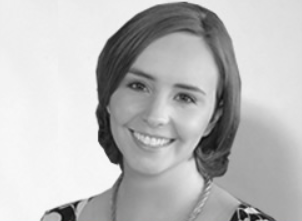
Bio
Lane Edwards, MPH, received her master's in maternal, child, and adolescent health from the Tulane School of Public Health. Her studies focused on sexual and reproductive health and LGBTQ health and wellness. At dfusion Lane has worked as project director on a number of online learning projects targeting parents discussing sexual health with their children with intellectual and/or developmental disabilities(IDD), young adults on the autism spectrum working to develop relationship and communication skills, and pharmacy staff selling non-prescription syringes to reduce bloodborne disease. Lane has also worked on the development of a sexual health app for transgender women. She is passionate about harm reduction, social justice, and inclusive public health care.Description
Youth mentoring is crucial for helping young people navigate adolescence and the transition to adulthood. This session will discuss how mentoring programs—traditionally conducted face-to-face—transitioned to digital solutions during the pandemic and the barriers they had to overcome. Mentoring programs have stepped up to ensure youth are socially connected and feel valued while attending to their physical, mental, and relationship health needs during the pandemic. This research is a collaboration between MENTOR: The National Mentoring Partnership, iCouldBe virtual mentoring, and researchers at Johns Hopkins University. We will present a survey tool for mentoring (and other youth development) organizations to use to assess their own digital readiness to engage with youth via digital means. The survey was tested with dozens of mentoring organizations in the U.S. and Canada to ensure its validity and reliability.Speaker

Bio
Michelle Kaufman, PhD, is a social psychologist by training and an Associate Professor in the Department of Health, Behavior & Society at the Johns Hopkins Bloomberg School of Public Health. Her research focuses on how social factors contribute to health outcomes, particularly for vulnerable populations. She currently holds grants from the National Institutes of Health exploring how the intersection of digital technology and mentoring can improve health outcomes for young people in large urban settings in the U.S. She is a leading researcher in the effectiveness of e-mentoring and has been advising mentoring programs internationally on best practices in e-mentoring, particularly during the COVID-19 pandemic. Currently, she is leading the research component for a grant from the Gates Foundation awarded to MENTOR to study the best practices and effectiveness of e-mentoring.Description
Reclaiming Futures in partnership with Tickit Health have implemented a digitally empathetic self-report technology to support schools with universal, school wide screening (Check Yourself) combined with tiered intervention (SBIRT model). The overarching goal is to promote equity, individual wellness, a positive school climate, and student success. The program has been initiated in King County and evaluated by Seattle Children’s Research Institute and findings are encouraging[1]. ● Universal screening increases equity of access to services ● Roughly 30% of youth had needs identified that were previously unknown to the school ● Students report feeling more understood, connected, and able to get help without feeling stigmatized ● Schools report increased connection to community-based resources Reclaiming Futures is developing a National Learning Community to support schools and districts to implement this approach. Through regular zoom meetings, RF will provide coaching and support, on-going updates, and resources as well as facilitation of peer-to-peer support.Speakers
Headshot%20(1).jpg)
Bio
Dr Sandy Penn Whitehouse, is a Clinical Associate Professor at University of University of British Columbia, Vancouver Canada. Her past work as Medical Director of the Pediatric Emergency Dept., and Provincial Lead for Youth Transition provided a strong foundation in healthcare services leadership. Sandy’s passion to improve outcomes led her to Co-Found Tickit Health, a digital health company with the goal to improve communication between patients and providers, particularly for vulnerable populations. Tickit is based on three pillars; usable, accessible design to engage all people as partners in care, easy to use live data for health care providers and organizations, and flexible, simple integration into healthcare systems .Bio
Evan Elkin is Executive Director of Reclaiming Futures – a national public health organization focused on improving equity and justice in youth serving systems including schools, child welfare and juvenile justice systems. He is a nationally respected innovator and leader in the field of juvenile justice reform, adolescent and family mental health, substance use treatment and youth development. Originally trained as a psychologist at New York University and Columbia University’s Department of Child Psychiatry, and the director of the Department of Planning and Innovation at the Vera Institute of Justice in NYC. Evan is the model developer for the acclaimed Adolescent Portable Therapy treatment model which was a finalist for the Harvard Innovations in Government Award. He has worked extensively in tribal and non-tribal youth justice settings, schools and in child welfare settings helping to advance public health, equity and social justice through innovation and the development of evidence-based practices.
“I Knew You Would Understand;” Peer-to-Peer Sexual and Reproductive Health Interventions
9:30am - 10:30am PDT
When it comes to the needs and interests of youth, who knows better than the youth themselves? In this session, you’ll hear about youth-developed/co-developed interventions to provide sex education in innovative ways. Come hear about the do’s and don’ts of content creation on social media, an online peer-to-peer sex education program, and an application designed to meet the needs of youth in rural Nepal!
3 Subsessions
Description
Sahayogi is a technology-based program that offers adolescents an opportunity to learn about sexual and reproductive health in a fun, engaging, and age-appropriate way. The application designed for tablets and mobile phones and adapted to computer features games, stories, activities, and information in a colorful, interactive format. Paired with the program we used a peer educator approach to encourage the use of the technology in classrooms. This program was developed for rural Nepal and piloted in earthquake-affected areas where the public school system is under-resourced. The focus of the program was information designed to enable young people to challenge harmful social practices such as child marriage, unprotected sexual activity, gender-based violence, and gender discrimination. Using the Sahayogi program as a springboard, young people in rural Nepal developed educational initiatives for their own communities.Speaker
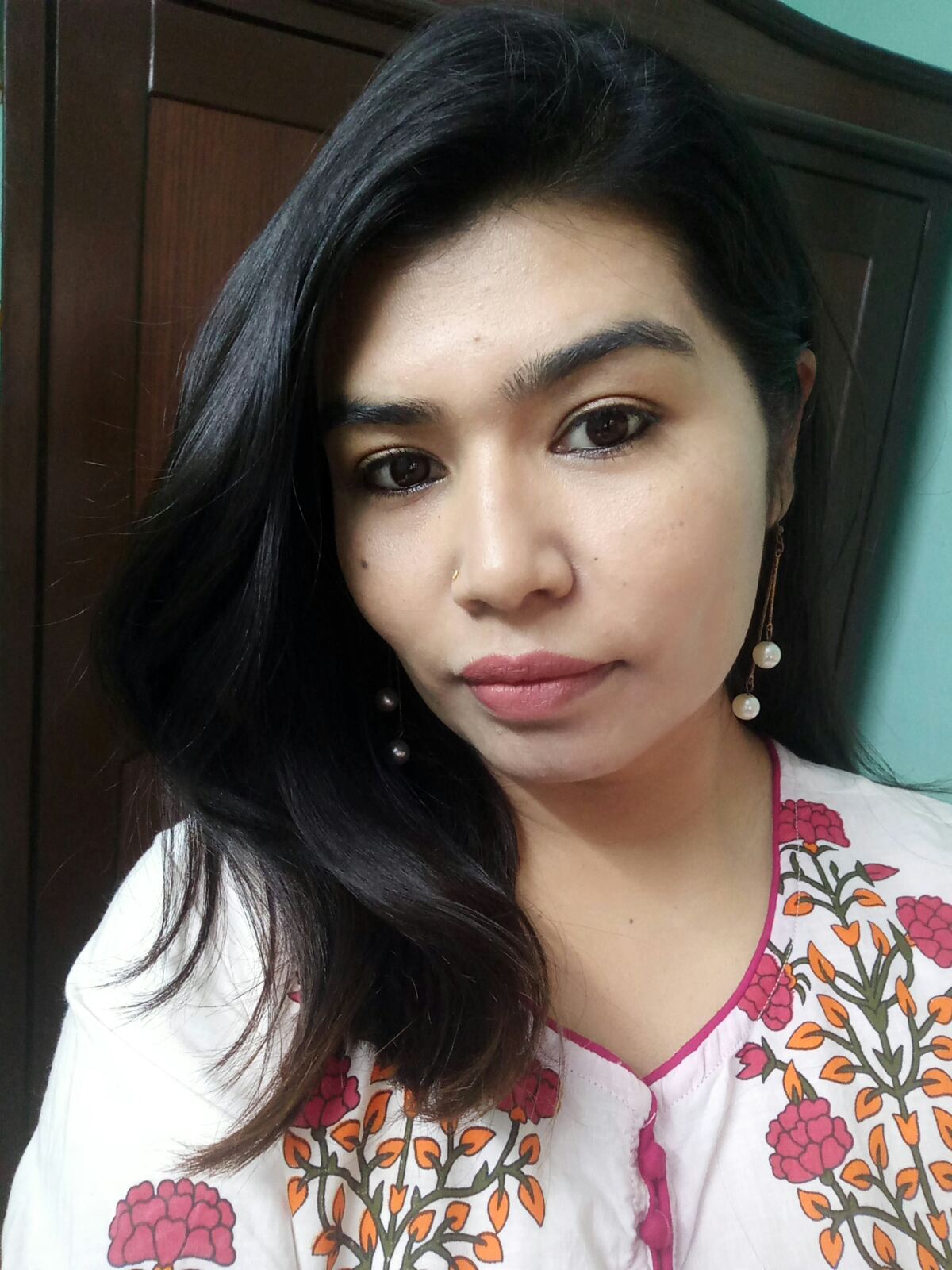
Bio
I am a public health professional currently working in the sexual and reproductive health right (SRHR) sector. My current work is related to women health rights and adolescent sexual and reproductive health rights. I aspire to become SRHR expert in Nepal. Since, Nepal being low and middle income country, there is huge scarcity of data and evidence. Thus, my interest is to do research and generate evidence in SRHR, so that I can advocate and design program based on evidence.Description
The Sexperts Program is an online sexual health peer education program out of Colorado Health Network's #unfiltered Youth Program that was developed in 2019. CHN’s peer educators, or Sexperts, are trained in comprehensive sexual health knowledge and facilitation skills and go on to facilitate up to three sessions with their peers on related topics of their choosing. CHN has partnered with youth to ensure that the program is relevant, engaging, and flexible so that our peer educators are able to use the technology at their disposal to authentically engage their own communities in topics around sexual health. Come learn about challenges and opportunities for improving youth sexual health through technology and collaboration with youth!Speaker
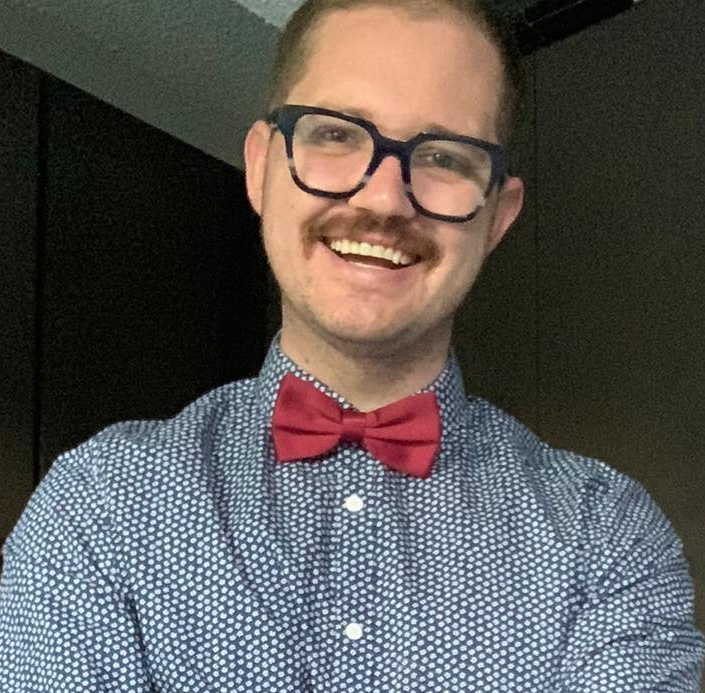
Bio
Chris ZivalichDescription
While successful digital projects FOR youth on sexual and mental health and wellbeing are quite common even in difficult social settings, the fate of those of them that are actually run BY young people is often bleak and uncertain. Why do so many young digital content creators, volunteers and youth organizations fail to engage with their audience? Is there a way for them to make a step from yet another social media community to a digital force to be reckoned with? What are the do’s and don’t’s to shine through in a world of popular sex bloggers, Instagram experts and resources with strong financial backup? Teens.kg team will share some lessons learned in building peer-to-peer digital media on SRHR and similar topics and discuss most common difficulties social media rookies might face on their path to getting their projects up and running.Speaker
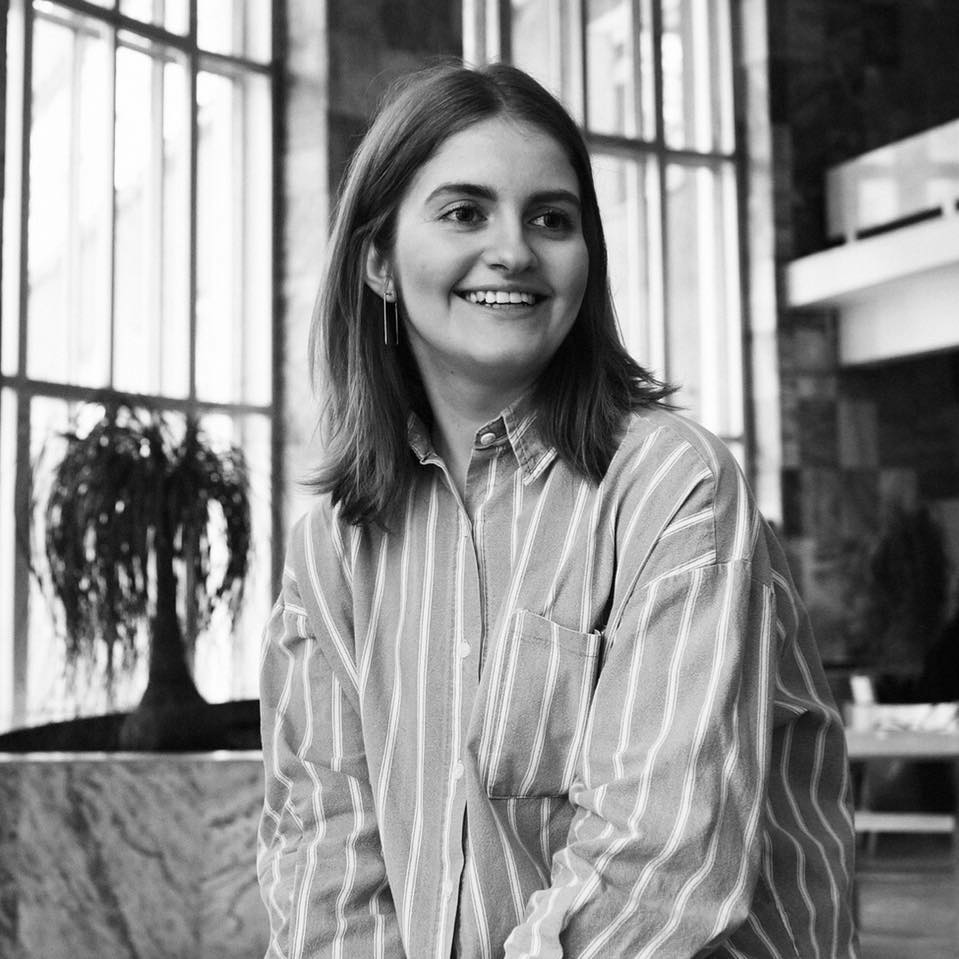
Bio
Alexandra is a Project Associate within the Unit of ICT in Health Education at UNESCO IITE. She has 5 years of experience in coordination of digital sexuality education activities on HIV, SRHR, and violence prevention in EECA. Over the last years Alexandra has been supervising the full-cycle development of digital awareness raising campaigns addressing HIV, access to testing, and rights of people living with HIV. She’s particularly passionate about entertainment communications and within this strand of work supervised the launch of a full-length movie ‘II’ about HIV, LGBTQI+ youth and bullying as well as interactive Kyrgyz series ‘School elections’ about stigma and discrimination of young PLHIV. Alexandra’s portfolio also includes peer-to-peer online resources – websites and social media communities – on HIV and reproductive health in Armenia and Kyrgyzstan, where a youth editorial board system has been introduced to ensure adolescents’ meaningful engagement in health promotion.
The World of Digital Sex Education at Your Fingertips
9:30am - 10:30am PDT
Across the globe, sex educators are finding new ways to deliver sexual health online. Learn how these organizations leverage technology to transform conversations and challenge taboos to address topics such as teen pregnancy and HIV prevention/treatment in Fiji and Zambia. You’ll also hear key suggest factors and recommendations in transitioning to online comprehensive sexual education from Planned Parenthood in Ghana.
2 Subsessions
Description
This panel brings together diverse leaders in digital CSE delivery, programme design, implementation, and research. The panel will discuss the way that the Planned Parenthood Association of Ghana shifted their CSE interventions to WhatsApp during the COVID-19 pandemic and reflect on key findings from a study on promising practices in digital CSE, including key success factors and recommendations. The questions will include: - How were young people involved in the design and delivery of the intervention? - How did they ensure that users could have all their questions answered? - What were the main challenges encountered during implementation and how were they addressed? - How was the digital platform selected? - What provisions are made for those without internet/mobile phone access?Speakers
Bio
Bio
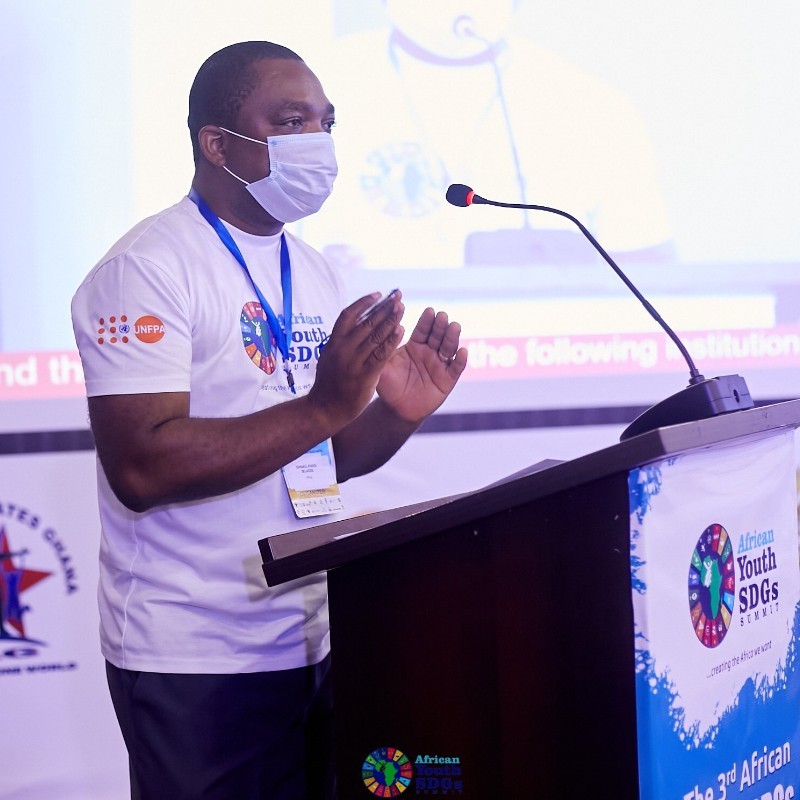
Bio
Ishmael Kwasi Selassie currently works at Planned Parenthood Association of Ghana (PPAG) as a Youth Programmes Manager in charge of the organization’s largest programme portfolio with several projects currently being implemented under his supervision. He leads one of three International Planned Parenthood Federation’s Centres of Excellence on Comprehensive Sexuality Education (CSE) sharing best practices and high impact strategies across the Federation. Ishmael led the work PPAG has undertaken in delivering CSE via WhatsApp during the global pandemic.Description
Young people in Zambia face high rates of teen pregnancy and heightened risk of HIV. The situation is more dire in Samfya District, an isolated region of island communities. But talking about sex is taboo. So how can we ensure that youth have access to essential sexual and reproductive health and rights information? Learn how VSO’s TALK II project used the Amplio Talking Book audio device to engage youth and transform community conversations around sexual health and well-being. The TALK II project was launched in early 2020, and quickly had to pivot in response to the COVID 19 crisis. In spite of implementation challenges, at the close of the project it had in fact far exceeded its goals, because of a team of dedicated volunteers and high levels of engagement with the Talking Books. Join this session to learn more about how the project was able to achieve this!Speakers

Bio
Lindsay is an international development professional with experience living and working in Asia and Africa. As a Peace Corps volunteer, she taught English at a university in Nanchong, Sichuan Province, in China. She then worked with NGOs in Uganda for four years. She has expertise in program monitoring and evaluation, and is passionate about women’s empowerment and gender equity. She earned her MA in sustainable international development at Brandeis University and a BA in philosophy and human rights at Trinity College. In her free time, Lindsay enjoys yoga, cooking good food, hiking, and cuddling with Kavuyo, her rescue cat from Uganda.
Bio
Mavis Banda is the Adolescents TALK! project officer for VSO Zambia. Mavis specializes in managing and implementing Sexual and Reproductive Health and Rights (SRHR) and life skills programs for less informed, marginalized groups and communities. She has worked on VSO’s SRHR initiatives in Samfya District for more than five years, leading training and capacity building for young people, groups, organizations, and district-wide stakeholders. Prior to joining VSO, Mavis was a projects coordinator for MAPODE, supporting advocacy work for children and women’s rights. Mavis has a background in project management, M&E, and human nutrition, and earned her B.A. in Social Work at the University of Zambia. An exceptional trainer, she brings heart and energy to her work.
The World of Digital Sex Education at Your Fingertips
10:45am - 11:45am PDT
Across the globe, sex educators are finding new ways to deliver sexual health online. Learn how these organizations leverage technology to transform conversations and challenge taboos to address topics such as teen pregnancy and HIV prevention/treatment in Fiji and Zambia. You’ll also hear key suggest factors and recommendations in transitioning to online comprehensive sexual education from Planned Parenthood in Ghana.
3 Subsessions
Description
In this research, we explore how sexuality education is delivered in Fiji, opportunities, and challenges. There is an alarming increase in teenage pregnancy and sexuality transmitted infections among young people according to Ministry of Health data. Further, the smartphone and digital media penetration are relatively high with a high literacy rate. Thus we explore here if digital media can be leveraged to better deliver sex education in Fiji to complement what teachers teach particularly in a culture where sex education is not taught at home due to cultural taboos.Description
Explore the nexus of social and behavior change, youth family planning, and the digital realm as the Breakthrough ACTION project launches its recommendations for leveraging “digital” to reach young people with the information they seek and need about family planning. In 2020-2021, Breakthrough ACTION conducted a multi-method assessment to understand how youth around the globe seek, vet, and share family planning information using social, web-based, and messaging platform media. We reviewed literature, interviewed key informants, and surveyed youth. The result is a series of dynamic, program recommendation videos for those working in international youth family planning who want to benefit from digital technologies’ expanding potential and audience reach. Come learn about the assessment’s findings, recommendations – and the project’s next steps.Speakers

Bio
Erin Portillo is a Senior Program Officer with the Johns Hopkins Center for Communication Programs, where she works on youth-, family planning-, and francophone Sub-Saharan Africa- focused social and behavior change programs. She has 10+ years of international development experience on topics including family planning, sexual and reproductive health and HIV education and prevention.Bio
Catherine Harbour is a seasoned social and behavior change researcher and monitoring specialist, having worked across technical areas including reproductive health, malaria, WASH, and media exposure.Description
To investigate what youth want out of their health care experiences, we partnered with the MyVoice text messaging research project to text five questions to over 1,000 youth around the country. In our interactive presentation, we will share highlights from the themes that we discovered from our youth respondents, including the barriers youth face, what would make accessing care more convenient, and what makes youth feel most (and least) respected and valued. Results of this study were recently published in the Journal of Adolescent Health.Speakers
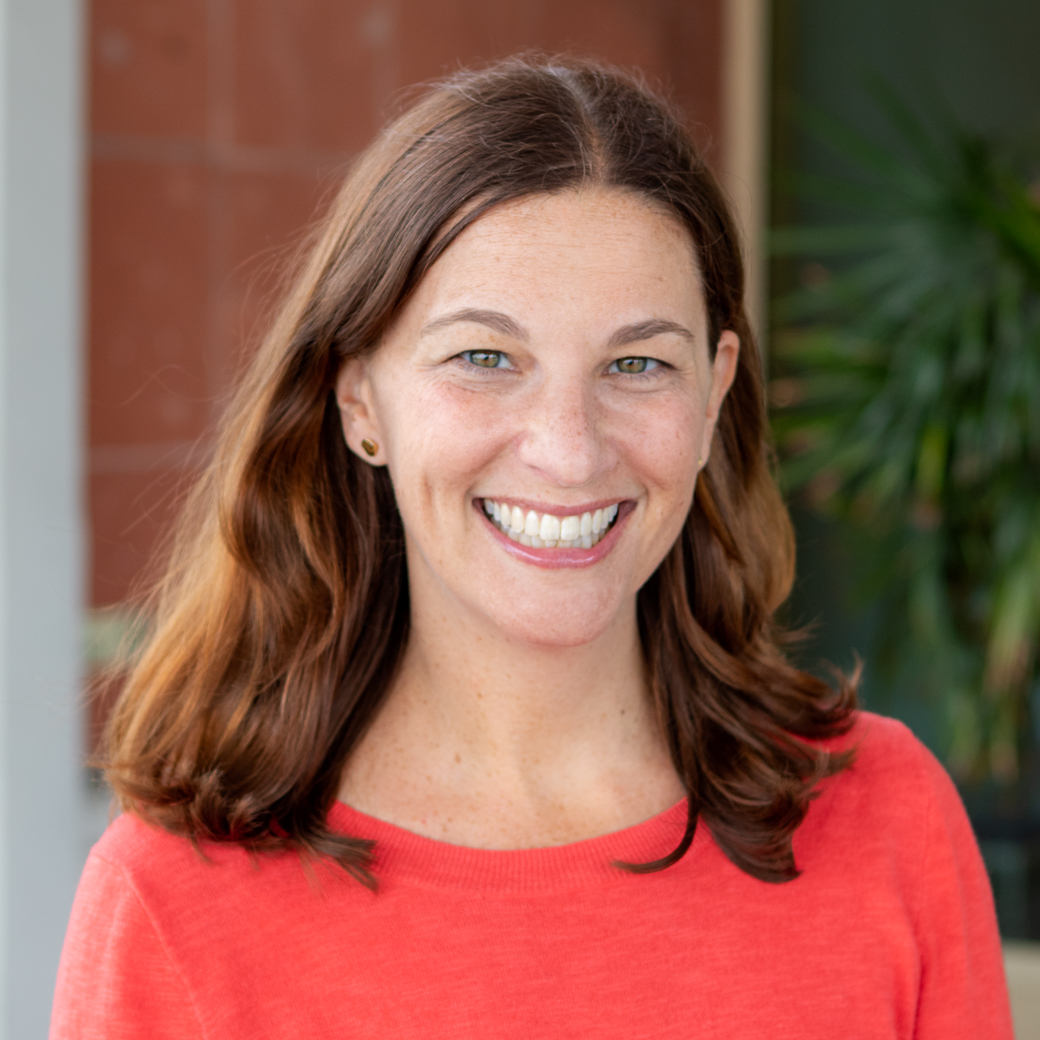
Bio
Lauren Ranalli, MPH, is a dedicated public health professional with 20 years of experience in the field. Prior to joining ETR as the Director of Marketing and Communications, Lauren was the Director of the Adolescent Health Initiative, the Director of Marketing and Communications for the Department of Community Health Services at Michigan Medicine, and the Vice President of the Michigan Chapter of the Society for Adolescent Health and Medicine. She has a Masters of Public Health from the University of Michigan and a BA in Psychology and Education from Washington University in St. Louis.Bio
Jenni Lane has worked in the field of positive youth development and adolescent health for the past twenty years in varied settings, including traditional classrooms, outdoor experiential education, sexual health education, and youth-driven peer education and social change programs. She is committed to strengthening youth/adult interactions through expanding adults’ capacity to partner with young people in authentic ways. Jenni has a particular interest in the ways parents and healthcare professionals prepare young people for a lifetime of engaging in their own health, through dialogue, practices, procedures, and policies.
Can social entrepreneurs improve delivery of DMPA-SC contraceptive to last mile communities?
10:45am - 11:45am PDT
How do you deliver self-injectable contraceptives when working outside public health networks? In April 2021, seven experimental pilot programs attempted a solution. Seven innovative health entrepreneur teams were recruited as part of a health delivery prize. Their goal was to design an improved model for delivering DMPA-SC to underserved women. Though the teams focused on the same challenge, they took wildly different approaches. Some sought to expand awareness and demand among women; ensure that products were provided conveniently, privately, and ethically; and that long term support was available. The pilots took place in Ethiopia, Nigeria, and [Other Countries]. Now six months later, the program designers from D-Prize and the Family Planning team at the Bill and Melinda Gates Foundation are excited to share lessons learned.
Speakers

Bio
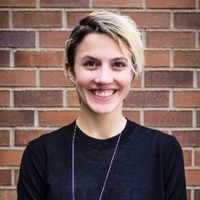
Bio
There’s an App for that; Co-Designing Apps with Young People
10:45 - 11:45 PDT
When it comes to partnering with young people, these panelists know what it takes to create a powerful collaborative relationship that ultimately leads to success. This expertise varies in type amongst these panelists, from youth-led content creation around sexual and reproductive health, to youth co-designed games exploring the impact of bias and harassment, to youth-created platforms and peer mentorships that help youth make choices that will protect their mental health when on social media. Join these experts as they share how to build collaborative relationships with young people, ultimately leading to innovative products meant to improve young peoples’ material lives and conditions.
3 Subsessions
Description
Step Up is an interactive digital game prototype produced by the Center for Interdisciplinary Inquiry and Innovation in Sexual and Reproductive Health (Ci3) at the University of Chicago and co-designed with youth stakeholders. The game tells the story of a diverse group of high school students taking part in an assembly on STEM/health careers. Based on true stories gathered from students from Chicago’s South and West Sides, Step Up explores the ways in which bias and harassment can affect the career path of people from underrepresented minority groups from a trauma-informed perspective, and how support from their community, especially friends and mentors, can empower them to succeed. In this session, we’ll hear from one of the young people involved in the co-design process, walk through part of the Step Up prototype with the design team, and discuss results from Phase I playtests.Speakers
Bio
Ailea Stites is the Youth Engagement Lead at Ci3 at the Univeristy of Chicago. They began their career as a sexual health educator for a reproductive healthcare system in Kansas. There, they built relationships with new community partners by creating comprehensive, asset-based sexual health education curricula tailored to specific populations, including LGBTQ+ participants and participants with disabilities. At the University of Chicago, they have been involved with medical education and mentorship and youth engagement. Their earned their Bachelor’s degree in Comparative Literature from Princeton University, where their thesis work focused on how Black narrative fiction can inform and improve public health policy toward a more equitable future.Bio
Mason provides game design expertise and leadership for all of Ci3’s game projects including digital games like Bystander and other analog games from the Center’s suite of Health Academy (HHA) games. As a game designer, he has developed several effective analog games for the Center’s multi-year HHA intervention, funded by the National Institutes of Health. Mason earned a BA from Columbia College Chicago. A lifelong Chicago Bears fan, you can find him supporting Chicago’s football team every year—whether they’re good or not.Description
“What impact does social media have on youth mental health, and what steps can we take to make this impact more positive?” We know what adults might say, but what about teens themselves? #GoodforMEdia is a campaign that harnesses the power of youth voice and peer mentorship to establish a platform where youth can learn from one another, talk about their struggles, and share wisdom and advice on how to engage with social media in positive and healthy ways. Our goal is to promote a culture where youth feel safe and empowered to engage with social media with authenticity and wellbeing in mind. Our three youth co-creators will share our process for developing #GoodforMEdia, what we have discovered and learned along the way, and how we utilize both research and lived experiences to mentor other youth to make choices that will protect their mental health when engaging online.Speakers
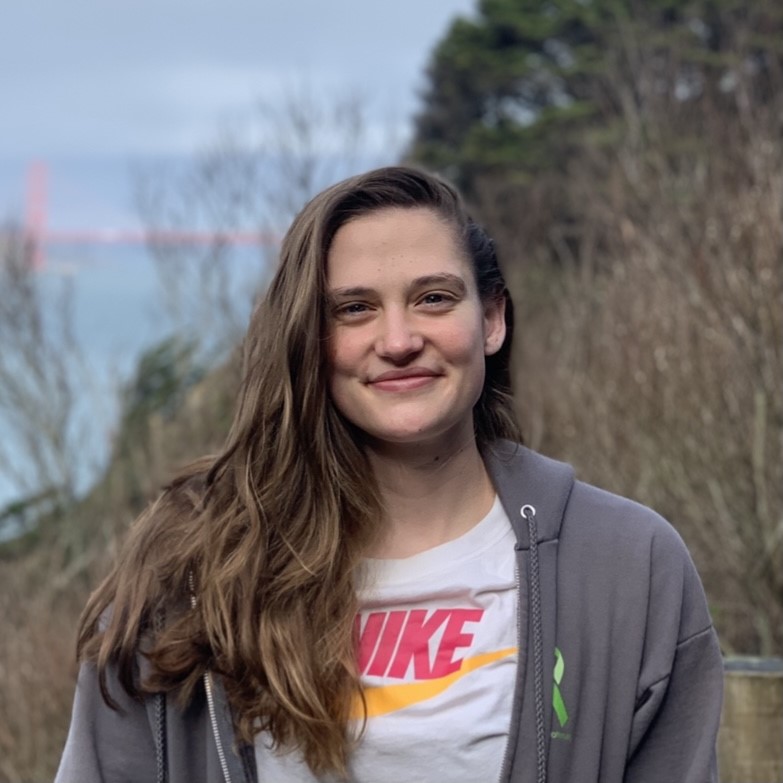
Bio
Zoe is currently a sophomore majoring in Neurobiology with a minor in Health care Social Issues at UC San Diego. She is passionate about social justice and advocacy--particularly surrounding mental health. She got involved with #goodforMEdia because so many youth use social media, and it is important that they have strategies and ideas to make sure that it has a positive impact on their mental health.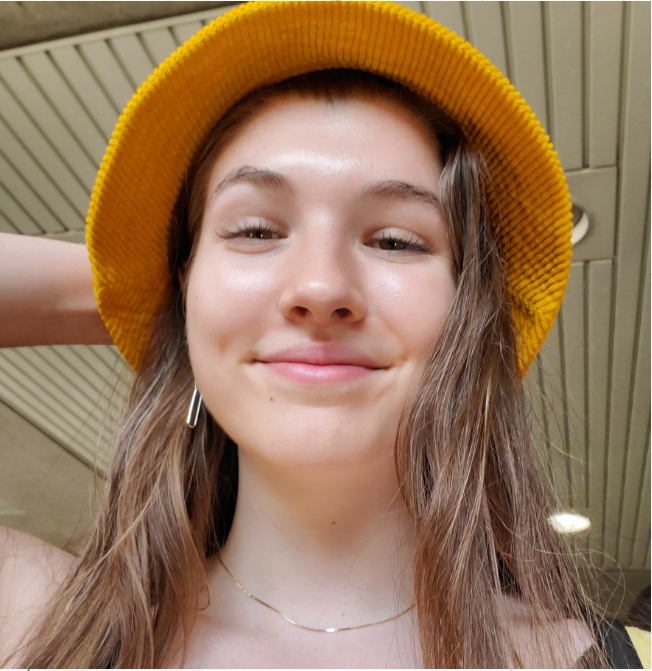
Bio
Kyra is currently a sophomore at UC San Diego majoring in Marine Biology with a minor in Environmental Systems. In addition to mental health advocacy, she is very passionate about climate change mitigation and the conservation of marine ecosystems. She became involved with #goodforMEdia to help youths develop a healthier relationship with social media and to destigmatize conversations about mental health.
Bio
Emily is a junior in high school. She is involved with #goodforMEdia because she wants to decrease the stigma around discussing mental health. Growing up in the Bay Area, she has become acutely aware of how much people — specifically teens and young people — need a safe space to discuss, share, and learn more about this subject. She tries to use social media in a positive way to enhance her mental health and wellness, and wants to help other kids navigate the balance between social media and overall wellbeing.Description
Meet the Mobikaars - a new generation of SRHR content creators! Media plays a critical role in bringing sexual and reproductive health matters to the attention of people who influence public health policies. Love Matters India has launched a public interest journalism course for young people to develop and hone their skills to bring out SRHR issues in a more balanced manner with an empathetic voice for mass dissemination. Join us to know more about the experience of young people claiming their voice and producing quality SRHR content for their peers and members of the community.Speakers
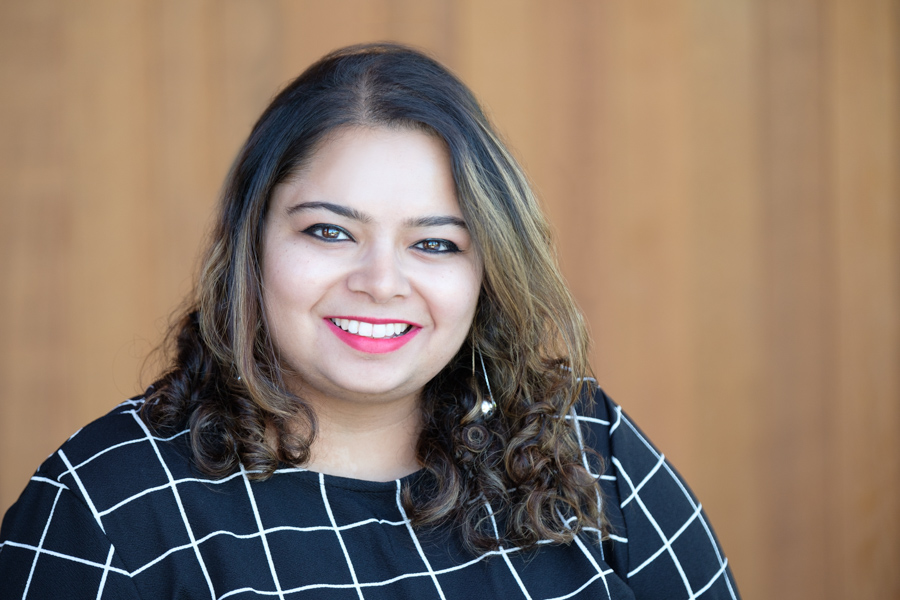
Bio
Jahnavi Sharma is a young and dynamic Sexual and Reproductive Health and Rights professional in India. Leading a project on Comprehensive Sexuality Education at Love Matters India/ Development Consortium and works as a Project Manager with the organization. Has seven years of experience in the development sector and development communication field. A recent Rise Up Youth Champions Initiative (YCI) fellow and one of the youngest leader selected for the Aritra Leadership Accelerator Programme by Indian Institute of Management Bangalore, Phicus Social Solutions, and Dr. Reddy’s Foundation. She is working towards normalizing conversations regarding sex for adolescents and young people. She engages with young peer educators in building their capacities to help them grow as youth champions on-ground in Bihar, India. She is passionate about advancing reproductive justice discourse on gender and sexuality issues pertaining to young people, including the right of all people to have access to safe abortion.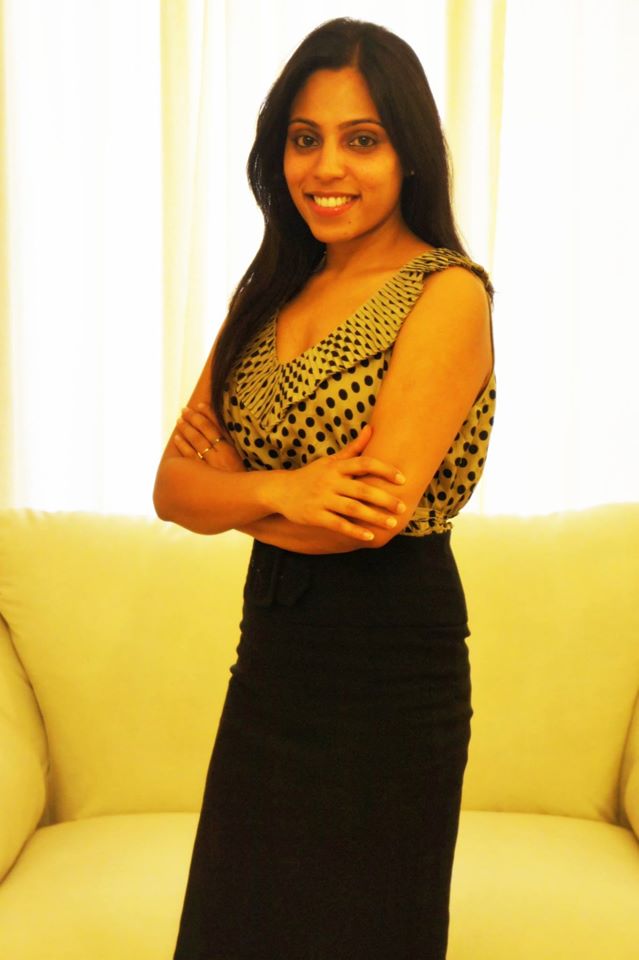
Bio
Vithika Yadav is an anti-slavery, sexual rights, and gender rights activist; and a social entrepreneur with over 18 years of experience. In 2016 she received the honor of being one of the Top 120 under 40 New Generation of Family Planning leaders in the world, an initiative by Bill & Melinda Gates Institution for Population and Reproductive Health. She has also been featured in the award-winning documentary #FemalePleasure. She is also the Chair of 'The Global Advisory Board on Sexual Health and Well-being'. Vithika is the Co-founder of Love Matters India, which is the first ever and most popular Digital initiative in India to give complete, honest, and non-judgmental information on Sexual and Reproductive Health and Rights to young people in India in both Hindi and English language. She is also the Founder of TeenBook - India's first comprehensive life skills resource hub for adolescents, teenagers, parents and educators.
The Art of online counseling/moderation for young people about sex and relationships
10:45am - 11:45am PDT
The session will focus on how to have personalized answers/counseling on different social media platforms to serve young people about sex and relationships. We want to share our 6 years of experience of answering thousands of questions on our different platforms to support other interventions to provide quality information. The session will full of hands-on training and examples from our discussion board for many sensitive issues about sexual health, reproduction, and relationships.
Speakers
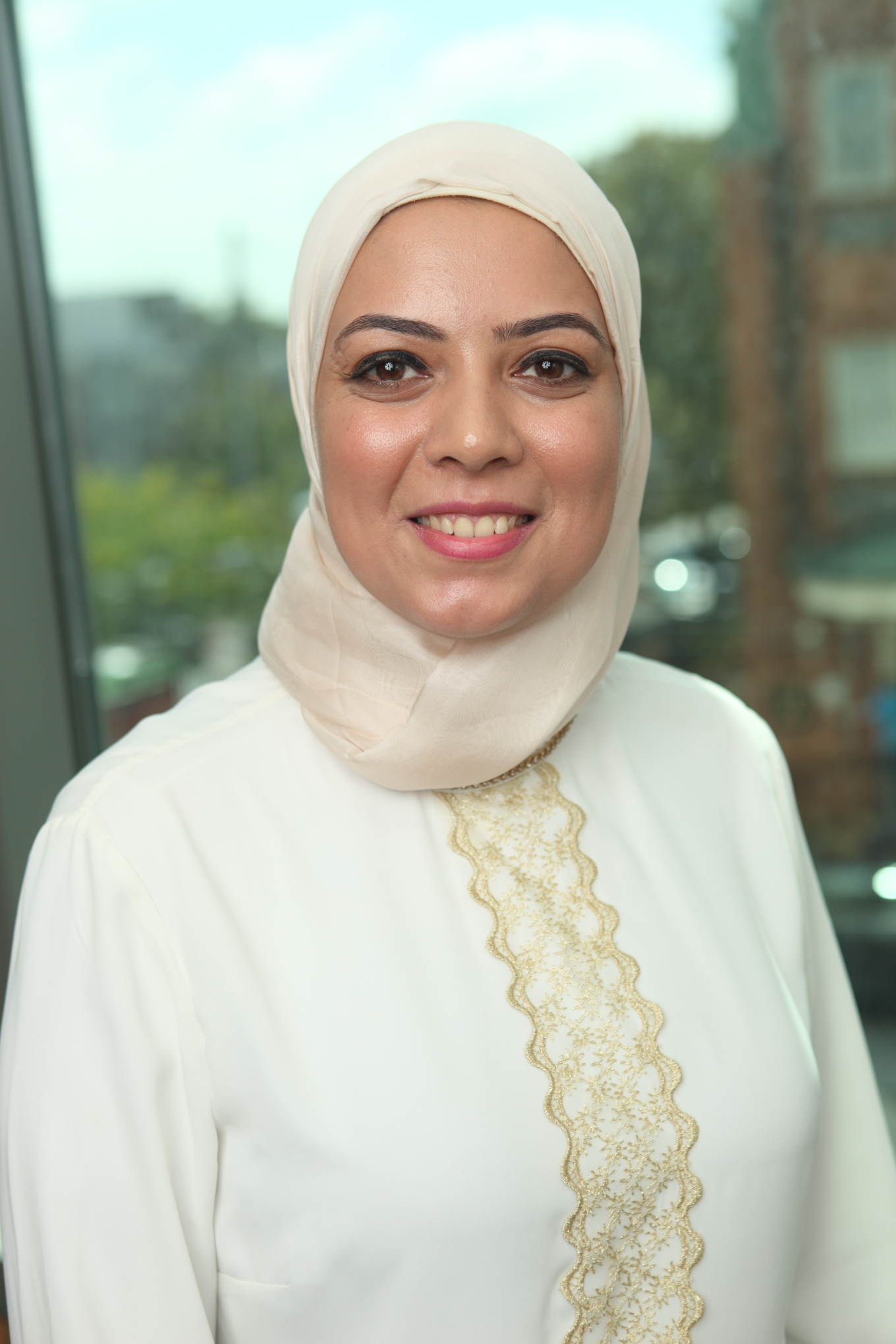
Bio
Bio
Bio
Youth Lounge, sponsored by the International Conference on Family Planning (ICFP) 2022
11:45am - 12:30pm PDT
Join youth and youth-serving professionals from across the globe for engaging and insightful conversations about Youth + Tech + Health!
Fireside Chat: Lisa Boyd, Lyft
12:30pm - 1:30pm PDT
As a founding member and the leader of Lyft’s social impact team, Lisa has spearheaded the creation, launch, and growth of LyftUp — a suite of initiatives focused on increasing transportation access and equity for low-income communities. She also leads Lyft’s company-wide Environmental Social & Governance vision and strategy. Previously, she advised hundreds of companies on social impact strategy through her roles at Pledge 1% & DoSomething Strategic. Join us for an engaging conversation – bring your questions!
Speaker
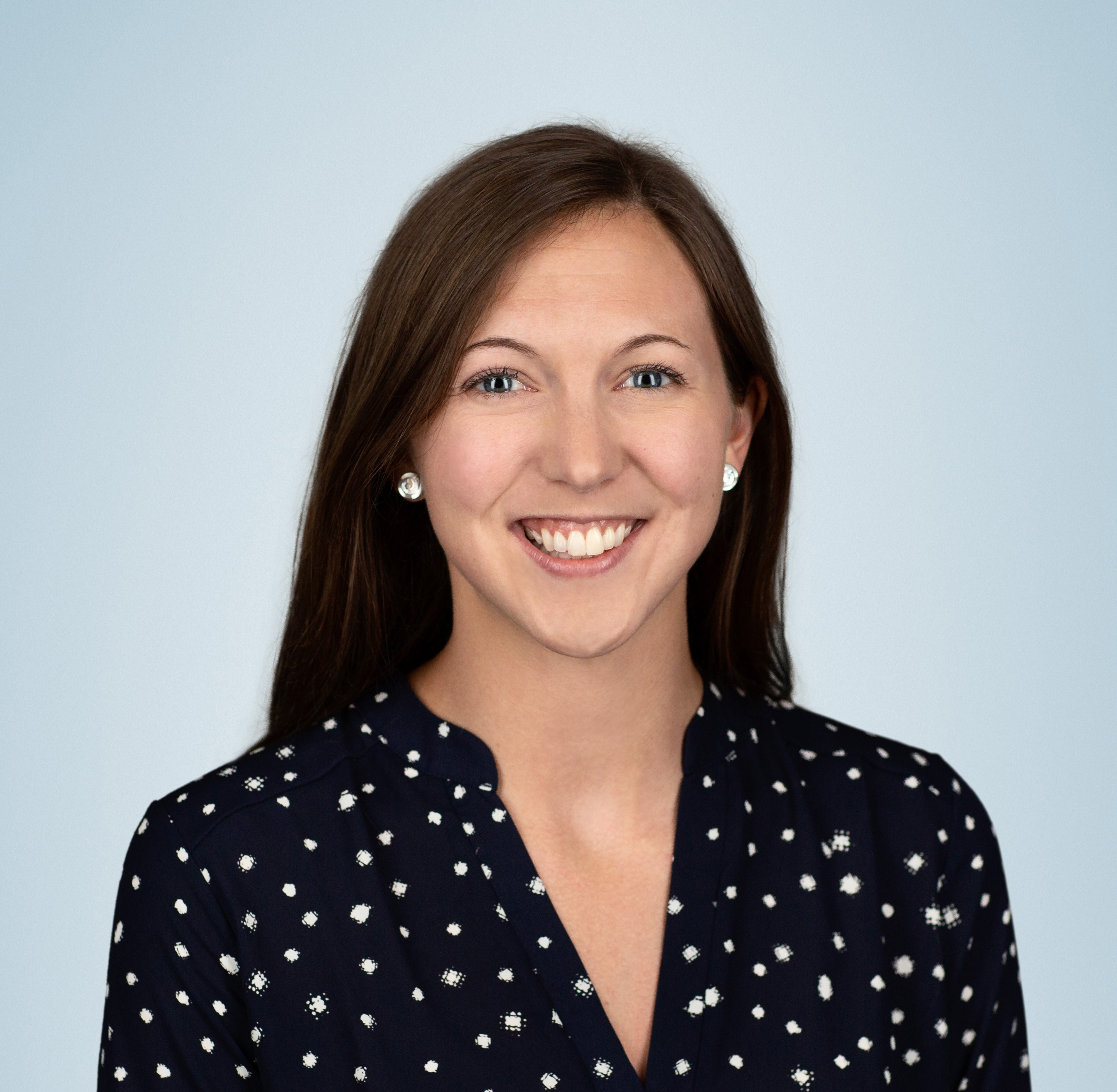
Bio
Mental Health, Digital Dilemmas, and the Social Emotional Lives of Youth
12:30pm - 1:30pm PDT
Current SEL instruction designed for face-to-face interactions is insufficient for addressing digital spaces due to differing social cues, emotional expression, and communication methods. This session immerses you in tools and resources to simulate the online interactions students may encounter in their digital lives and demonstrates videos that can be used to spark conversations to enhance classroom community and build culture. Participants in this session will learn 1) the pandemic/post-pandemic digital landscape for teens and its impact on their mental health 2) how SEL instruction differs for digital spaces and why it is necessary 3) which tools, resources, and methods educators can use to create safe digital spaces in a complex online world. With increased online exposure, learn how to ensure that the digital space is one that is nurturing and safe for all youth and give them the skills they need to address the complex situations they face online.
Speakers

Bio
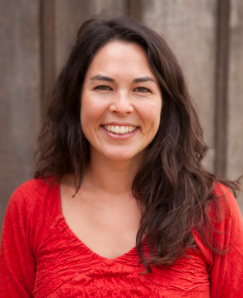
Bio
Teaching about S3x and Pr0nography in a Digital World: Challenges and Opportunities
12:30pm - 1:30pm PDT
Porn is more accessible than it’s ever been – but where can we find information about porn? And if porn is so accessible, why are sex educators experiencing censorship on major social media platforms? Join this panel to hear what researchers know about young people’s attitudes toward porn and possible impacts on their behavior and skills for educators and parents to talk to adolescents about sexual health with regard to pornography. You’ll also hear about barriers to sharing sexual education information on social media through censorship, and a global survey that aims to document experiences of content take-down.
3 Subsessions
Description
How are social media platforms censoring sexual and reproductive health content? This research presentation explores the ways that unclear rules and faulty machine learning classifiers are hindering the ability of sexual health organizations to reach young people globally. We offer a case study analysis of an independent Australian YouTube-based sex-education series, ‘Bits and Bods’, which was negatively impacted by Facebook and Instagram’s automated content moderation processes. We also introduce a new international, multilingual survey for health promotion organisations that want to share their experiences of content take-down.Speakers
Bio
Kath Albury is Professor of Media and Communication at Swinburne University of Technology. She co-leads the Digital Participation program in Swinburne's Social Innovation Research Institute and is an Associate in the ARC Centre of Excellence for Automated Decision-Making and Society. Her research focuses on young people's practices of digital self-representation, and the role of digital technologies in formal and informal sexual learning. Previous projects have investigated young people's responses to 'sext-education', and explored dating app users' perception of safety, risk and wellbeing on apps. Kath currently leads the Swinburne team on the eSafety Commission-funded 'Improve Your Play' project, a partnership with the Alannah and Madeline Foundation. The co-design project works with young men aged 15-17, developing strategies and interventions that promote respectful online engagement and prevent image-based abuse.Bio
Dr Zahra Stardust is a socio-legal scholar working at the intersections of sexuality, technology, law and social justice. Her doctoral research, which won the Dean’s award for Best PhD Thesis, examined the regulation of queer and feminist pornographies through criminal laws, classification codes, platform governance and the capitalist co-optation of sexual subcultures. Over the last 15 years Zahra has worked in policy, advocacy, legal and research capacities with community organisations, NGOs and UN bodies on human rights in Australia and internationally. Zahra has taught in law, criminology, public policy, social research, gender studies and politics at the University of Sydney and the University of New South Wales. Recently, Zahra has worked on Australian Research Council-funded projects exploring intoxication evidence in sexual assault trials, the policing of public order offences and the criminalisation of homelessness.Description
Pornography use inspires intense public debate and brings up many questions about how porn might influence young people’s sexual attitudes, behaviors, and health. But what is pornography and how should we be talking about it in sex education? This presentation will discuss what researchers know (and don’t know) about how pornography might impact young people’s sexual health and report the challenges to addressing this complex topic in the field of sex education., We will share what we know of young people’s views of pornography as well as recommendations based on conversations with educators and researchers for how people interested in adolescent sexual health can address pornography in ways that honor young peoples’ experiences.Speakers
Bio
Gillian Silver, MPH, CHES, is a project coordinator at ETR who works to develop organizational strategies to improve the reach and scope of ETR’s research in multiple areas of health equity and education. Gillian holds an MPH in Community Health Sciences from UCLA with a specialization in Health Education/Health Promotion. As a student, Gillian supported the creation of a gender-affirming sexual health program for trans and nonbinary youth at Children’s Hospital Los Angeles Center for Transyouth Health and Development and helped create organizational change driven by staff members of trans experience. Gillian earned their MPH after several years of work in the fields of sexual health education and intimate partner violence prevention and intervention. They are dedicated to supporting individuals achieve the sexual health and relationship outcomes that they desire, and to uplifting LGBTQIA communities and all people with marginalized identities.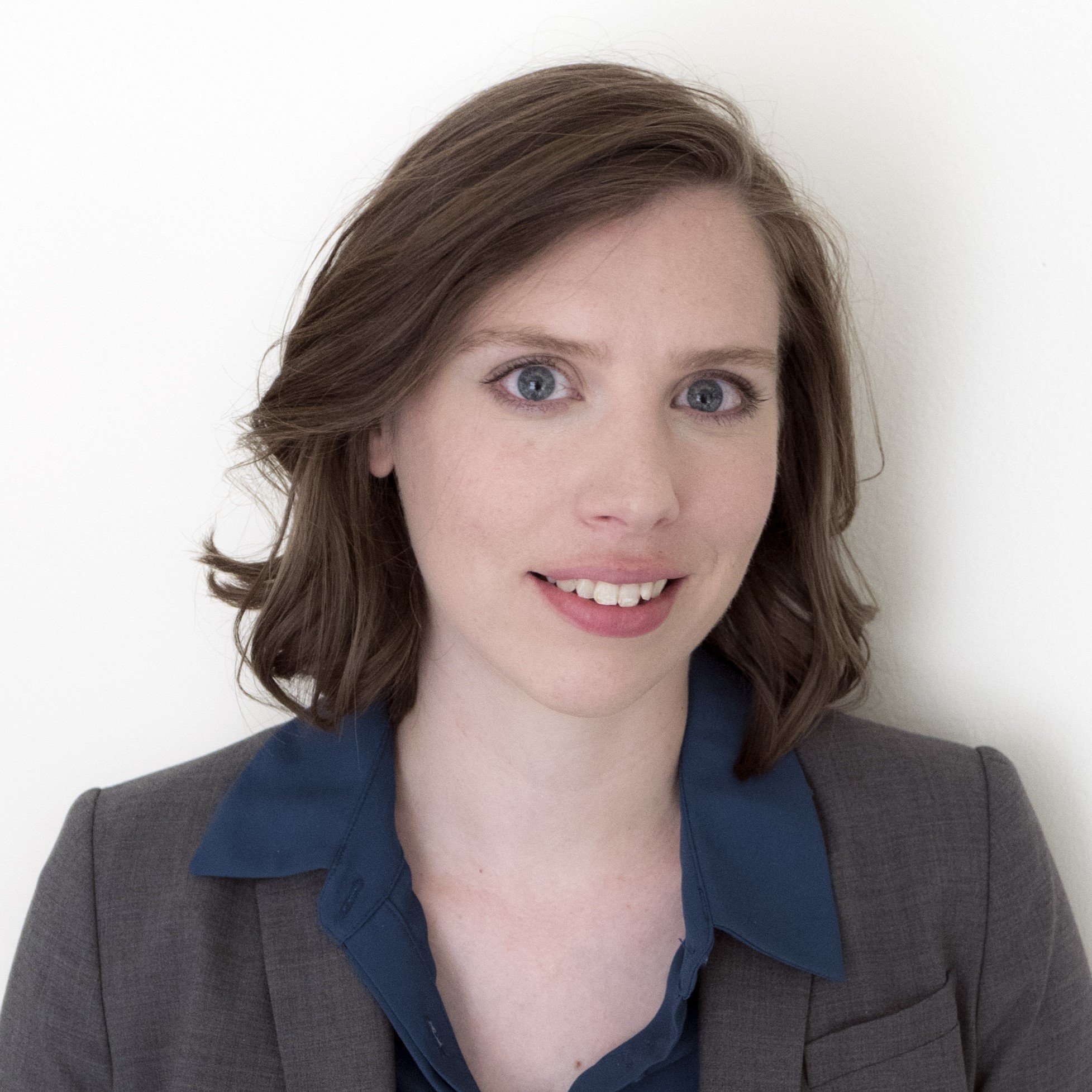
Bio
Amy Peterson (she/her/hers), PhD, is a Senior Research Associate at ETR. Amy manages the Kirby Summit, an annual expert convening focused on fostering collective dialogue on research, programs, and policies to promote the sexual and reproductive health of young people. The 2020-21 Kirby Summit brought together transdisciplinary experts to explore sex education’s role in addressing adolescent pornography use. In addition, Amy leads a strategic initiative on health equity centering on ETR’s Health Equity Framework (HEF) and has expertise in the implementation of school-based sexual health programs and in conducting quantitative and qualitative systematic reviews. Amy has a PhD and MSc in public health from the London School of Hygiene and Tropical Medicine.Description
Wondering how to talk about pornography with young people? Learn about SkillFlix for Educators and Parents! A patented technology that uses video streaming libraries designed to build the Microskills of parents, trusted adults and educators needed to talk to young people about sexual health and challenging conversations including pornography. This presentation will convey the findings from parent focus groups (conducted in English and Spanish), discuss the development of the Skillflix training tool, and display videos of trusted adults talking about pornography with youth. using skills to impact their perception and understanding of sexually explicit media.Speakers

Bio
Vanessa Mejia is a widely respected leader in public health. She is an experienced educator and behavioral health scientist specializing in youth, maternal and child health, sexual and reproductive health, evidence-based programming, and organizational management/ development. With over a decade of experience working in sexual health, Vanessa has worked in a range of settings including universities, public schools, non-profit/community-based organizations, and city agencies. She provides training, education, and evaluation assistance in maternal and child health, and sexual health including teen pregnancy and HIV prevention. Vanessa is a columnist for the Sexual Health Magazine and associate at Long Island University where she teaches graduate courses in Social and Behavioral Sciences/ Public Health Theories, Epidemiology, Human Sexuality, Health and communication strategies, and program planning for public health professionals. Ms. Mejia holds MPhil and MPH degrees from Long Island University, is a certified lactation consultant, and is working towards her doctoral degree.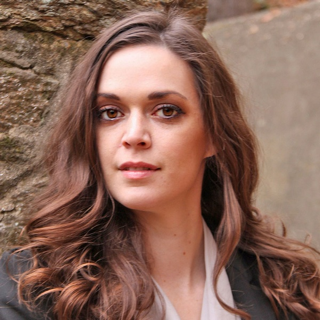
Bio
Mia Barrett, M.Ed, earned her Masters of Education in Human Sexuality from Widener University. With a decade of experience in sexual health education, she worked in a range of settings including teaching in public urban schools, providing HIV testing and counseling, and offering emotional support to those choosing to terminate a pregnancy. She has provided training, education, and evaluation assistance in sexual health including teen pregnancy and HIV prevention. She has coordinated randomized controlled trials including school-based, community-based, and mhealth/elearning interventions. She has trained other sexuality educators both in-person, virtually and through elearning. Her passion is creating tools to support other educators so that they can better engage and impact young people.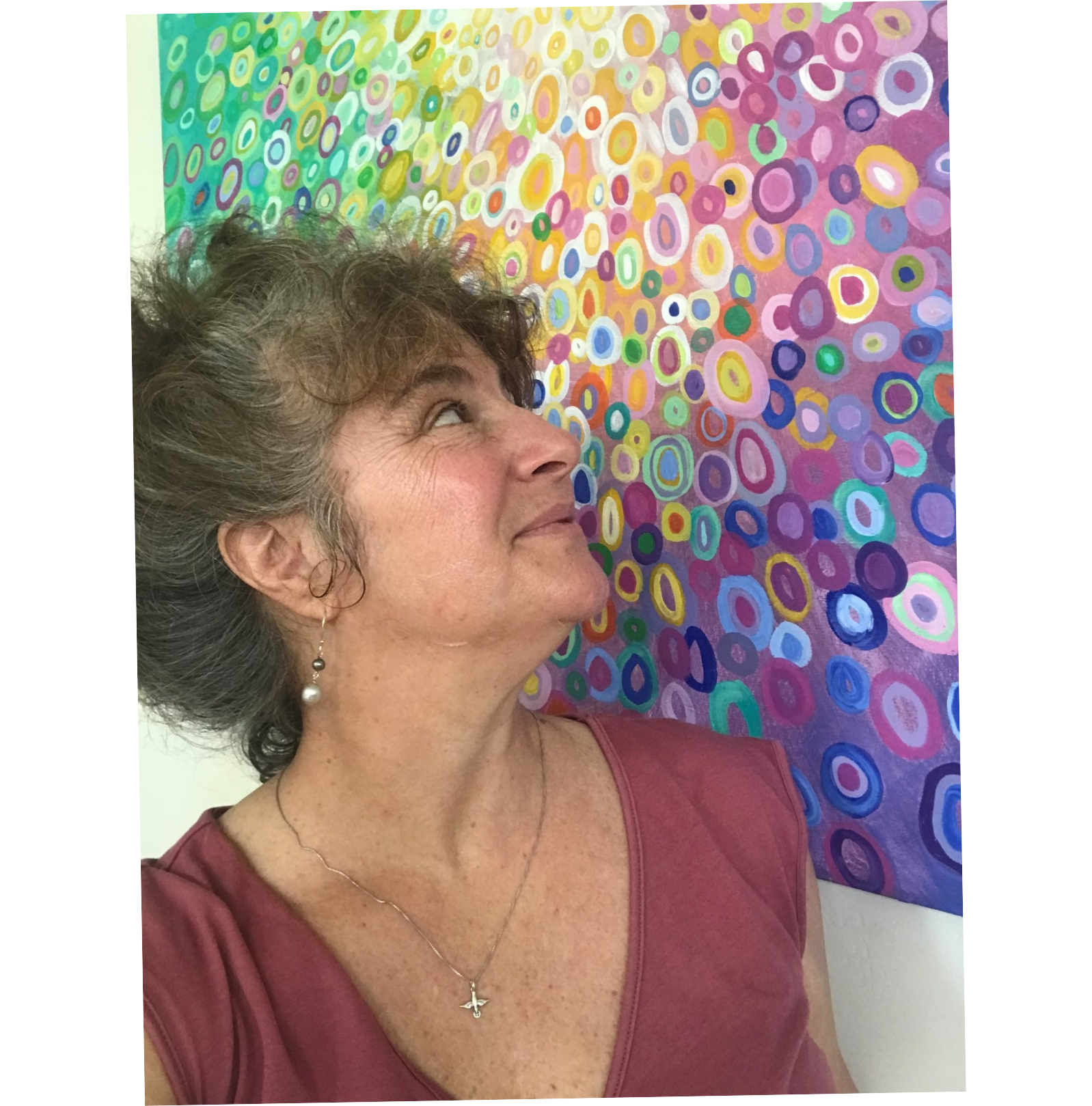
Bio
Regina brings decades of experience in sexuality-related skills-based instruction for youth and their parents and educators. In the last several years she has focused on developing and evaluating innovative strategies for remote skills instruction. She has served as principal investigator on dozens of research and development projects funded by National Institutes of Health, Centers for Disease Control and Prevention, and National Institute of Disabilities, Independent Living and Rehabilitation Research. Regina holds an MPH in school and community health education. Regina is the co-founder and CEO of dfusion, an innovative public health small business that prioritizes developing interventions with vulnerable populations to advance their health and well-being.
One Love: Love is Learned
12:30pm - 1:30pm PDT
Do you ever wonder if you missed the day in school when they taught everyone how love works? We grew up learning that love is a feeling. We watched it onscreen and heard about it in our favorite songs, but there’s so much we didn’t learn and were left to figure it out on our own. One Love is here to change that! Join our session to find out how love is learned--and how you can teach it. Explore the difference between healthy and unhealthy relationship behaviors using One Love’s 10 Signs. Get an exclusive look at our engaging, professional film content, created by young people for young people. Discover the One Love Education Center, where you'll have free, unlimited access to all of One Love's trainings, films, and other relationship health resources.
Speakers
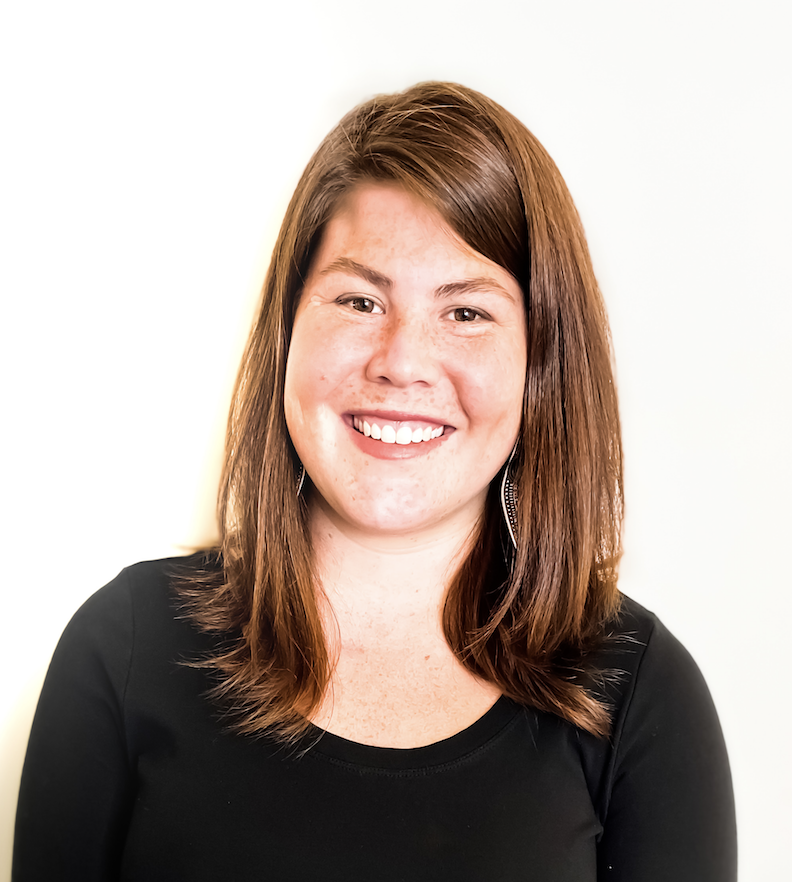
Bio
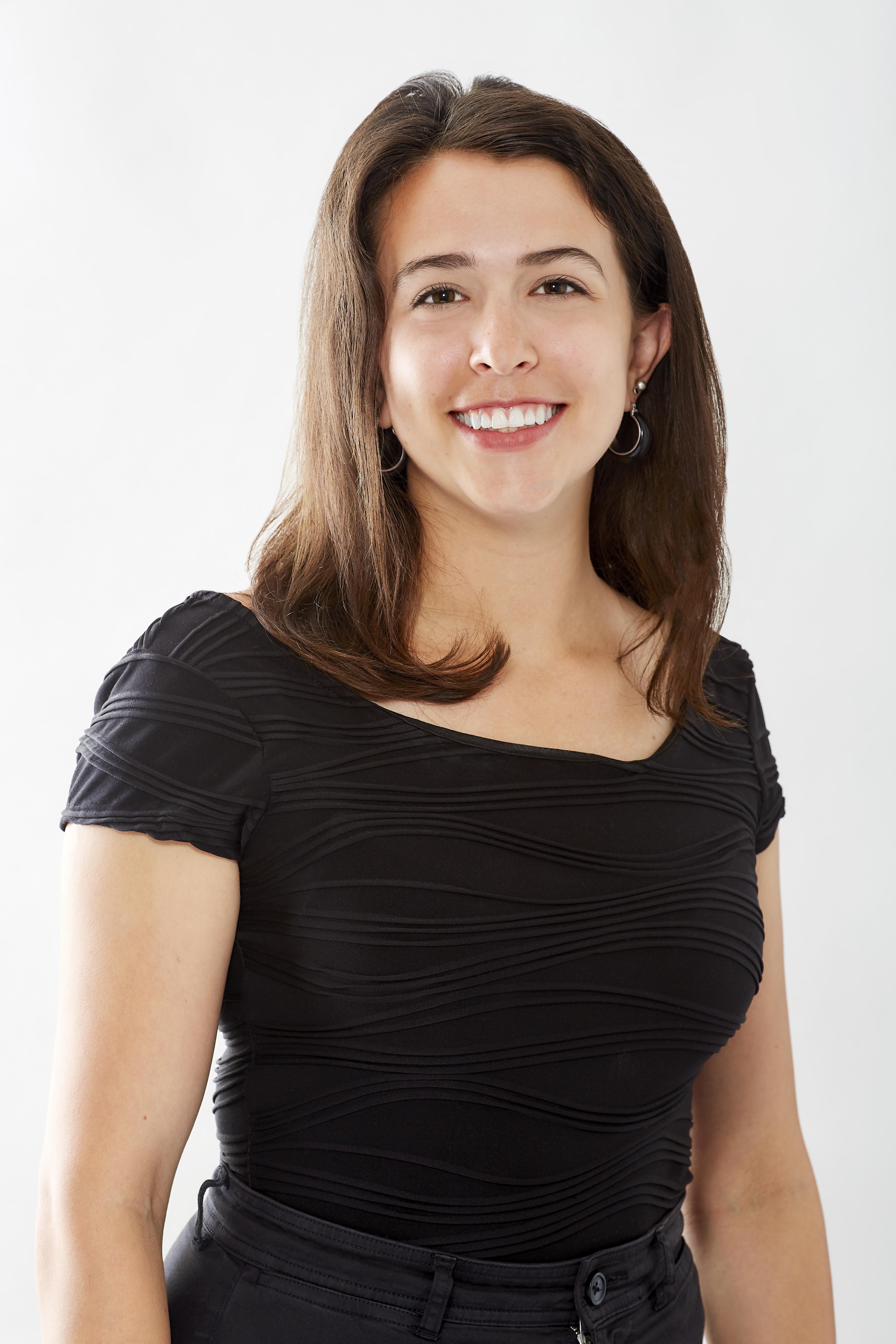
Bio
The Provider is in Your Pocket; Digital Access to Healthcare
1:45pm - 2:45pm PDT
Digital access to care has become more important than ever due to the COVID-19 pandemic. Whether it’s at-home medication abortion, telehealth interventions for HIV prevention, or youth-centered patient-facing digital health platforms, these panelists know the ins and outs of what it means to make sure young people have all the access they need nestled away in their pockets. Traditional in-clinic care is becoming a way of the past, and it’s up to us to keep up with the ever-changing landscape that young people are forced to navigate. Come learn from these panelists on how to do just that.
3 Subsessions
Description
Abortion pills are a safe, effective method of ending an early pregnancy at home -- yet in the US, people seeking an abortion continue to find themselves in situations that are expensive, complex and stigmatizing, jumping through hoops just to get the care they seek. For so many, the answer could be simple: five little pills, delivered discreetly to your door. An at-home abortion is now a reality, and it’s time to make sure this method is known and available. Join Plan C to learn how abortion pills work, where they can be found online no matter what state you’re in (thanks to Plan C’s Guide to Pills), the intersection of technologies that makes this modern method possible, and how you can get involved in making it a reality for anyone who chooses an early abortion. The #21stcenturyabortion has arrived.Speaker
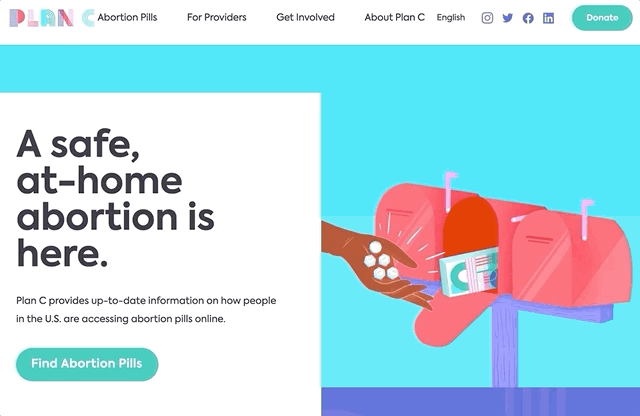
Bio
Plan C (plancpills.org) is an evidence-based advocacy campaign for abortion pill access in the US: providing research-driven information on abortion pills, educating the public on where they’re found and how they’re used for a safe home abortion, and incubating new initiatives that disrupt old barriers to access.Description
Far too few young folks have begun PrEP. It seems old models of providing PrEP (pre-exposure prophylaxis, an HIV prevention approach) aren’t working for many young people. To get needed PrEP services to youth, we should be striving to make care as quick, convenient, and private as ordering a gadget on Amazon Prime. PrEPTECH adopts a telehealth model to surmount some of the challenges of traditional clinic-based models, removing practical hurdles to accessing the health care system such as transportation and scheduling difficulties. PrEPTECH’s online platform features web-design informed by a community advisory board, home laboratory testing, online mail-order prescription services, text- and email-based reminders, and a platform for online medical consultation. In this session we’ll discuss how PrEPTECH might help youth get on and stay on PrEP and the randomized-controlled trial we are running to test that premise.Speaker
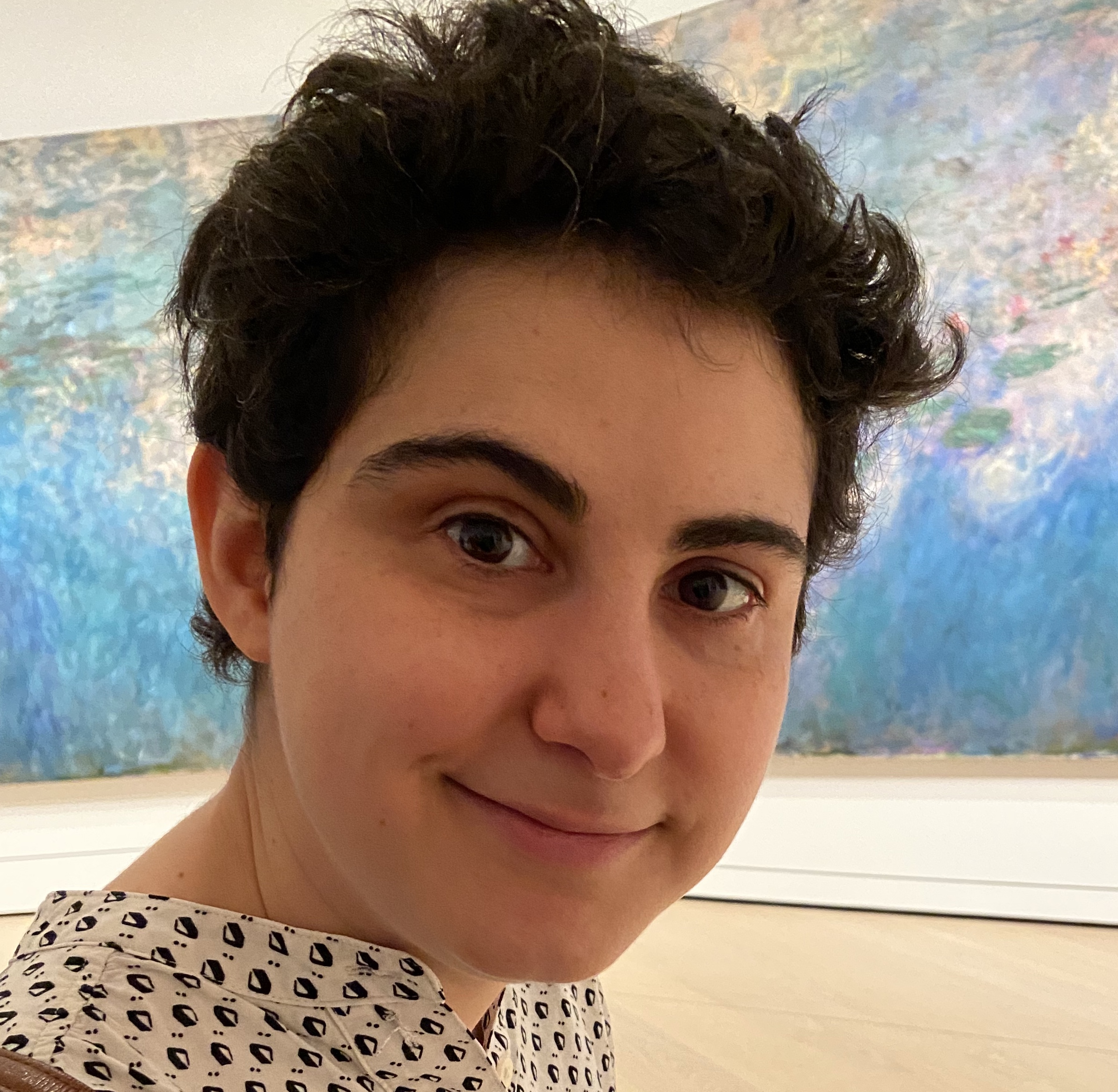
Bio
Rebecca Erenrich is an Evaluation Specialist/Research Associate III at ETR focused on the evaluation of health interventions related to HIV and sexual/reproductive health. Prior to coming to ETR, she conducted research and evaluations at Harlem Health Promotion Center, the Center on Addiction, the ACRIA Center on HIV and Aging at Gay Men’s Health Crisis, the San Francisco Campus for Jewish Living, and the University of California, San Francisco. Her research has encompassed quantitative, qualitative, and mixed-methods studies, survey-based observational research, and randomized-controlled trials. The topics of her investigations have included HIV risk factors, addiction, new health technologies, adolescent risky behavior, and social isolation/loneliness in older adults. Rebecca earned a master’s degree in public health from Yale School of Public Health and an undergraduate degree in Government from Wesleyan University.Description
Patients, especially younger ones, often report feeling disconnected from their healthcare providers and the health system. At the same time, as members of a generation who have grown up with technology, younger patients are fluent with digital platforms, meaning that online patient portals are an ideal medium to increase engagement with the health system and empower them to improve their health and well-being. Health systems also store vast amounts of information about each patient, but too frequently, that data doesn’t translate into meaningful, personalized insights that can promote health by facilitating both condition management and preventive care. Join us to hear more about personalized patient portals: from reducing bureaucratic obstacles around prescription refills for teens who have Type I diabetes to ensuring that college students who may be struggling with their mental health have easy access to the most relevant care and resources.Speakers
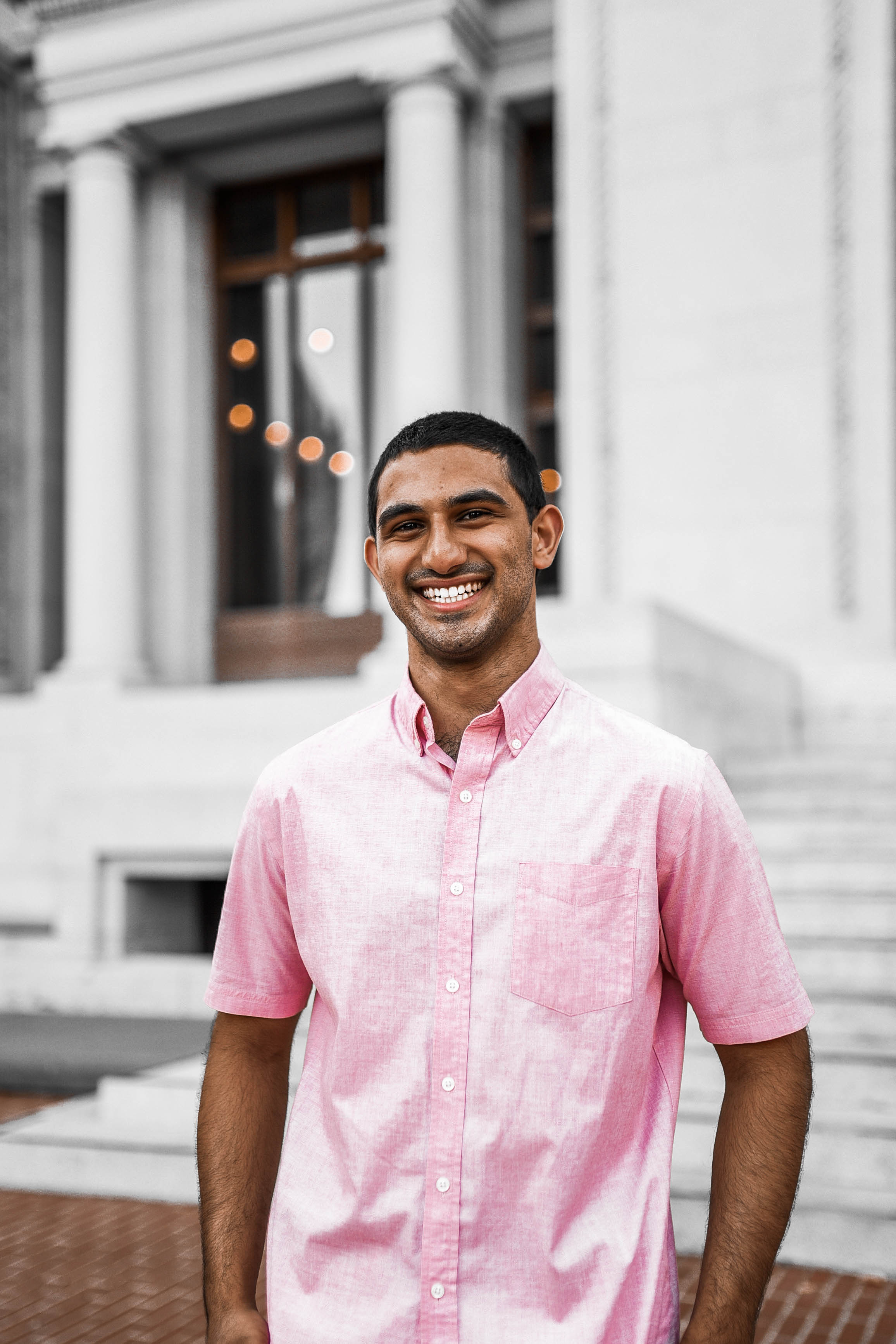
Bio
Madhav is a senior at UC Berkeley majoring in economics and eventually hoping to pursue a career in medicine. He is especially interested in exploring the intersection of health and society, including global health disparities, digital health, and healthcare systems reform.Bio
Fahad Paryani is a fourth-year student at UC Berkeley studying applied math with a concentration in mathematical biology. He is passionate about using technology in the healthcare space to provide equitable and high-quality healthcare.Bio
Nicole Anyanwu is a fourth-year pre-medical student at UC Berkeley pursuing Molecular Environmental Biology. She has worked at the intersection of health, advocacy, and policy, and is currently Academic Affairs Vice President of the Associated Students of the University of California (ASUC AAVP). She has extensive experience with operations, policy and lobbying, and wellness and academic based-initiatives.
“In these Unprecedented times:” Technology and COVID Response
1:45pm - 2:45pm PDT
COVID-19 disrupted daily life across the globe, but also disrupted systems of support on an individual level, as well as community access to care. In this panel, learn how digital interventions can be personalized serve local needs for mental health care and services. Panelists will also discuss the equity issues in the transition to the digital world – how can online interventions target those without smartphones? Learn how non-smartphones and landlines can be used for therapy interventions and vaccine registration.
3 Subsessions
Description
For over a year, Socios En Salud (SES), a non-profit organization in Perú, has served struggling youth by providing free, accessible mental health (MH) care during COVID-19. SES has developed a network of community health workers (CHWs) and organizations to search for high-risk zones and those significantly affected by COVID-19. Utilizing ChatBot technology, CHWs administered two evidence-based MH assessments. Then, the ChatBot scored and flagged those needing services. A MH support network was established to provide Psychological First Aid, Problem Management Plus, bereavement therapy, or referrals for specialized care, given the youth’s needs. Through this project, SES has reached over 2,000 youth, revealing that more than half suffered from mild depression and near 30% reported attempting suicide. These somber results underscore an urgent need for networks of professionals and technology that can effectively screen and connect youth to services, ultimately reducing the MH burden of COVID-19 in youth.Speaker
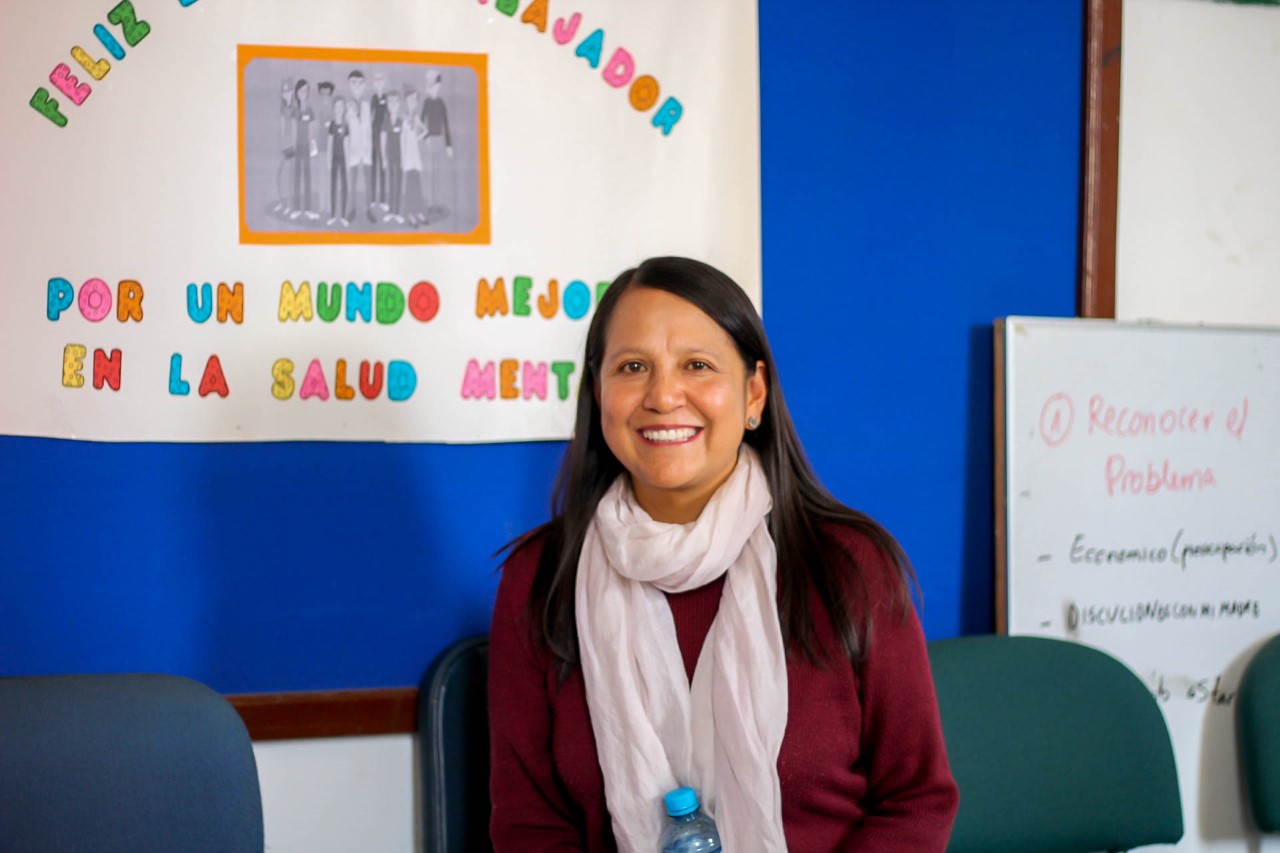
Bio
Carmen Contreras is the Director of the Mental Health Program for the non-profit organization Socios En Salud (SES) in Peru. She holds a bachelor’s degree in psychology and also studied public health. For over 17 years, Carmen has been dedicated to providing care for vulnerable populations by coordinating diverse research projects and serving on various advisory groups to improve community health and mental health, including the quality of care for tuberculosis (TB) patients. In 2013-2016, she served in the SES Community Advisory Board to develop community-based recommendations to improve TB care. From 2014-2017, Carmen served on the Community Research Advisors Group of the Tuberculosis Trials Consortium through the Centers for Disease Control and Prevention to increase the value and impact of TB research and interventions in affected communities worldwide. In 2020, she was awarded a LEAD Fellowship via Harvard’s Global Health Institute, recognizing women leaders in global health.Description
Can old, simple, non-smartphones be used in new ways to treat the symptoms of depression and anxiety during a global pandemic? How will adolescents respond to this new approach? Will it be effective? StrongMinds will answer these questions and describe how our tele-IPT-G innovation, created out of necessity when COVID-19 lockdowns began across Uganda and Zambia, will continue to be used for therapy interventions long into the future.Speaker
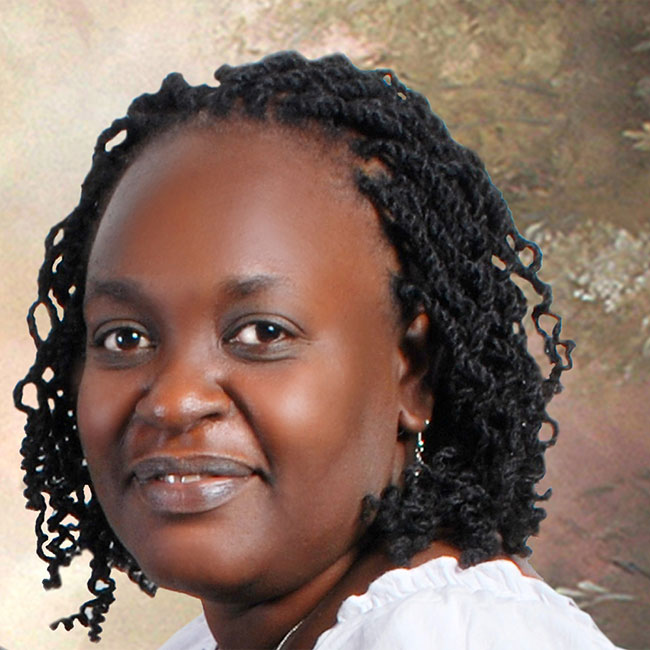
Bio
Christina (Tina) Ntulo serves as the technical lead for implementation, quality, and reach of our programs. Christina is a mental health and development worker with 23 years’ experience in mental health, human rights, gender, economic empowerment, management, and organizational development. Christine also possesses skills in strategic and program planning, implementation, monitoring, research, evaluation and analysis, evidence-based advocacy, and organizational and national level policy development and analysis. Christina also served BasicNeeds for 13 years as Director for Africa and Director of New Initiatives contributing to growing their programs in Africa and Asia. She has also worked as a Counseling Psychologist for the Federation of Women Lawyers in Nairobi Kenya setting up their counseling practice for women and children affected by sexual and gender-based violence.Description
Attending Zoom classes at UC Berkeley during a time of crisis and transformation, the Shotline co-founders realized an opportunity to leverage the tension of the digital divide: they blended 20th and 21st century technological inventions to create a successful volunteer staffed COVID-19 vaccine registration hotline. During this presentation, the co-founders will outline their journey launching the hotline, all the way from an interaction with a neighbor who inspired the idea for the service to receiving over 150 calls after a live ABC7 interview. They will teach attendees how to leverage their skills, human centered design, and community connections to create and scale digital technology solutions for public health challenges reaching populations that are often excluded from the digital economy.Speakers
Bio
I am an Honors Fung Fellow at UC Berkeley's Fung Fellowship who is passionate about innovation in the health and tech space. I constantly challenge myself to imagine a world where health and wellbeing are not distributed on a social gradient and to channel my unique skills to create this world through technological innovation. As a Fellow, I have learned how to reclaim technology to serve communities that have traditionally been vulnerable to its problems using human-centered design, an iterative and empathetic approach to problem solving that puts users at the heart of the design process. I am a co-founder of Shotline: a community powered organization bridging the digital divide in public health by leveraging the tech skills of a widespread, virtual volunteer network to make public health services more accessible to communities facing technological barriers.Bio
I am an Honors Fung Fellow at UC Berkeley's Fung Fellowship who is passionate about innovation in the health and tech space. I constantly challenge myself to imagine a world where health and wellbeing are not distributed on a social gradient and to channel my unique skills to create this world through technological innovation. As a Fellow, I have learned how to reclaim technology to serve communities that have traditionally been vulnerable to its problems using human-centered design, an iterative and empathetic approach to problem solving that puts users at the heart of the design process. I am a co-founder of Shotline: a community powered organization bridging the digital divide in public health by leveraging the tech skills of a widespread, virtual volunteer network to make public health services more accessible to communities facing technological barriers.
Strategies and Lessons Learned Recruiting and Engaging Indigenous Youth to co-Design mHealth Interventions
1:45pm - 2:45pm PDT
We R Native is a multimedia health resource for Native youth, by Native youth. The service includes an interactive website (weRnative.org), a text messaging service, and an “Ask Auntie” Q&A service. Native WYSE (Women, Young, Strong, Empowered) CHOICES is a program to help urban Native youth make choices that are right for them. It utilizes several facets of technology including social media to create an mHealth intervention. To meet youth where they are, both teams survey and interview users on technology use. Last year, 93% reported using their phone to get online at least once a day. Informed by this feedback, both teams are on the forefront designing AIAN technology-based interventions. This panel will share current trends in AIAN technology use, showcase best practices for recruiting/engaging youth via social media, and describe strategies to support the translation of an evidence-based curriculum into an mHealth app.
Speakers
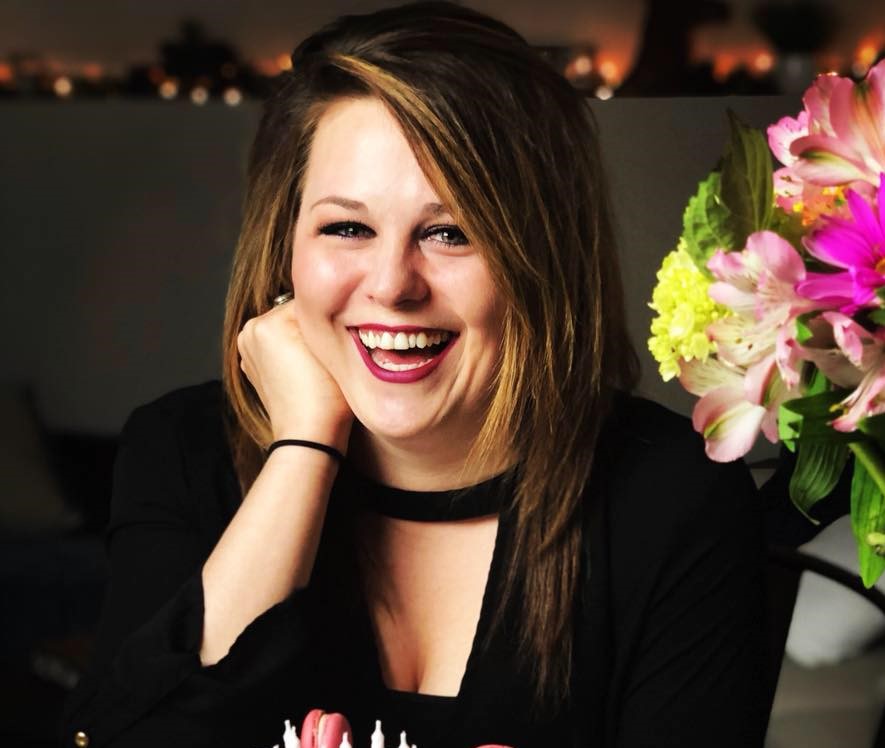
Bio
Bio
Bio
How to Teach Porn Literacy without the Porn: Using Media to Engage Young People
2:45pm - 3:45pm PDT
Pornography consumption has become a topic of conversation among parents and educators as porn has become more easily accessible to young people. For many young people who do not receive comprehensive sex education, porn acts as a form of sex education. Unfortunately, many of the messages young people receive about porn do not involve appropriate or accurate messages about real sex and relationships. When young people use porn as a form of sex education, they may potentially cause harm to romantic and/or sexual partners. Join this workshop to learn more about why porn literacy is a form of violence prevention education, how to engage in porn literacy using media (but without using actual porn) and technology, and how to teach porn literacy in a shame-free, trauma-informed, and anti-oppression way!
Speaker
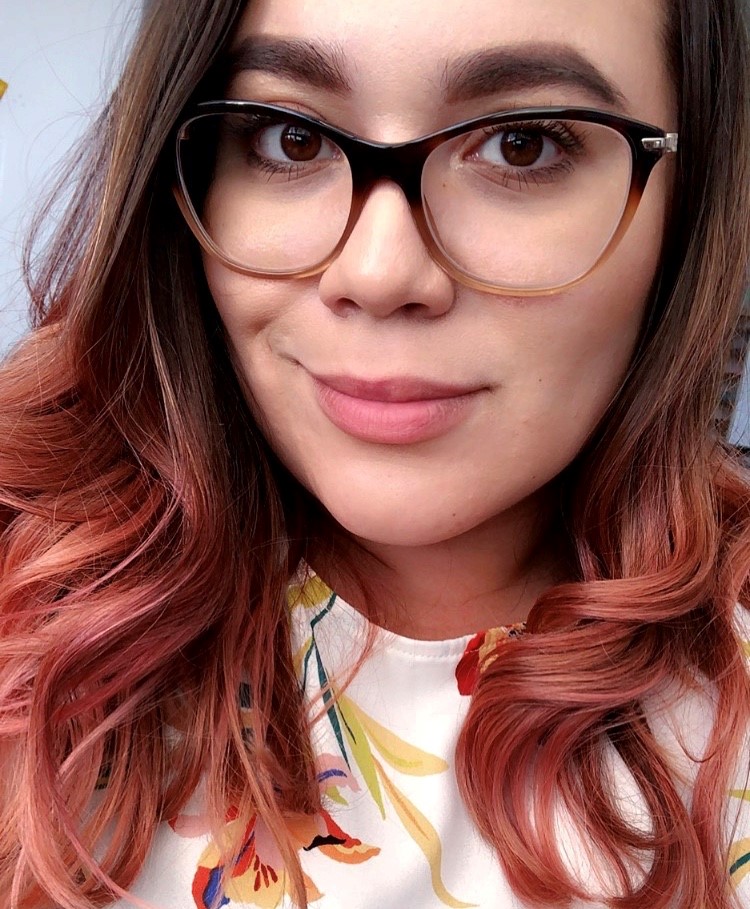
Bio
Digital Posters & Lightning Talks
2:45pm - 3:30pm PDT
The Birds, The Bees and the Bots: Curated Digital Comprehensive Sexuality Education, sponsored by UNESCO
8:00am - 9:15am PDT
3 Subsessions
Description
We're back for a third day and you don't want miss everything in store for you! Let our MC, Chris Walker, provide a warm welcome.Speaker

Bio
Chris Walker is a Project Coordinator at ETR with six years of experience working in HIV/ STI prevention. Currently, he coordinates and provides logistical support for several projects on the HIV, Sexual & Reproductive Health services team. His career began in college while attending the University of Memphis. During his time there, he worked with several campus organizations assisting them in creating on-campus HIV/STI testing events and educational forums on cultural inclusivity. Shortly after graduation, he moved to Dallas, Texas, and took his learned skills to the non-profit world. He was a field supervisor for the CDC-funded National HIV Behavioral Surveillance and has experience working directly with marginalized communities. He has a Master's in Public Health from the University of Texas School of Public Health. With a passion for advocacy, he aspires to fight disparities faced by individuals who lack access to equitable healthcare and education.Description
The days of relying on your high school gym teacher for sexual education are over. Social media content creators are using platforms like Instagram and TikTok to give young people "The Talk You Never Got" in creative and accessible ways. Hear from three young women from India, Canada, and Kenya who are using social media to provide youth friendly, culturally competent, and even funny comprehensive sexual education. Our panel of experts will discuss how they combat digital censorship, how they create unique content, and most importantly, how they support each other through it all.Speakers

Bio
Award winning musician and 2021 TED fellow Karen (Kaz) Lucas is an established leader in the Kenyan arts and culture ecosystem. Having begun her career in 1997 as a rapper/singer, she has gone on to run creative ventures and projects cutting across the performing arts, media production, digital marketing and innovative events that shape the industrial standard. Kaz has had a lifelong passion for changing the way sex education is taught to young people. Driven by this passion and enabled by her media experience, she started The Spread Podcast. The Spread is a sex positive podcast that only exists because there is no comprehensive sex education in Kenya. Information about sex is rooted in the negative consequences: HIV and AIDS and unwanted pregnancies.
Bio
Karishma Swarup is an internationally experienced sexuality educator and advocate, holds an undergraduate degree in Geology-Biology from Brown University and runs a sex ed Instagram page @talkyounevergot. While studying in the U.S., Karishma volunteered with Planned Parenthood to teach sex-Ed to high-schoolers for 3 years. After graduating, Karishma worked as a middle school science teacher in Brooklyn before she began her work in sex Ed. In India, she conducts workshops & online webinars with top educational institutions, student groups and young adults across India. She also volunteers for Scarleteen, USA, one of the oldest sexuality education websites for young people around the world. On a day-to-day basis, Karishma works at a global consulting firm as an analyst. In her free time, she enjoys acting for theatre, trying to train her dog and writing poetry.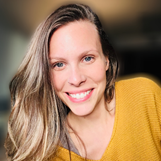
Bio
Tess Vanderhaegh is a sexual health educator who advocates for an enthusiastic and positive approach to education and conversations about sexuality. From workshops to social media, Tess offers inclusive, evidence-based, and sex-positive information about sexuality, menstruation, birth control, puberty, STIs, and more!
Bio
Caitlyn (Cece) Caruso has over 7 years of experience in the sexual health field, predominantly in community organizing, engagement, and communications. They approach all of their work from a reproductive justice framework and are humbled to have worked across the field in several capacities over the years. They attended University of Nevada Las Vegas, and received a Bachelors degree in Critical Race, Gender, & Ethnic Studies with a concentration in communications before moving across the country to Washington DC. It was there that they joined Advocates for Youth as their state and local campaigns manager, working specifically with young people back in their home state of Nevada. She now works both at ETR as a marketing assistant, and at Plan C Pills, serving as their digital organizer.Description
Join YTH for the unveiling of our finalists from our global challenge for youth ages 18 –29, meant to spark the next great digital innovation to increase access to comprehensive sexuality education (CSE). While many young people receive some form of sexuality education in school, evidence suggests that it is often lacking. This is where these young experts come in, creating innovations to revolutionize the world of digital CSE. Come watch video pitches from our top four finalists and vote to help us decide the winner. The winner receives $4,000 USD in seed funding to bring their idea into reality, plus support and mentorship from YTH.Speaker

Bio
Caitlyn (Cece) Caruso has over 7 years of experience in the sexual health field, predominantly in community organizing, engagement, and communications. They approach all of their work from a reproductive justice framework and are humbled to have worked across the field in several capacities over the years. They attended University of Nevada Las Vegas, and received a Bachelors degree in Critical Race, Gender, & Ethnic Studies with a concentration in communications before moving across the country to Washington DC. It was there that they joined Advocates for Youth as their state and local campaigns manager, working specifically with young people back in their home state of Nevada. She now works both at ETR as a marketing assistant, and at Plan C Pills, serving as their digital organizer.
Support When You Need It: Peer-to-Peer Interventions Around the World
9:30am - 10:30am PDT
The COVID-19 pandemic has left many young people across the globe struggling to feel connected. Learn how peer support has gone digital, from training peer counselors to creating a platform that builds community and communication around sexual and reproductive health. You’ll also hear how university students are partnering with staff to address the mental health needs of their peers.
3 Subsessions
Description
La RedJoven es una plataforma que convoca jóvenes de más de 29 municipios del país cuyo elemento común es promover la vivencia de la sexualidad desde el marco de los Derechos Humanos con enfoque de género, diferencial y de interseccionalidad. La RedJoven está conformada por adolescentes y jóvenes entre 11 y 28 años, y se configura como un escenario que fomenta la agencia y el empoderamiento como capacidades para la transformación de la realidad. Este camino ha incluido desarrollar estrategias por canales de contenido digital que proponen y desarrollan nuevas narrativas de comunicación para abordar temas relacionados con el conocimiento y libre ejercicio de los Derechos Sexuales y Reproductivos en audiencias nativo-digitales, consolidando una comunidad que facilite la conversación y educación entre pares: jóvenes que le hablan a otros jóvenes.Speaker
Bio
En Profamilia Colombia soy la coordinadora nacional del Programa de Jóvenes. He asumido este liderazgo durante uno año y nueve meses. Soy socióloga de la Universidad Nacional de Colombia y Master en Educación de la Universidad de los Andes. Mi desarrollo profesional ha estado enfocado en la educación, ejercicio y defensa de los Derechos Humanos, especialmente de los adolescentes y jóvenes en Colombia. Actualmente, trabajo por construir agencia y empoderamiento en adolescentes y jóvenes en la vivencia de una sexualidad plena, placentera, autónoma y responsable.Description
Imagine being a student in a newly established South Asian university and being exposed to academic stress, navigating social dynamics and interactions with a diverse cohort from around your country. Add in the additional factor of making your way through a life-altering pandemic and you have several factors capable of causing severe mental distress. Alleviating this stress is not as simple as immediately going to a professional as there are several socio-cultural barriers, stigma surrounding mental health and power imbalances that a student must face in the geographical setting we are based in. With the youth and university staff stepping in to lead a technologically powered mental wellness project, the Peer Support Program was born. Please attend our presentation to see us delve deeper into insights from developing this program.Speakers

Bio
Samuel serves in the Office of Student Life at Krea University. In addition to setting up the Peer Support Program in collaboration with SCARF, he works closely with the various stakeholders to develop the wellness infrastructure at Krea. He served as a fellow with Teach for India that works towards access to education in low income communities. During his undergraduate studies, he served as a Chaplain offering peer counseling through one-on-one and group sessions. He has completed a Bachelor of Arts (International Community Development) at Oral Roberts University in Tulsa, Oklahoma. He has also worked as a Local Community Development Coordinator in Tulsa, Oklahoma. In this role, he used the collective impact model as a focus in aligning the efforts of various Non Profits in low-income neighbourhoods. He is passionate about mental wellness as collective action and using a socio-culturally sensitive approach to building resilience.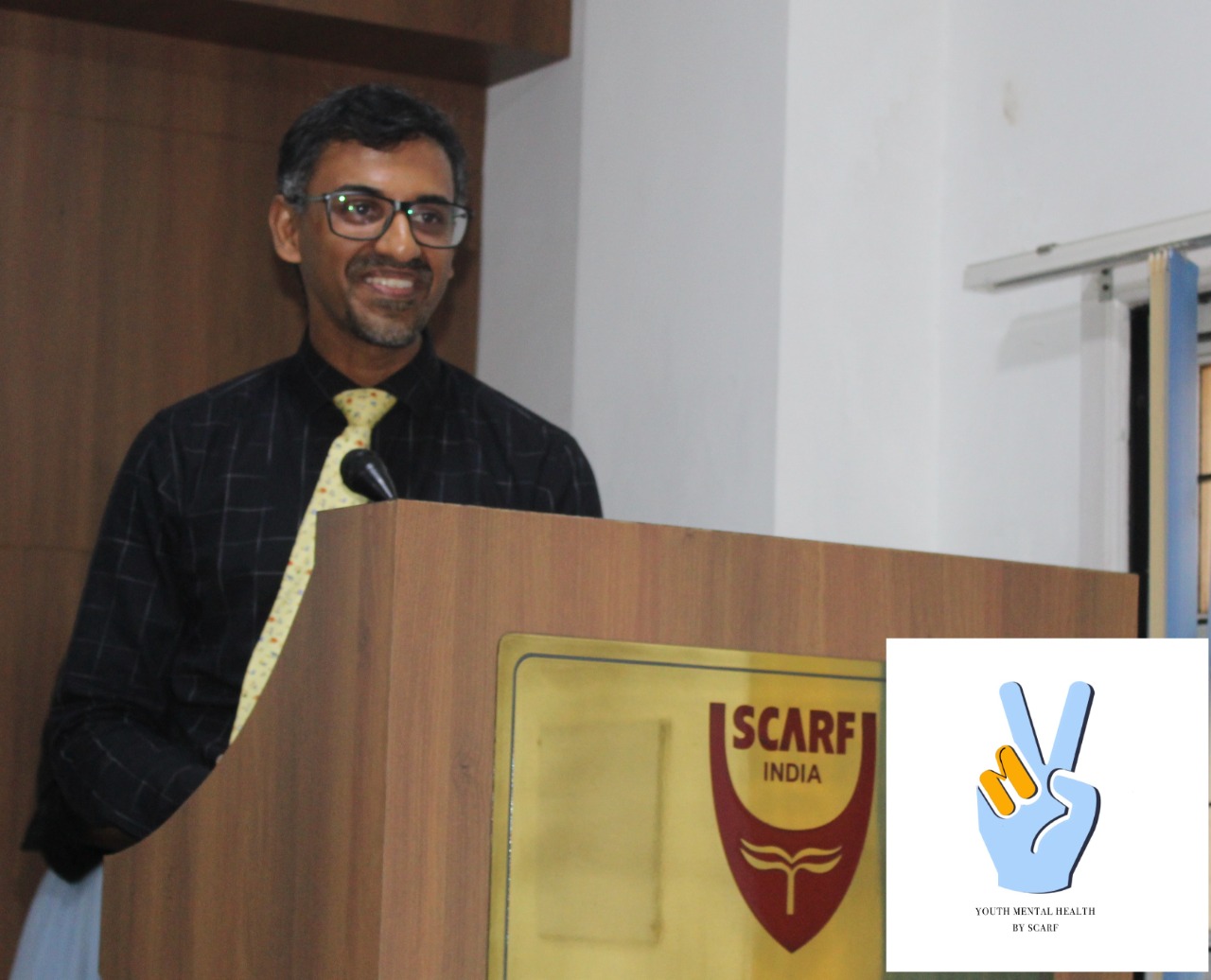
Bio
Dr. Shiva Prakash Srinivasan is a trained child and adolescent psychiatrist working with SCARF (I), a NGO working in the field of mental health, with interest in research and development of mental health services that are not only youth friendly but also youth participatory. He has an active interest in training youth and their caregivers to provide appropriate care for young people in distress. He has published many book chapters and research articles.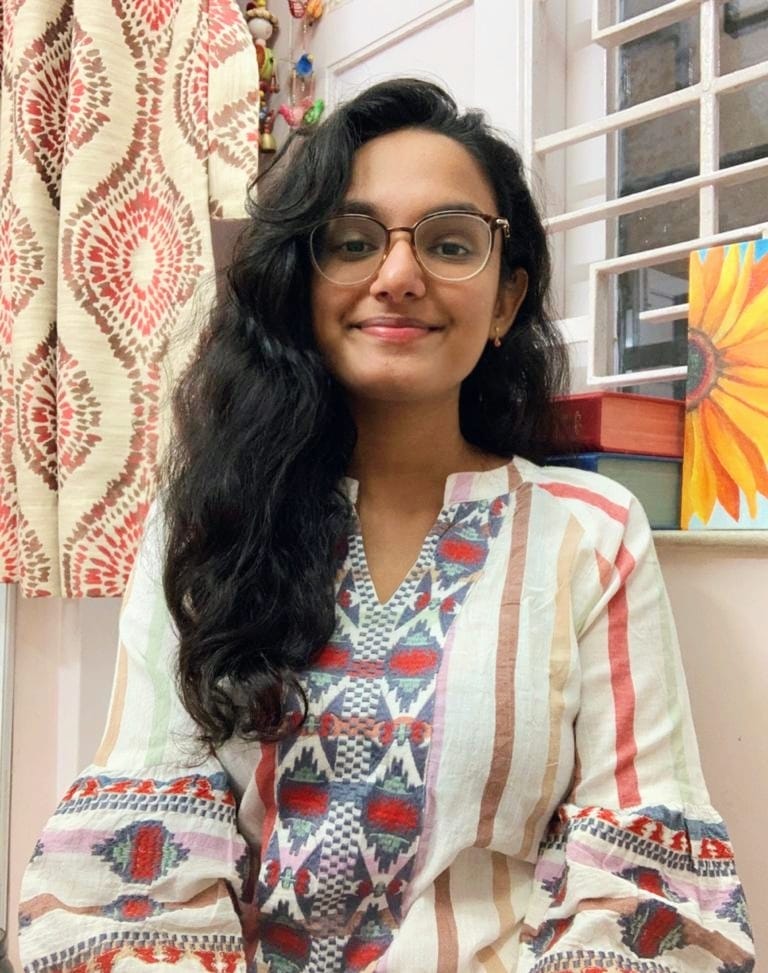
Bio
Satvika is a student majoring in Psychology at Krea University and is passionate about mental wellness and community development. She co-founded Aikyatha, the Social Outreach Club, Krea through which she led development initiatives for marginalized communities. She is an enthusiastic contributor to “Budding Psychologists'', a platform for promoting mental well-being. She is a field intern at Committed Communities Development Trust, Mumbai where she assists the resident counsellor at Ashray, a home for children who are HIV positive. At Krea, she has played an integral role in setting up the Peer Support Program. In addition to being a peer support volunteer, Satvika is part of focus groups that work towards iteratively improving the program. She wishes to continue working towards a world where access to mental health care is universally available by reducing the ‘treatment gap’ that exists between the need and availability of mental health care facilities.Description
I will be preparing the presentation which include the real story of our clients, then I would like to share how our system work, how many we are reched adolescnets via online campaine, last year we reached more than 8 million adolescents and young people. What is exacly we are include in our campaine.Speaker

Bio
Yana Panfilova — 22 years old, Kyiv, Ukraine, I have a bachlor’s degree in social work, Academy of Labour, Social Relations and Tourism. Head of Board Union of adolescents and youth «Teenergizer» since 2015. Works in the field of support and protection of the rights of vulnerable adolescents for 7 years in the EECA. I was born with HIV. When I was 10, I discovered my HIV status. At 13, I spoke openly at the international conference "Children and HIV" on behalf of adolescents living with HIV in EECA Item I spoke about HIV+ teenagers from EECA region at High-Level meeting on HIV/AIDS UN General Assembly in 2016 and 2018, also I was a panellist at 22 International AIDS Conference in Amsterdam in 2018 and was a speaker at the first panel at Global Primary Health Care Conference in Astana, Kazakhstan.
Community-Led and Culturally-Relevant Health Interventions
9:30am - 10:30am PDT
Culturally adapted materials and community-oriented interventions have been proven to increase engagement and efficacy in health education. In this panel, you’ll hear about an intervention developed through tribal-academic partnerships to advance health equity among Native American youth. You’ll also hear how a peer-to-peer digital health coaching cycle complimented digital media health coaching for young, Latinx people in the US.
3 Subsessions
Description
More than half of all Latinos born in the United States today will develop diabetes in adulthood. Although preventable, there are few programs that target prevention of chronic diseases among Latinx young people. This presentation will describe Examen Tu Salud / Examen Your Health, a theory-informed, co-designed peer-to-peer digital health coaching pilot study for 18-29 year old Latinas. The Examen program utilizes weekly peer health coaching (delivered via video-conferencing) to complement and amplify motivational and skills-based daily multimedia and text messages. In Spring 2021, 33 young women participated in the pilot study and completed pre- and post-tests and a follow-up in-depth interview. Results from analyses of these quantitative and qualitative data will be presented at YTH. Additionally, handouts will be provided to describe the process and products for program co-design with young people in unique situations and sociodemographic contexts.Speakers
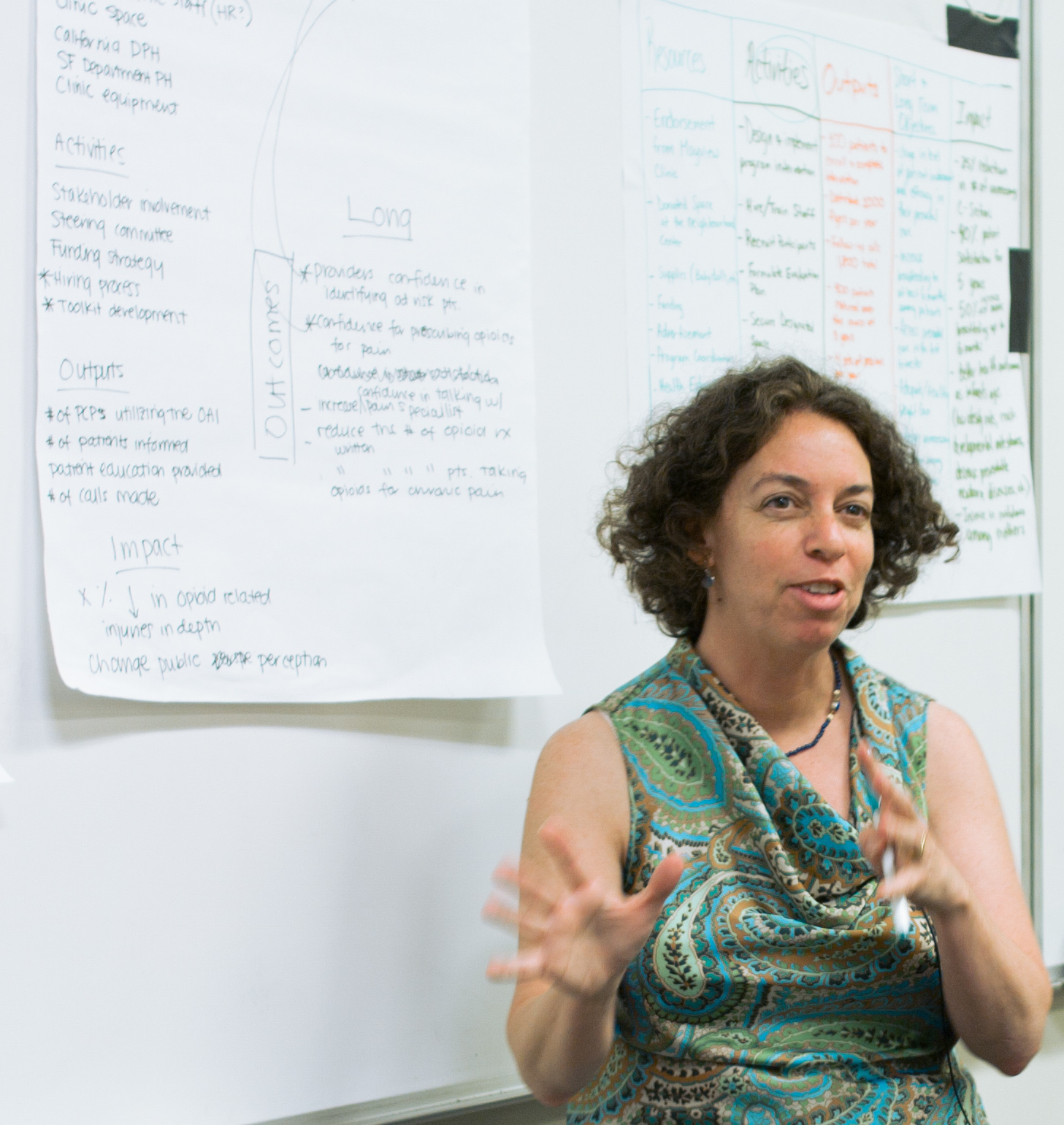
Bio
Kelly L’Engle, PhD, MPH, is a Social and Behavioral Health Scientist and Associate Professor and Director of the MPH Behavioral Health program at the University of San Francisco. She was an early adopter of using mobile phones to improve reproductive health in international settings, and she continues to embrace digital health promotion to meet young people where they are at and to provide support when they need it most. She has deep expertise in crafting and evaluating theory-informed, user-centered, and co-designed health communication programs and digital health interventions. Kelly previously worked with FHI 360, the University of North Carolina, and Porter Novelli, where she built a strong track record in innovative research and programming to promote health, particularly among young people and at-risk populations.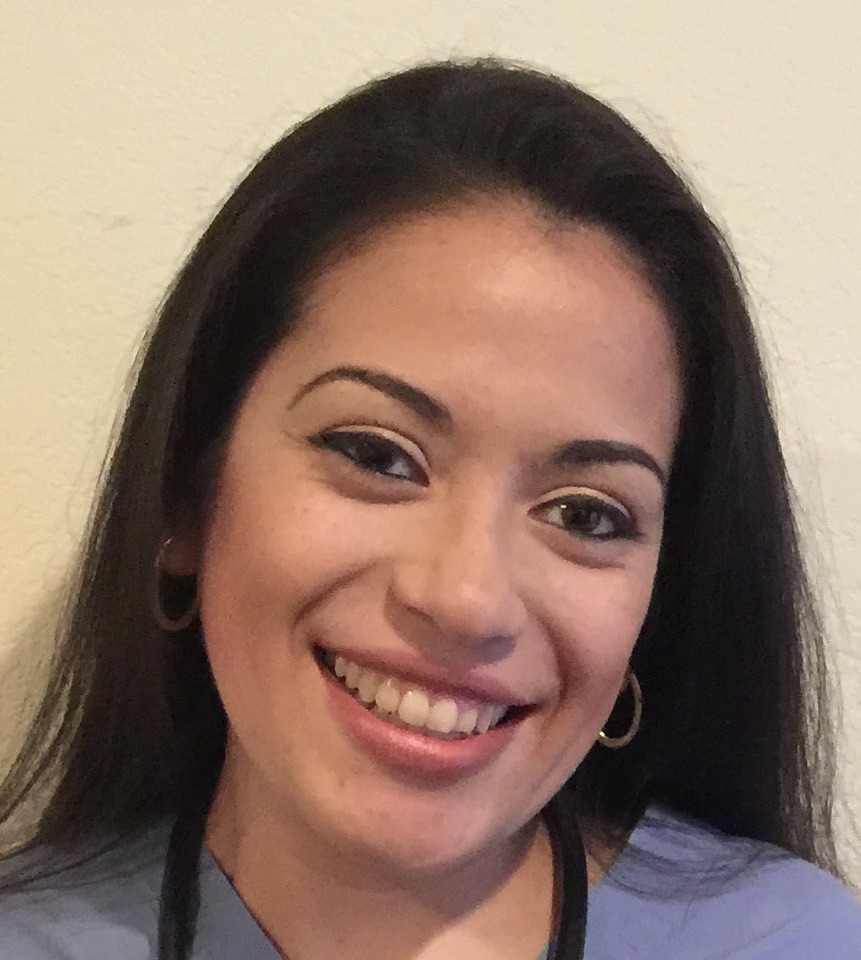
Bio
Evelin Trejo, MPH, MSBH, is a bicultural behavioral and clinical researcher with over six years of experience at the University of California San Francisco and Zuckerberg San Francisco General Hospital. She applies health communication principles in research to address health disparities among low-income and ethnically diverse populations. Her research focuses primarily on health disparities among ethnic minority groups in the United States with an emphasis in Latino health. Evelin’s expertise is in research design, planning, implementation, qualitative and quantitative data collection, data analysis, patient-centered communication, cancer control health disparities, grant writing, and community-based models of research. As a minority investigator, she strives to help meet the critical needs of an increasingly diverse population.Description
Johns Hopkins Center for American Indian Health’s (CAIH) Respecting the Circle of Life program (RCL) is a culturally adapted, evidence-based sexual/reproductive health intervention developed through tribal-academic partnerships to advance health equity among Native youth. A social impact innovation delivered through 8 peer-group sessions and 1 parent-youth session, RCL is proven, packaged and ready for dissemination across Native communities. A new self-paced virtual facilitator training, along with RCL implementation materials, are available through a partnership between CAIH and ETR & Associates, enabling interested individuals, organizations and tribal-serving agencies to become certified to teach RCL in their community. During a breakout session, participants will examine real-life activities from the RCL virtual training and program. With the ongoing uncertainties of COVID-19, the online, self-paced RCL facilitator training is a social impact innovation that ensures Native youth can access high quality, culturally relevant sexual/reproductive health education across the country.Speakers
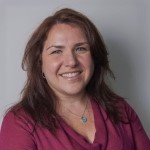
Bio
Kristin is the Curriculum Director at the Center for American Indian Health. She joined the Center in 2007 and works on the Behavioral Health team developing and adapting curricula and training health educators to deliver those programs. She adapted Respecting the Circle of Life to fit the needs of Native communities. Her interests include community-based participatory research, program development, implementation and evaluation, particularly as it relates to adolescent health, and she has worked on various issues including teen pregnancy prevention, HIV/STD prevention, substance abuse, diabetes prevention, nutrition, early childhood development, and youth suicide prevention. She received her MPH in Health Behavior and Health Education from the University of North Carolina at Chapel Hill.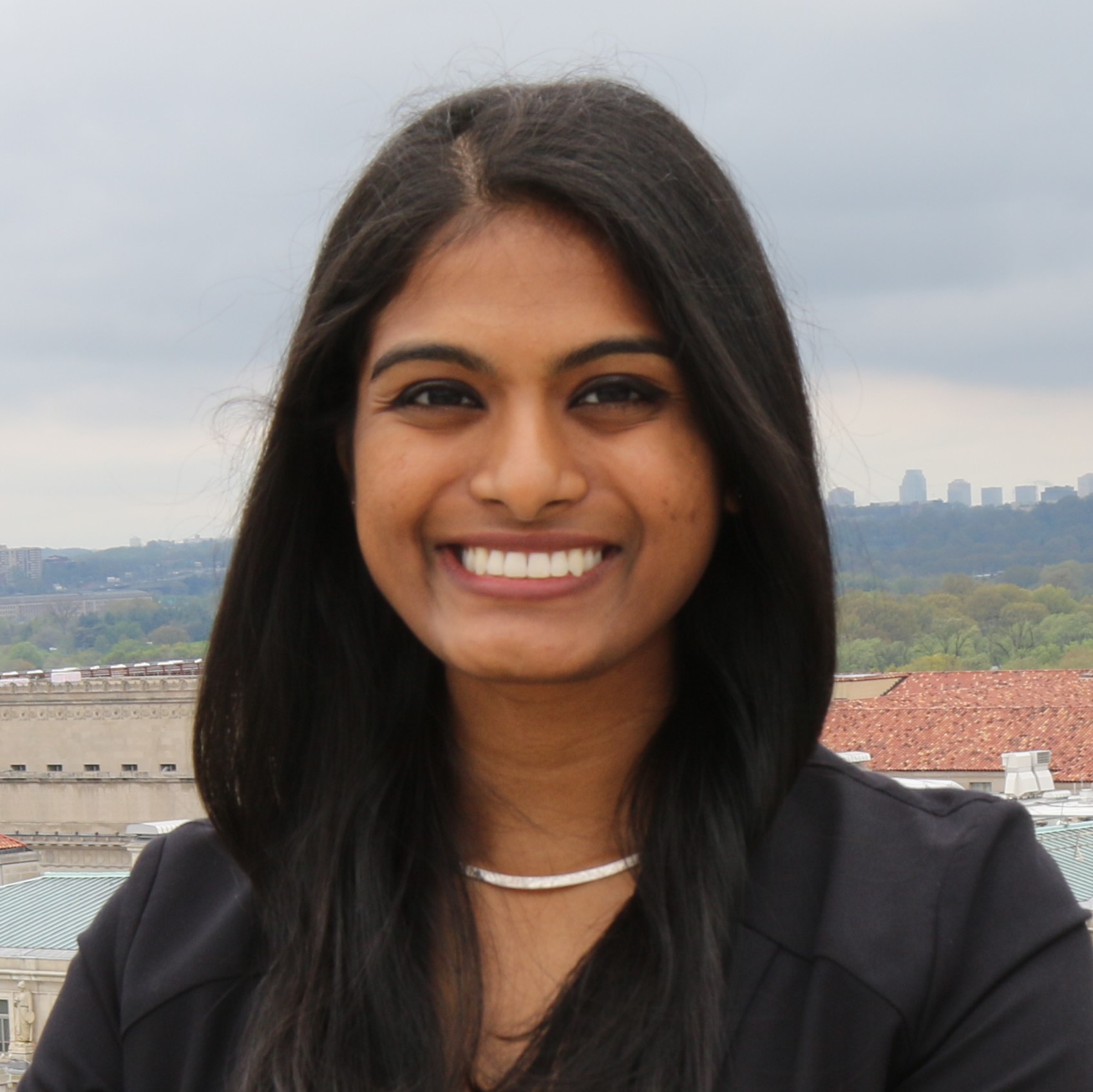
Bio
Hima is involved in the development and implementation of Behavioral Health Programs at the Center for American Indian Health since 2018. Hima is passionate about community based participatory research, adolescent health, and sexual and reproductive health. Hima coordinates and manages several reproductive health studies at the center, including Respecting the Circle of Life. Hima completed her BS in Behavioral and Community Health at the University of Maryland and her MSPH in International Health Social and Behavioral Interventions at Johns Hopkins Bloomberg School of Public Health.Description
Sahayogi is a technology-based program that offers adolescents an opportunity to learn about sexual and reproductive health in a fun, engaging, and age-appropriate way. The application designed for tablets and mobile phones and adapted to computer features games, stories, activities, and information in a colorful, interactive format. Paired with the program we used a peer educator approach to encourage the use of the technology in classrooms. This program was developed for rural Nepal and piloted in earthquake-affected areas where the public school system is under-resourced. The focus of the program was information designed to enable young people to challenge harmful social practices such as child marriage, unprotected sexual activity, gender-based violence, and gender discrimination. Using the Sahayogi program as a springboard, young people in rural Nepal developed educational initiatives for their own communities.Speaker

Bio
I am a public health professional currently working in the sexual and reproductive health right (SRHR) sector. My current work is related to women health rights and adolescent sexual and reproductive health rights. I aspire to become SRHR expert in Nepal. Since, Nepal being low and middle income country, there is huge scarcity of data and evidence. Thus, my interest is to do research and generate evidence in SRHR, so that I can advocate and design program based on evidence.
Closing the Gap: Gender Equity in the Global Majority
9:30am - 10:30am PDT
Striving for gender equity means approaching this complex issue of access from multiple angles. Whether it’s maternal mortality and negative pregnancy outcomes, the digital divide, or child marriage, gender equity is an issue worth fighting for. These panelists do just that, through multi-pronged approaches to close the digital divide, through behavioral-based digital solutions like apps to reach the patients they serve, or through social experiments that show us alternative realities where young girls are free to live the life they so choose. Come soak up all these panelists have to offer as we fight for a more equitable world!
3 Subsessions
Description
Early marriages are a stark reality for young women and men across India yet there is little talk about their impact on health, financial conditions, educational aspirations, and overall quality of life for young couples. Come explore how Love Matters India conducted a social experiment to provide awareness on the benefits of delaying marriage to a later age. We portrayed an alternate reality of how a healthy relationship looks like for couples in rural Bihar inspiring study participants to ponder on the positive consequences of making informed decisions regarding their marriage. Come around, see for yourself how Pooja and Gaurav’s world looks like when they are allowed to make their own decisions.Speakers

Bio
Jahnavi Sharma is a young and dynamic Sexual and Reproductive Health and Rights professional in India. Leading a project on Comprehensive Sexuality Education at Love Matters India/ Development Consortium and works as a Project Manager with the organization. Has seven years of experience in the development sector and development communication field. A recent Rise Up Youth Champions Initiative (YCI) fellow and one of the youngest leader selected for the Aritra Leadership Accelerator Programme by Indian Institute of Management Bangalore, Phicus Social Solutions and Dr. Reddy’s Foundation. She is working towards normalizing conversations regarding sex for adolescents and young people. She engages with young peer educators in building their capacities to help them grow as youth champions on-ground in Bihar, India. She is passionate about advancing reproductive justice discourse on gender and sexuality issues pertaining to young people, including the right of all people to have access to safe abortion.
Bio
Vithika Yadav is an anti-slavery, sexual rights, and gender rights activist; and a social entrepreneur with over 18 years of experience. In 2016 she received the honor of being one of the Top 120 under 40 New Generation of Family Planning leaders in the world, an initiative by Bill & Melinda Gates Institution for Population and Reproductive Health. She has also been featured in the award-winning documentary #FemalePleasure. She is also the Chair of 'The Global Advisory Board on Sexual Health and Well-being'. Vithika is the Co-founder of Love Matters India, which is the first-ever and most popular Digital initiative in India to give complete, honest, and non-judgmental information on Sexual and Reproductive Health and Rights to young people in India in both Hindi and English language. She is also the Founder of TeenBook - India's first comprehensive life skills resource hub for adolescents, teenagers, parents, and educators.Description
Everyday, 810 women die from preventable causes related to pregnancy and childbirth worldwide, 20% of which occur in Nigeria. Our application in development is a behavioral-based digital solution to improve maternal health, increase prenatal checkup adherence, and lower the future cost of patient healthcare with the pilot program focused on Nigeria. To accomplish this, our technology will empower women with the knowledge to monitor symptoms and their risk of treatable pregnancy-related health conditions and increase accessibility to healthcare insurance plans. Additionally, we will connect women to nearby stationary and mobile clinics with maternal services to circumvent distance-induced barriers to receiving healthcare. With this solution, we aim to reduce maternal and childhood mortality and improve the pregnancy experience of Nigerian women. The presentation will highlight the problem we aim to solve, our award winning digital health solution and the promising impacts as well as call for support, collaboration and funding.Speaker
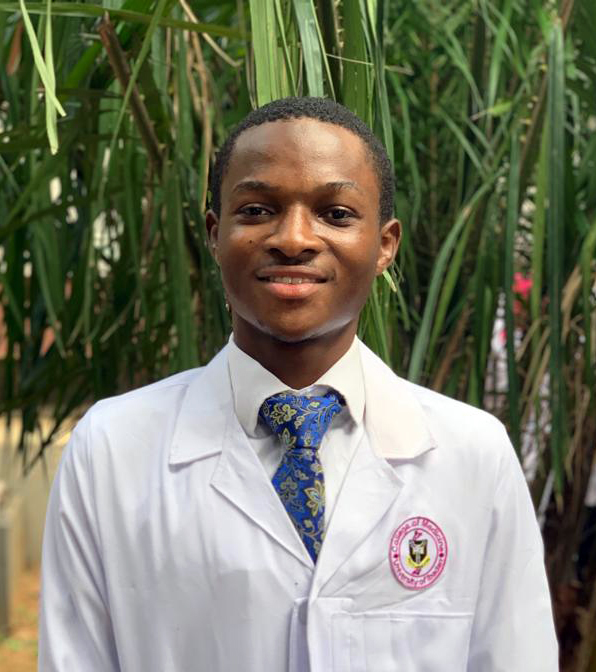
Bio
Abdulhammed Babatunde is studying medicine and surgery at the prestigious University of Ibadan, Nigeria. He is passionate about development of health and well being (SDG 03) of Africans through innovation, research and volunteerism. He led his team to win the ITEST Designathon 2020 where his team designed a solution to increase HIV Self testing and linkage to health facility among Nigerian youths. He co-founded an award winnning social enterprise with other students from Harvard and Stanford University to create a digital health to reduced maternal and childhood mortality in Nigeria. He is the founder and director of Healthy Africans Platform, a youth-led organization that seeks to educate Africans about healthy lifestyle and also an alumnus of Clinton Global Initiative University. He has co-authored about eight global health researches in international peer-reviewed journals. Abdulhammed hopes to improve healthcare in Africa through digital technology in a bid to achieve SDG03.Description
Since 2017, the Centre for Catalyzing Change (C3) with Oracle-CAF India implemented the 'Bridging the Digital Divide: Better Life Choices for Young Girls' program for 3 years in the Gumla district of Jharkhand. An interactive data-driven graphical presentation that depicts the journey of 15000 tribal girls to make better life choices through basic ICT literacy, life skills, and connecting to education, to reduce the gender gap. The presentation narrates how the quasi-experimental research design was implemented. The slide deck consists of a training process including hands-on experience related to hardware and software, knowledge of the internet, e-commerce, and social media, cyber safety and security; life skill linked improvement related to education, decision making, and mobility; and knowledge on COVID-19 prevention also continuing online classes during lock-down. A return-on-investment-driven scale-up plan of replicating the same model in other geographies and liaison with the government has been laid out in the presentation.Speaker
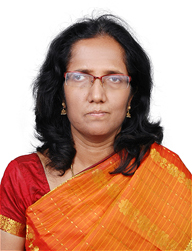
Bio
Mercy Manoranjini is Lead – Knowledge Management in Centre for Catalyzing Change. Graduated from Christian Medical College Vellore, with a Master's degree in Bio-Statistics. I have more than 20 years of experience working in the field of girls' and women's Health and Nutrition. Started my career as a Bio-statistician in Christian Medical College, Vellore. The presenter has 20 years of experience narrating data-driven stories in the field of Health and Nutrition for Women and Girls. Well-versed with research methodologies and worked for various projects funded by USAID, world bank, BMGF, and DFID. She has published peer-reviewed 15 papers and presented various national and global forums. She has experience developing large-scale interactive knowledge management dashboards. Some of the sample questions are What are the innovations in the project, how did you coordinate with Government and Funding agency, how are you planning to scale up and sustain the project.
So You Want to Work with Youth
9:30am - 10:30am PDT
ETR’s Youth Engagement Network (YEN) aims to strengthen youth engagement in sexual and reproductive health programs, services, and systems change efforts in order to promote optimal health, prevent teen pregnancy and reduce sexually transmitted infections (STI), particularly among young people who experience systematic marginalization or discrimination. In this interactive workshop, YEN staff will provide an overview of the YEN and its key accomplishments and initial lessons learned after the first year of implementation. Facilitators, including YEN youth core partners, will also moderate a discussion with conference participants on youth engagement practices and capacity building to help shape the YEN’s strategic learning agenda.
Speaker

Bio
Beyond Language: Connecting with Young Latinx Audiences
10:45am - 11:45am PDT
Latinxs are not a monolith! While Latinxs all over the country were making significantly different political choices leading up to the 2020 elections, the media was excited to report recently acquired knowledge: Latinos are not the same. No kidding. Meanwhile the Digital Products team at Planned Parenthood was conducting research with Latinx youth to find out how they prefer to interact with digital tools, what kind of sexual and reproductive health information they need and what their language preferences are. Beyond language the results reflected a diversity cultural, racial and diverse lived experiences. It also inspired: the launch of a Spanish language period and birth control tracking app, Spot On; a bilingual educator chat program, Chatea/ Textea; a new content strategy for PlannedParenthood.org in Spanish; as well as some very interesting findings for the younger (13-19) users of Roo, our AI-powered chatbot.
Speakers
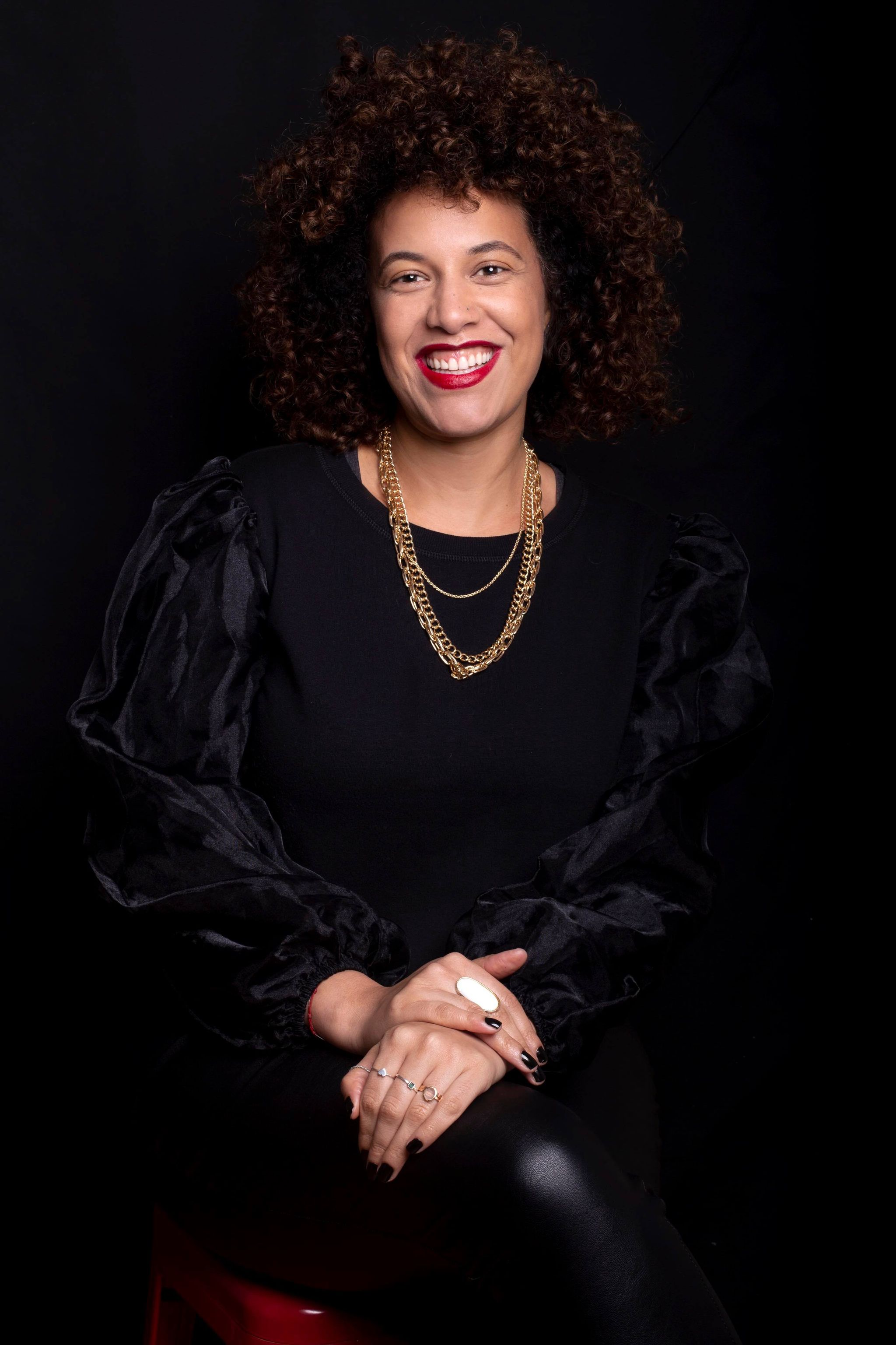
Bio
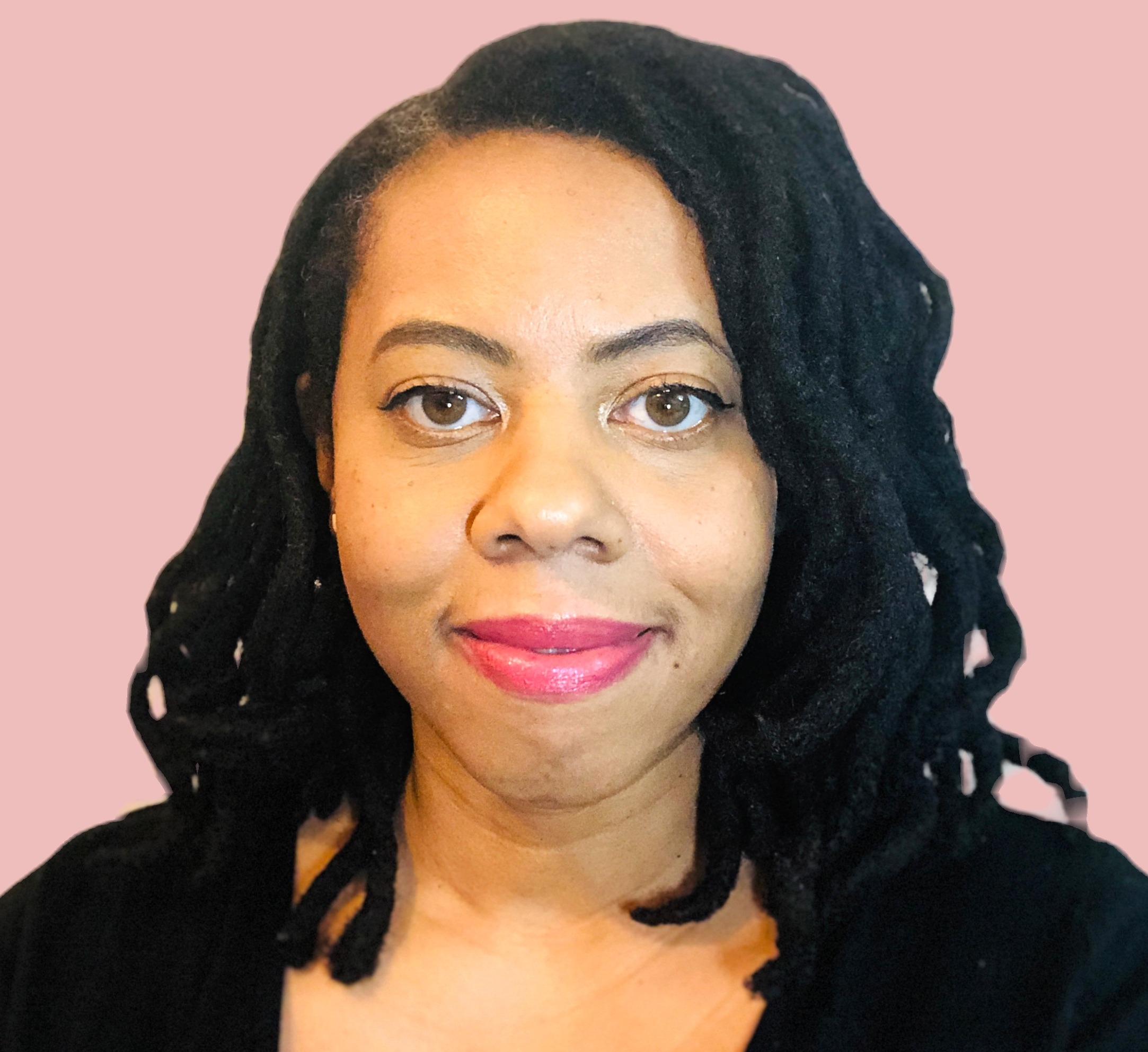
Bio
From A to Gen-Z: Innovations and Interventions to Reach Young People
10:45am - 11:45am PDT
The work we do means nothing if it doesn’t reach the people it’s meant to serve, and these panelists know that challenge intimately. Join them as they discuss the different strategies they’ve employed, from the use of indirect approaches like embedding sex ed content into entertainment and lifestyle apps, to utilizing youth peer promoters, and to social media influencer campaigns meant to bridge the gap between health programmes and the young people who are meant to access them. Reaching young people is all about meeting them where they are at – and the interventions proposed by these panelists do just that.
3 Subsessions
Description
The Imagine programme takes a deep dive into designing, implementing and evolving a social media influencer campaign created to bridge the gap between health programmes and the young women who access them. This interactive presentation will offer a glimpse into the programme that collaborated with youth and upskilled them with digital storytelling to address the intersections of health, social ills and building an online community. It will demonstrate how TikTok, podcasts, Facebook, Youtube, Whatsapp, and others social media tools has provided a space for the self-development of young individuals, for community building and support, and for better health outcomes. Girls in the programme have reached thousands of online users, sharing messaging around contraception, testing, socioeconomic hurdles, self-awareness and -development. This programme has the potential to turn into a movement of young people armed with accurate health messaging, shared in ways that speak to them directly as Gen Z.Speakers
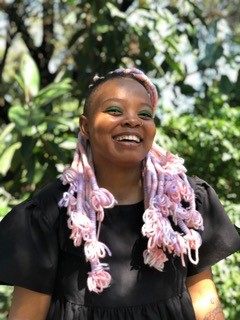
Bio
Tshegofatso Senne is a Black, queer feminist who does the most. Much of her work is rooted in pleasure, community, healing and dreaming. In consolidated form, she is a writer, facilitator, digital content creator and creative strategist. She writes and speaks on issues concerning feminism, sexual and reproductive health and pleasure, consent, rape culture, race, intersectional social justice and pop culture. She runs her own business, Thembekile Stationery, and her community platform, Hedone brings people together to explore and understand the power of pleasure in every part of our lives. She works with young people across the country, hosting workshops focusing on pleasure, consent and rape culture as well as kink and BDSM. Her TEDx talk ‘Reimagining BDSM’ takes a look at the tenderness and love that reveals itself in a lifestyle often only seen through an extreme lens..jpg)
Bio
Lieve Vanleeuw is a Senior Scientist at the South African Medical Research Council (SAMRC). Her background is in social science and she is currently pursuing a doctoral degree in Health Sciences. Her research at the SAMRC focuses on adolescent health, HIV, Tuberculosis and social protection in South Africa. As the Technical Lead for Monitoring, Evaluation and Research for the Imagine programme, she managed the research that informed the design of the programme, drafted the Theory of Change and intervention package, as well as developed the monitoring and evaluation framework. Her work on the Imagine evaluation, which will include data from the social media platform, led to a collaboration with Tshegofato Senne, Imagine's Digital Strategist, that will document the process and learnings of designing and implementing a digital health campaign for adolescents.Bio
With an honours degree in dramatic art from the University of the Witwatersrand in Johannesburg South Africa and a Diploma in Journalism, Sophie Hobbs lectured in design and media studies before heading to London where she found her niche working in policy, marketing and communications. Since returning to South Africa in 2005, she has worked as an online editor, writer, marketer and strategic communications consultant for a broad range of non profit and private organisations. As Head of Strategic Communications and Business Development at NACOSA she is responsible for raising awareness and resources to help turn the tide on HIV, AIDS and TB and strengthen systems on the ground.Description
The presentation proposes a successfully tested, innovative knowledge-sharing model that facilitates access to reliable, actionable information on sexual and reproductive health (SRH) to empower youth to make informed decisions about their own health. The presenter will, through real life examples, illustrate how apps like Hesperian’s SRH apps can help overcome barriers to access to SRH for youth by enhancing the work of youth peer promoters in many different contexts to counsel and support other youth around SRH questions and concerns.Speaker
Bio
Johanna Kougbeadjo holds a Masters degree in Political Theory and is passionate about social justice and feminism. Over a year ago, she joined Hesperian Health Guides where she, among other things, leads the outreach activities around the Family Planning and Safe Apportion apps in Francophone countries.Description
How to reach “apathetic” young audience with reliable information regarding reproductive health and healthy relationships? How to entice young people who find SexEd being didactic and boring or might not be interested in straightforward discussion? And how diary mobile apps might be useful for sexual education? The presentation discusses the need of and opportunities for “indirect” approaches towards sexual education. Building on the analysis of good practices related to native embedding of sexed content into entertainment and lifestyle applications and tools, it analyses how to balance between entertainment and education in apps’ development. Lessons learned from launching UNESCO-supported LoveLogs-Relationship Diary App, will illustrate some Do’s and Don’ts for developers of apps, willing to raise awareness of young people on reproductive health matters.Speaker
Bio
Yulia Plakhutina has joined UNESCO Regional Health Education Programme for Eastern Europe and Central Asia (EECA) in 2012 to support and develop health education projects aimed at raising awareness on sexual and reproductive health, HIV/AIDS prevention and gender issues among adolescents and youth in EECA region. Her particular professional interest lies in the area of ICT-based solutions and online media in health education. Currently Ms. Plakhutina is enrolled in Master’s Degree Program in Global Development Practice at Harvard University. Earlier, Ms. Plakhutina received a double Master’s degree in Sociology from St.Petersburg State University (Russia) and Bielefeld University (Germany).
Roo: Sex Ed in 280 Characters or Less
10:45am - 11:45am PDT
Learn from the folks behind Roo, Planned Parenthood’s sex ed chat bot, about how to adapt traditional sex ed to create new spaces that meet young people where they're at (...on their phones) and provide inclusive and accurate info. All in the length of a tweet. (272/280)
Speakers
.jpg)
Bio

Bio
Swipe Right on Healthy Relationships! Using Technology to Prevent Teen Dating Violence
10:45am - 11:45am PDT
Even before the COVID-19 pandemic, teens are increasingly dating and maintaining relationships online. In this session, you’ll learn how digital tools can help young people learn about healthy relationships, prevent teen dating violence, and support informed decision-making in their romantic lives. The projects in this panel use innovative approaches like games, social media, and AI.
3 Subsessions
Description
Learn how a preventionist in California uses Minecraft and Discord to engage teens in violence prevention and teach about healthy relationships. Attend this session to explore this new frontier of gamified education and how immersive curriculum built into Minecraft servers, high quality marketing, and scenario based activities keep youth coming back for more. In this presentation, you’ll learn what a session “looks” like on Minecraft, how to transform a PowerPoint into a pyramid, or a written scenario into a full walk-through building. You’ll see how Minecraft offers a blank slate to educators to create activities only limited by their creativity. Finally, by combining Minecraft and Discord, you see how a virtual community can flourish to promotes healthy relationship norms.Speaker
.png)
Bio
Armando Miguel Ruiz is a prevention program coordinator at Stand Strong in San Luis Obispo county. He specializes in engaging men and boys in conversations about healthy relationships and preventing violence. He is currently working with high schools and community organizations to implement Teen Minecraft Club (TMC). This program is designed to educate and empower young men to create a culture of respect and healthy masculinity in their peer groups. The program was successful in engaging youth in San Luis Obispo County during the pandemic and continues to grow today.Description
Meet Eli – the first and only chatbot co-designed by youth to help navigate and prevent teen dating violence in Honduras. Available in English and Spanish, Eli is friendly, conversational, and easy to use via WhatsApp or the ZonaSegura website. We built Eli to address a need for real-time, two-way support for violence prevention and crisis response, identified through an impact evaluation of the initial ZonaSegura intervention implemented in Tegucigalpa, Honduras. Offering users AI-powered rights-based and gender-sensitive violence prevention information, Eli’s content includes topics such as healthy and unhealthy relationships, abuse and violence, consent, intimacy, and safer sex. Eli also uses geo-location to provide the closest youth-friendly services for users seeking medical care, emotional support, legal advice, and shelter in Tegucigalpa. Additionally, for users who need immediate help, Eli provides a linkage to live crisis-response support.Speaker

Bio
Emma is a Program Coordinator and supports both YTH and new fund development. She contributes to a variety of YTH programs related to teen pregnancy prevention and substance abuse, such as Fresno-based In the Know, an app for trans-spectrum youth; they2ze, a mobile application for transgender-spectrum youth; and the Spanish-language site for educational sexual education material on Amaze.org. Emma is passionate about the intersection of mental health, sexual health, and substance abuse. She has studied in both Ireland and Argentina, two countries with very restrictive reproductive rights, inspiring her passion for reproductive justice. Prior to working at YTH, Emma held many direct service positions, including working with young people with autism, Latino men struggling with substance abuse, and Spanish-speaking preschoolers. Most recently, Emma worked at Exhale, the country’s first and only after-abortion talkline.Description
Love Matters Arabic, The digital platform, disseminates its content via the main website, as well as through its pages on social media such as Facebook, YouTube, Instagram, Twitter, SoundCloud and in planning to launch mobile app. In 2020, our website had around 12 Million users and our Discussion Board forum (DB) received around 3000 questions. Since its launch in 2014, Love Matters has tapped into the region’s internet-savvy 18- to 30-year-olds who flock to the website, discussion boards, YouTube self-help videos and social media platforms to find the reliable information and advice they need to make informed choices about their lives. We are interested to share our learning based on our experience, research and digital indicators for similar areas on how to reach/support young people in constrictive communities.Speakers
Bio
Norhan is a physician by training graduated from Cairo University with extensive experience in the field of Sexual and Reproductive Health and Rights (SRHR) for more than ten years. She is currently working as a Planning, Monitoring, Evaluation, and Learning (PMEL) Specialist at Love Matters Arabic. As a researcher, she is interested in studying such topics as Female Genital Cutting (FGC), Intimate Partner Violence (IPV), puberty and sexuality, and unmet need for family planning. Norhan has been selected as a Young Leader in Women Deliver Young Leaders program in 2015 and in 2017 as a winner of 120 under 40 organized by The Bill & Melinda Gates Institute for Population and Reproductive Health at Johns Hopkins Bloomberg School of Public Health for her efforts in the reproductive health field.Bio
Ramy is the project coordinator for Love Matters Arabic. Ramy enjoys more than 10 years of professional experience in the field of sexual and reproductive health and rights (SRHR) awareness, including gender issues. He worked on many SRHR projects with the Egyptian family health society and Ma3looma webiste. He is fellow of European committee in sexual medicine and certified sexual medicine expert from European multidisciplinary joint committee of sexual medicine.
Live Exhibit Hall
11:45am - 12:30pm PDT
Join us for a live exhibit hall and get to know our fabulous YTH Live Global sponsors in real time!
Beyond Sexmojis: Values-Based Communications and Storytelling for Youth Leadership in Sexual Health Design
12:30pm - 1:30pm PDT
Values-Based Communications (VBC) and Public Narrative are proven tools for building common ground and equitably engaging communities around complex, sensitive and stigmatized topics. These methods invite participants to reflect on their deeply-held values, consider how those values generate common ground with others, and effectively communicate and pursue shared goals. Storytelling fosters communication, develops leadership, reveals complexity and builds trust—which are essential to meaningfully engaging youth in the health design process. In this interactive session, participants will get hands-on training in public narrative storytelling and collectively brainstorm when and how to deploy public narrative in a trauma-informed youth-centered health design process. Come prepared to listen and share as you are led by facilitators and alumni of TCC Group and YTH’s Project L.I.Y.T. Public Narrative Training.
Speakers
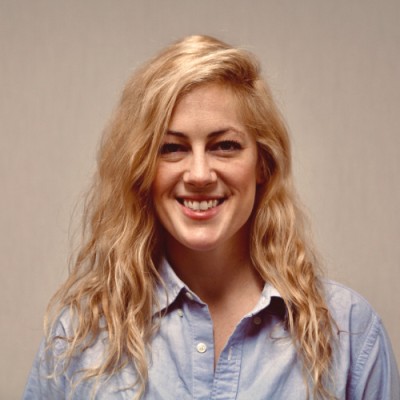
Bio
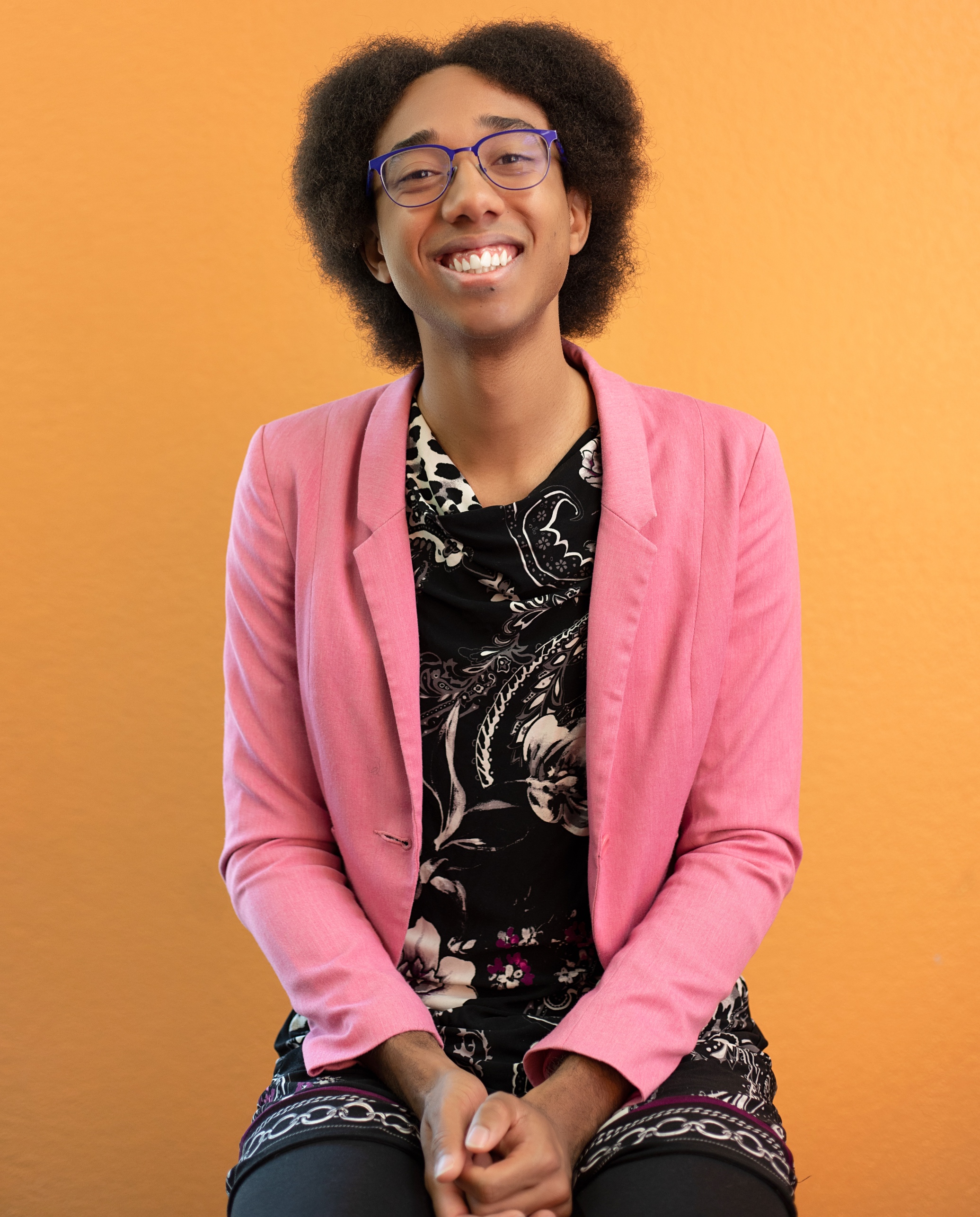
Bio
Bio
Shut Down But Not Shut Out: Improving remote connection with youth
12:30pm - 1:30pm PDT
In order for programs serving young people to be effective, they must be able to build relationships with those young people. In the rapid shift to remote support, just how to do this has been a huge challenge. Drawing from three years of providing remote support to young people through OkaySo, this workshop will cover four strategies OkaySo's volunteers use to create warm and supportive spaces for young people to engage and receive support remotely. Participants will get a chance to practice these strategies and walk away with concrete skills to enhance their ability to build remote relationships with young people.
Speaker
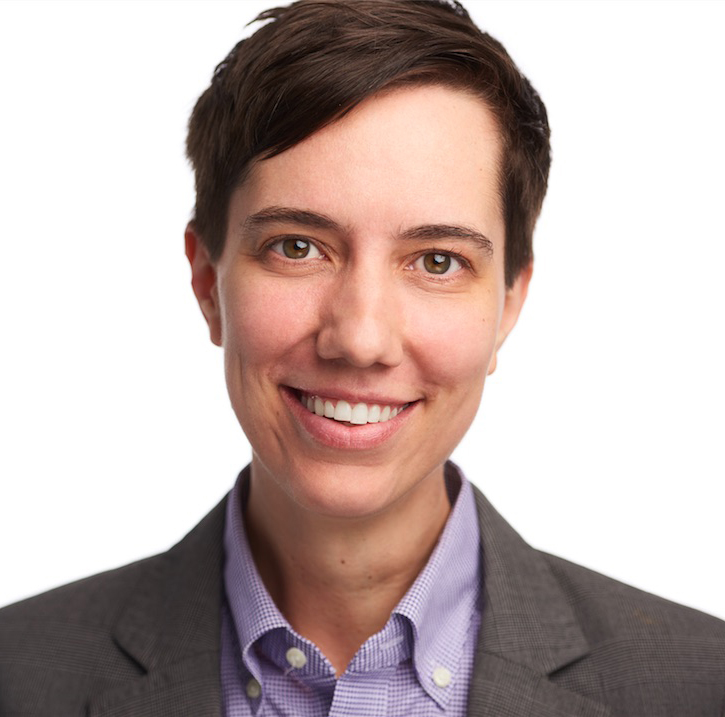
Bio
Scoring Outside the Bedroom: Gamification in Sexual and Reproductive Health Education
12:30pm - 1:30pm PDT
With so many apps competing for our attention, it’s hard to design educational material that keeps youth engaged. In this session, learn how youth-developed, culturally-responsive mobile games can empower and educate young people about sexual health and relationships. You’ll also hear from a youth-led organization on how to take advantage of different digital media platforms to bring sex education to young people.
3 Subsessions
Description
¡Con Confianza! meaning, “With Trust and Confidence,” is the first-ever gamified mobile sex ed platform developed with and for Spanish-speaking students in 6th-12th grades. Designed by students whose first language was Spanish, Confianza will ensure that middle and high school English Language Acquisition (ELA) students no longer face a language barrier when it comes to accessing engaging, evidence-informed, comprehensive sex education. ¡Con Confianza!, has10 levels, each exploring through culturally relevant stories and challenges, sex ed topics such as healthy relationships, how to access sexual health services, consent, and birth control. The game is aligned with California and national standards for sex ed. To support the learner’s journey, supplemental content for parents and caregivers are included. Workshop attendees will learn about our community-centered and youth-led design process, strategies on how we effectively engage youth in the game design process and hear feedback from pilot users.Speakers
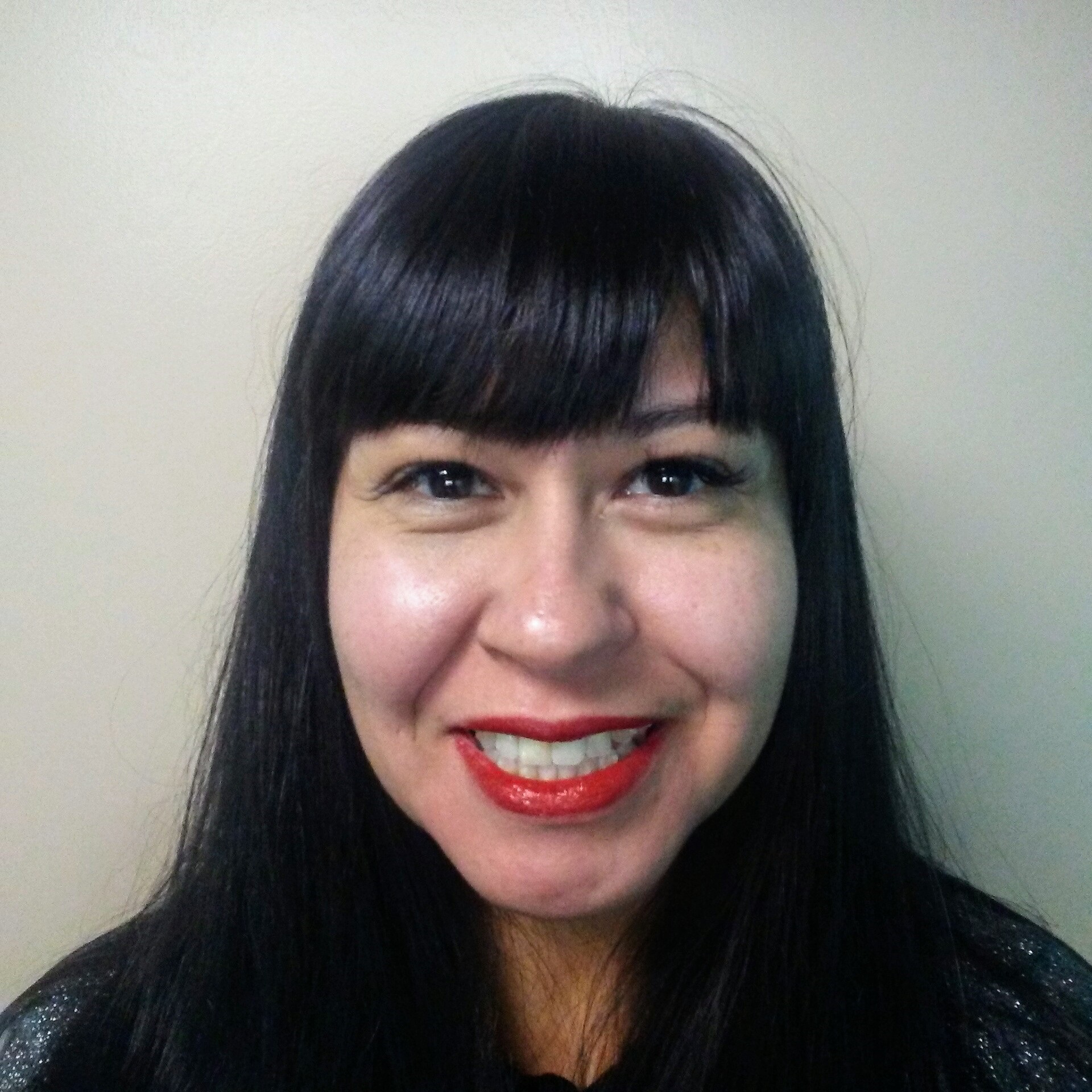
Bio
Violeta is a game designer, researcher, community organizer and Sexuality Educator. Violeta has a passion for working with underserved populations including foster youth, incarcerated populations, adolescent parents and Latinx communities. She is excited to share her expertise to teach the next generation through the Peer Health Education Program, where she began her work with Planned Parenthood. Violeta is a board member of the Northern California Association for Take Back the Night, an organization whose mission is to resist and end sexual, gender-based, and all forms of violence through community-led action. She holds a Master’s in Sexuality Studies and her MA thesis centered youth voices to create a porn literacy curriculum which aims to help youth critically analyze the messages in sexually explicit internet material. Violeta is leading the design of ¡Con Confianza! (With Trust and Confidence) the first-ever gamified mobile sex ed platform developed with and for Spanish-speaking students.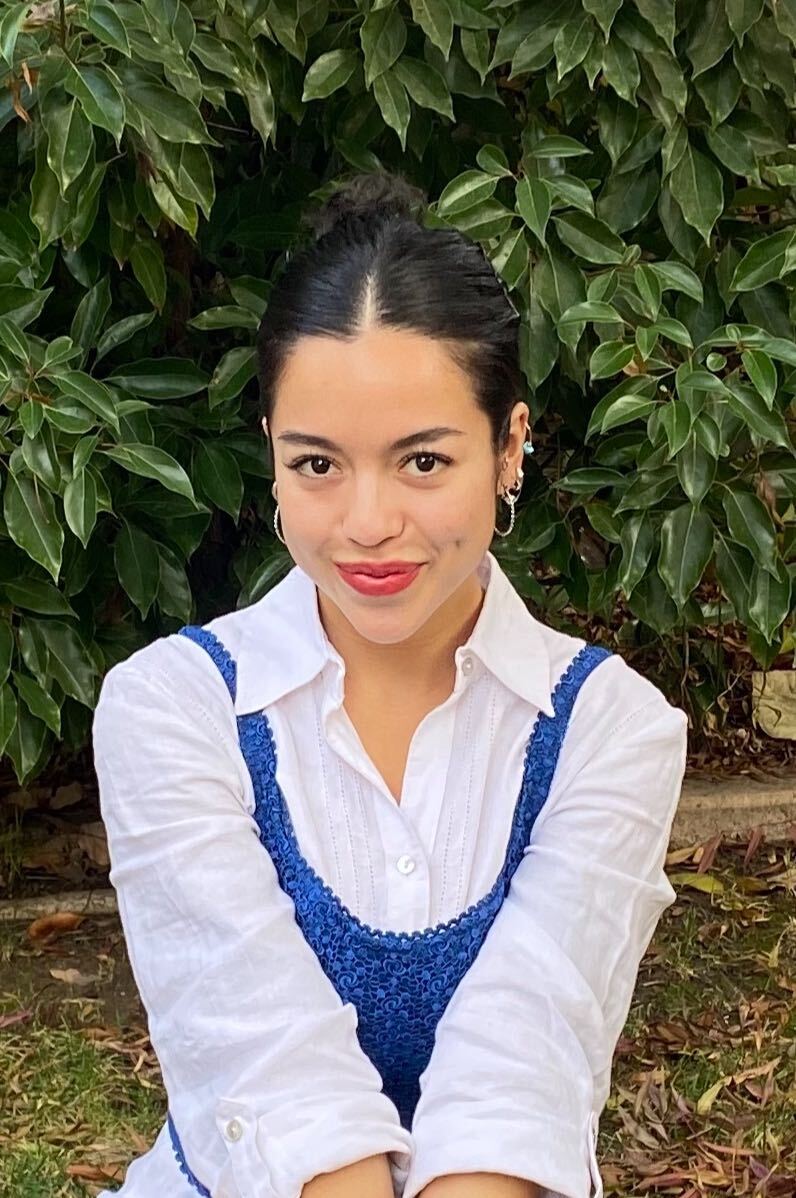
Bio
Mariah is a Health Educator and Digital Learning Creator with PPMM. She values creating safe and engaging learning environments for all folks to thrive, contribute and feel empowered. She accomplishes this by teaching through a trauma-informed lens and being intentional about the content she creates and shares with others. Mariah is joined by her colleagues on the Digital Learning team to center community and youth needs, invest in accessible design and inclusivity. Outside of work she shares sexual health info with young adults on her sex ed Instagram account, takes long walks and cares for her many house plants.Description
Mi Bodi Nar Mi Raty (my body, my right) is a mobile based dilemma game targeting approximately 4000 adolescents and youth aged 13-24 years in Freetown, Sierra Leone. The game uses educational quizzes, storytelling, interactive videos and mini-games to empower, educate and engage users in learning about puberty, teenage pregnancy, menstrual hygiene, sexually transmitted infections, sexual health and rights and COVID-19. During this session, participants will hear from Salma Davis, a 19 year old champion and ASRH who was involved in the design and deployment of the game and in mentoring other champions. Participants will understand the value of a game-based approach in making complex, taboo topics accessible and fun for adolescents and youth, the challenges and opportunities of using a game-based approach in a low-resource urban, informal setting and how to meaningfully engage adolescents in the design and delivery of a tech approach.Speakers
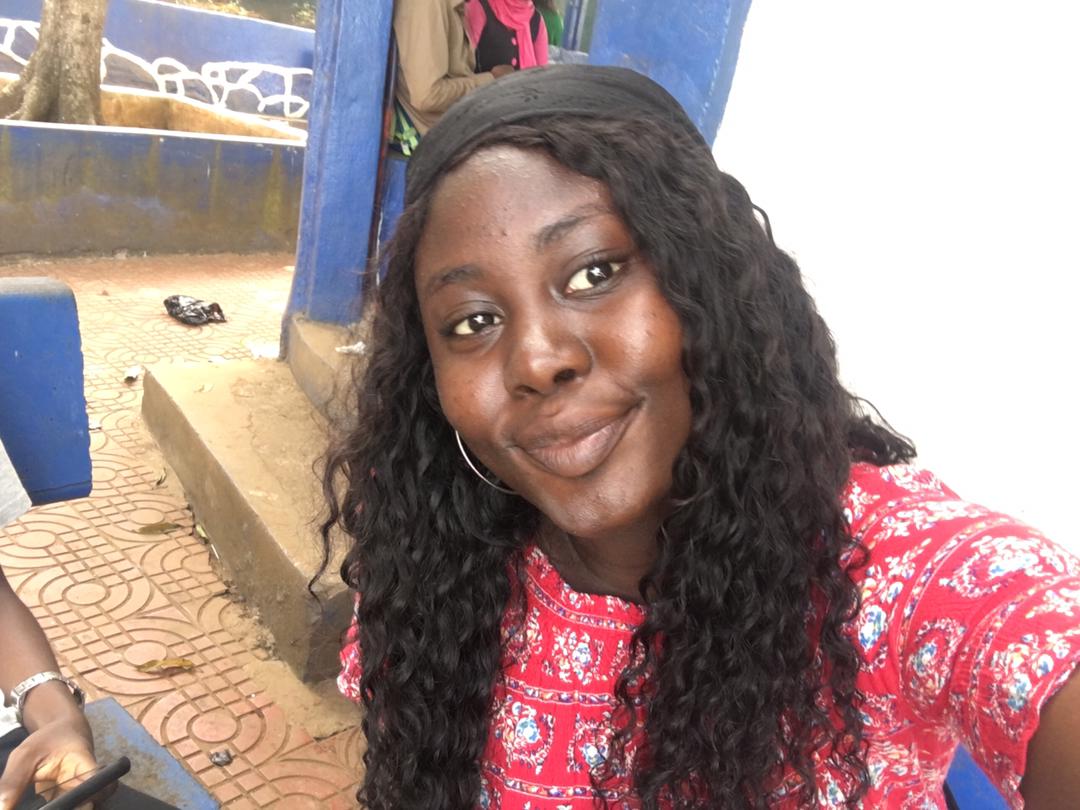
Bio
Salmata Davies is an adolescent champion and advocate for adolescent sexual and reproductive health issues living in Aberdeen Community, one of the urban informal settlement in Freetown. Salmata has been working closely with Save the Children to support the development and roll out of the ASRH App. She led the establishment of the Aberdeen Youth Club that brings together adolescent and youth to discuss issues affecting them and jointly find solutions. Since it establishment, the club has reached over 300 young girls with information on contraception to address the high rates of teenage pregnancy in Aberdeen. She is the focal lead for all the champions who have been part of the development and roll out process of the ASRH Game App. Her vision is to see girls reach their full potential and become leaders in society for a better Sierra Leone.Bio
Bridget is a community development worker and media practitioner. Over the years she have developed a thorough knowledge of generally accepted media and developing knowledge in community development practices, good facilitation skills and problem solving. She is currently the Communications Manager for Save the Children's Sierra Leone Country Office and the Project Lead for Mek wi tok bot Mammy en Daddy Bizness, the project within which the ASRHR game app is being implementedDescription
Did you know that you can use TikTok to find answers to your healthcare needs? Or that a radio program can teach sex education? In this breakout session, you will learn how to leverage technology from a dynamic youth-led organization that embodies the values of youth empowerment. They are Tan Ux’il -- a community based organization that uses edu-tainment, radio, community outreach, and social media to bring sex education to teens and young people living in a hostile environment, and who need it most. Using parody videos of popular songs, online counseling and classic peer education, Tan Ux’il breaks down barriers to ensure access to needed sex education for young people.Speakers
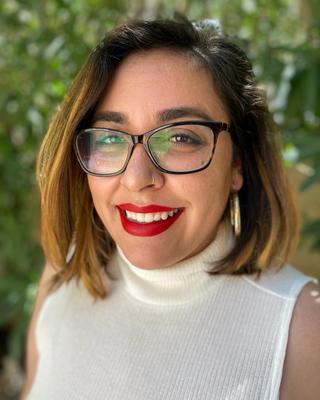
Bio
Planned Parenthood Global in 2015 after participating in PPFA’s Global Youth Ambassador program in the summer of 2015. Blanca joins us from Planned Parenthood of Metropolitan Washington where she was the Manager of Education and Outreach. Starting as a volunteer at her local affiliate, Blanca has held various positions within Planned Parenthood, including time as a call center representative and community educator. She has been involved in sexual and reproductive health for ten years, starting as a research assistant in the Human Sexuality Lab at the University of Nevada Las Vegas. Blanca has a BA in Psychology from the University of Nevada Las Vegas and a Master’s in Human Sexuality Education from Widener University.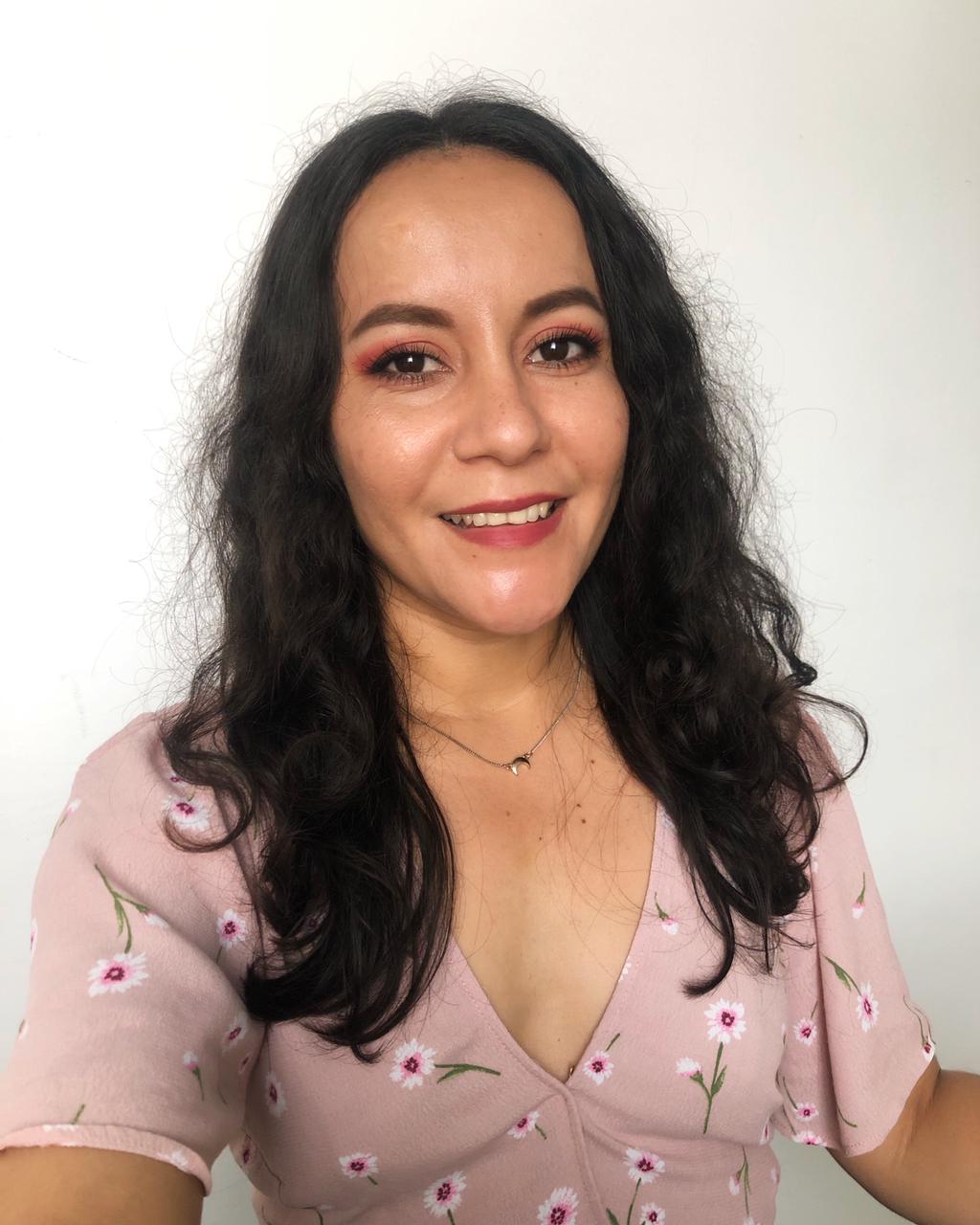
Bio
Hescarleth Membreño, dirige proyectos de acceso a la salud sexual y productiva adolescente en Guatemala, es trabajadora social y educadora. Lleva 15 años participando activamente en la defensa de los Derechos Sexuales y Reproductivos. Ahora crea contenido en redes sociales, en TikTok cuenta con más 1 millón de seguidores a quienes ayuda a resolver dudas sobre sexualidad. Vive en un pueblo del área rural y le encanta ir a la playa
Using Social Media to Encourage COVID-19 Vaccination
12:30pm - 1:30pm PDT
Mike will share creative and media planning recommendations to help organizations improve the effectiveness of their COVID-19 vaccine media. These recommendations are rooted in a statistical and creative analysis of over 140 ad campaigns run by governments and nonprofits globally in 2021.
Speaker
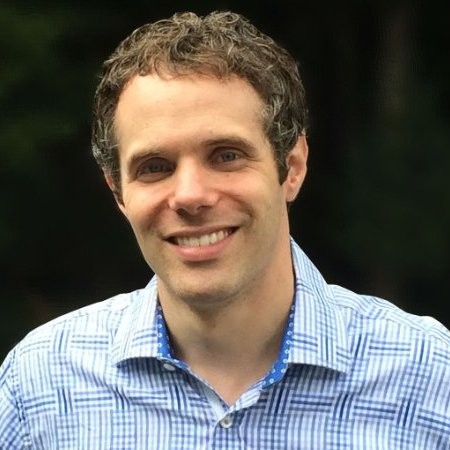
Bio
Lessons From Adapting an in-Person Sexual and Reproductive Health Curriculum for Distance Learning
1:45pm - 2:45pm PDT
In The Know (ITK) is an innovative, 5-year randomized-control trial in the county of Fresno, California, that combines existing, in-person, comprehensive sexual health education with digital technologies. In this workshop, we will share lessons learned from adapting this in-person blended curriculum to an all-virtual format. Fresno Economic Opportunities Commission, who recruits and implements the ITK curriculum, will discuss how to engage youth and how to handle challenging situations in this new format. University of California, San Francisco, who evaluates the study, share the process of developing adaptations for distance learning and data collection such as attendance and participant surveys. You will be able to take lessons learned and strategies and incorporate them into your virtual implementation and distance learning plans. This will allow you to deliver more effective programing and better serve their communities.
Speakers
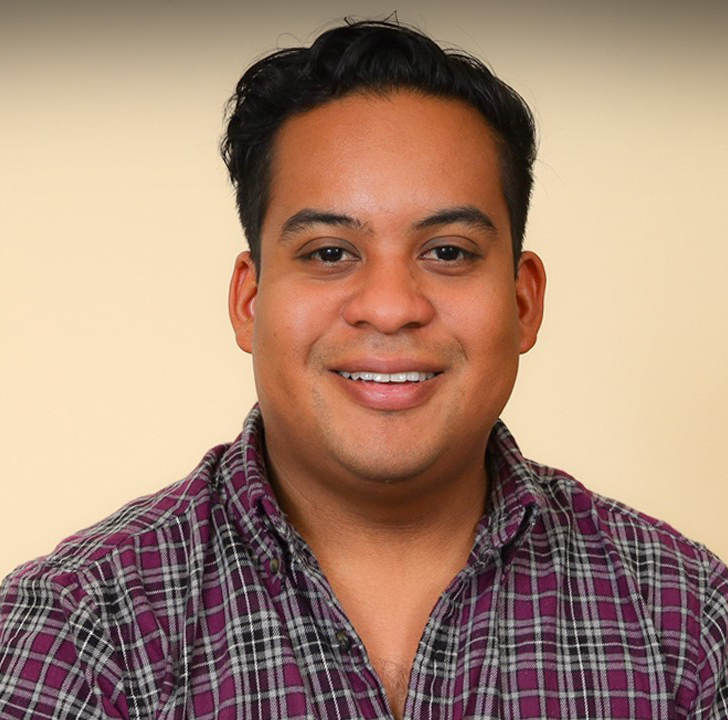
Bio
Bio
Male Contraception is possible: here's how we're making it happen, sponsored by MCI
1:45pm - 2:45pm PDT
Male Contraceptive Initiative is a small nonprofit based in Durham, North Carolina, in the US. We raise funds to support the research community in their efforts to develop the next generation of male contraception, and we provide advocacy and outreach support to help ensure people are thinking and talking about male birth control methods. Come to this session to learn how we are working with scientists, advocates, and young people, to make male birth control a reality and to achieve reproductive autonomy for all.
Speakers
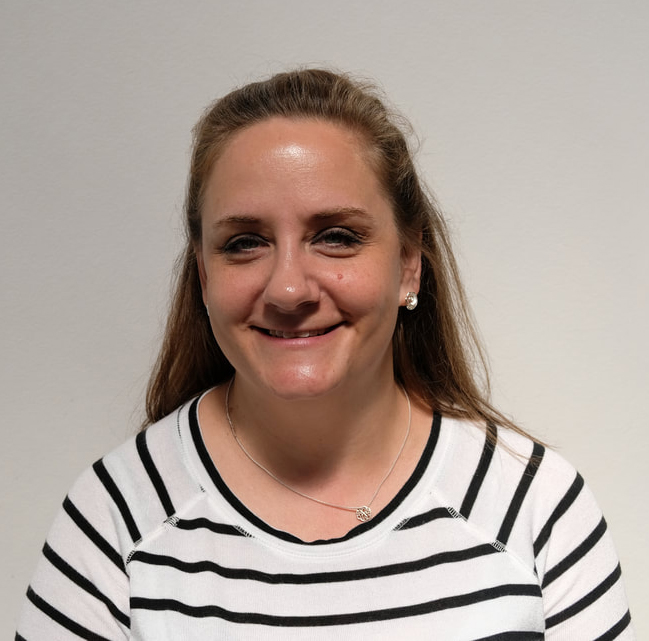
Bio
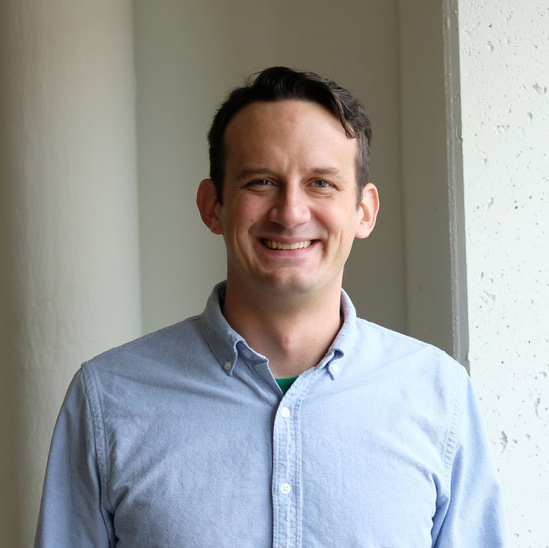
Bio
Fireside Chat with Nisha Deolikar at Facebook and Jonathan McKay at Girl Effect, sponsored by the Bay Area Global Health Alliance (BAGHA)
1:45pm - 2:45pm PDT
Join the Bay Area Global Health Alliance, Girl Effect and Facebook for a fireside chat exploring the power of social media to strengthen vaccine confidence and shape health behaviors. We’ll view the premiere of the new Vax Up podcast featuring Girl Effect India and their work to educate young women and girls about their health. Then, Ben Plumley, host of the Vax Up and A Shot in the Arm podcasts, will moderate a discussion with Jonathan McKay, Girl Effect’s Chief Creative and Programmes Officer, and Nisha Deolalikar, Health Partnerships, Facebook -- with a robust Q&A session with the audience. The Vax Up podcast series is a new project of the Alliance for Advancing Health Online. Join us!
Speakers
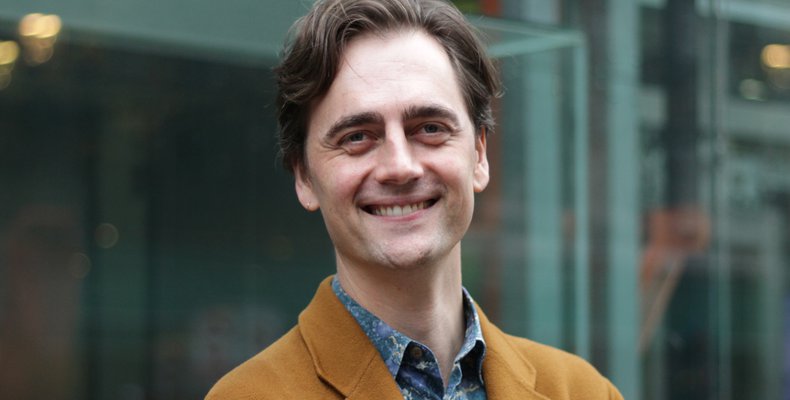
Bio
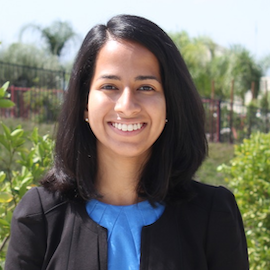
Bio
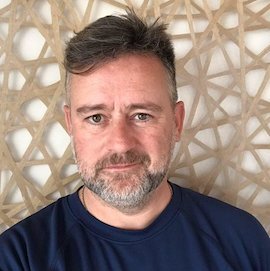
Bio
Closing Remarks
2:45pm - 3:00pm PDT
But wait, there's more! Join our MC, Chris Walker, one last time to hear who won the Scavenger Hunt, the LIYT Next Pitch Contest and the Digital Comprehensive Sexuality Education Innovation Challenge. Plus find out how you can play a key role in shaping the future of YTH Live Global!
Speaker

Bio
Reintegration of Teenage Mothers Back Into The society initiative
Teenage pregnancy is a worldwide social and medical problem that has been around for a while though low and middle-income countries like Kenya have higher rates due to various factors. Kilifi county is among the counties with the highest numbers of teenage mothers. Sadly, most of the teenage mothers are not taken back to school and are made to be either house wives, second or third wives, domestic workers, sent to work at Export Processing zones (EPZ) within the project area, or, sent to live with relatives. We are taking the teenage mothers back to school and taking care of their kids in our baby day care center. The teenage mothers will be enrolled in primary school, secondary school or vocational training depending on their needs. Bicycles will be given to them to use to commute from home to school to minimize interactions with potential predators on the road.
Speaker
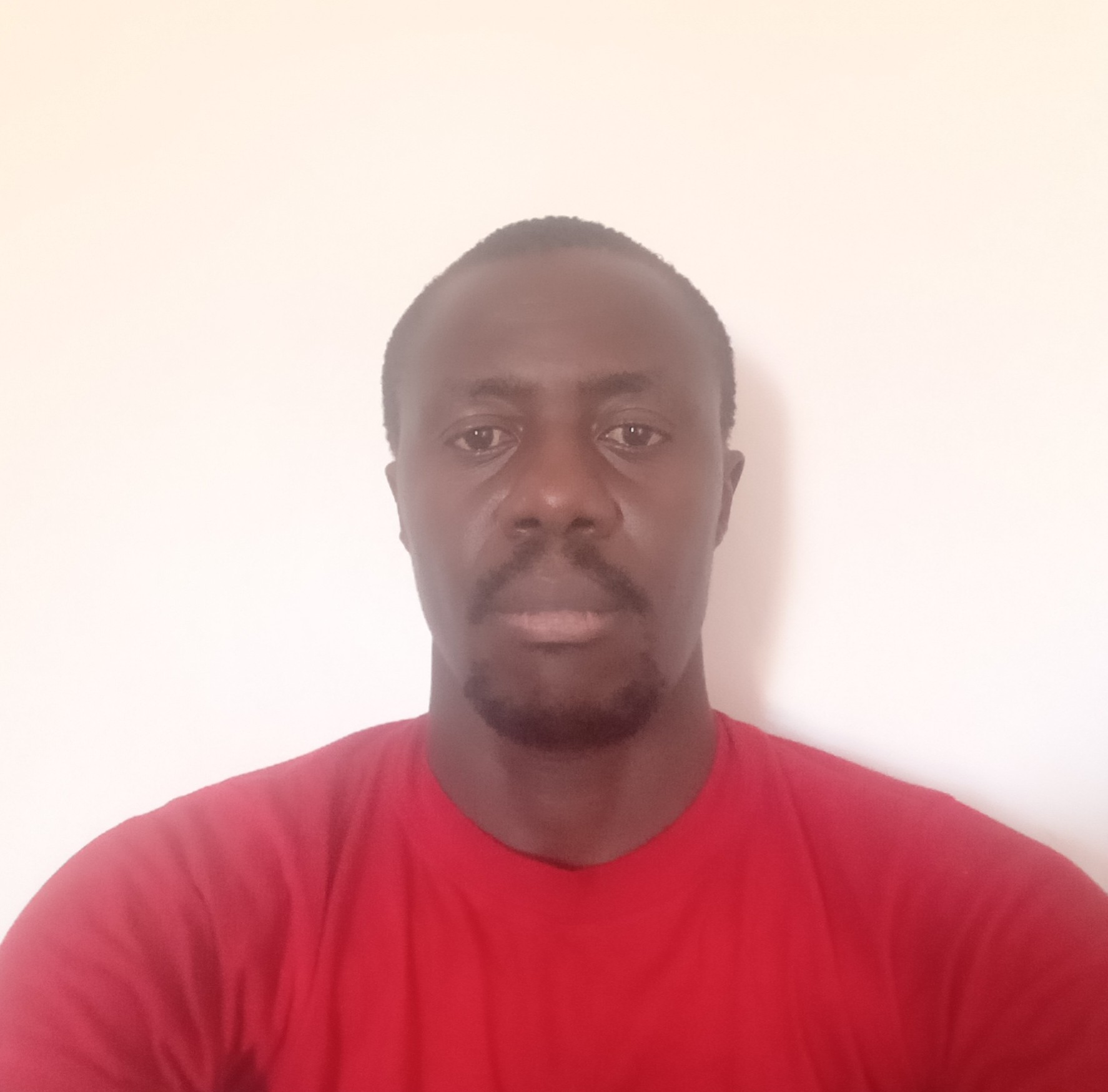
Bio
Young Professionals in Public Health Programme: A Virtual e-Learning Model to Improve Capacity and Practice for Public Health Workforce
Young people are an integral part of the development of the public health sector of any society. The West African Institute of Public Health is building and growing the voices of young people to become strong advocates of a better health system by equipping them with knowledge around health literacy in order to achieve universal health coverage. The low level of health literacy in Africa can only be solved when young people are equipped to become change agents and problem solvers towards public health issues. To date there have been over 600 participants from over 30 countries in the YPPH programme.
Speaker

Bio
"Our Voices Through Our Lens": A PhotoVoice Project
"Our Voices Through Our Lens" is a PhotoVoice project that highlights the unique experiences of youth in out-of-home care in North Carolina. PhotoVoice is a qualitative research method that uses photography to give members of a community an opportunity to shed light on issues through their lens. During this workshop, presenters will share photos from the youth that address overall themes of the project: foster care and justice-involved youth's perceptions about sexual and reproductive health, and barriers that marginalized youth face in their communities that keep them from accessing sexual and reproductive health care services. Presenters will also share the experiences of the youth participants, challenges and lessons learned from engaging youth in a PhotoVoice project.
Speakers
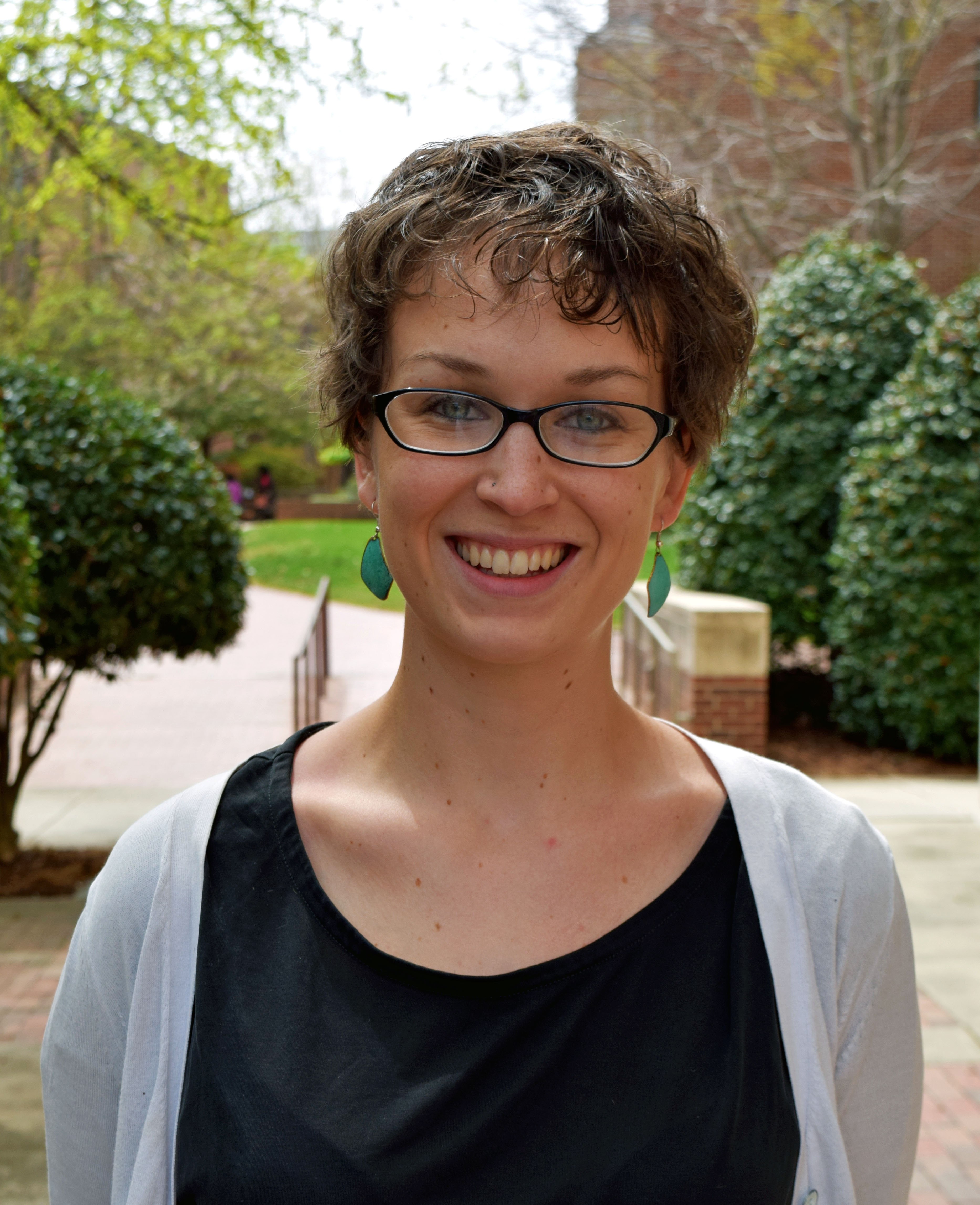
Bio
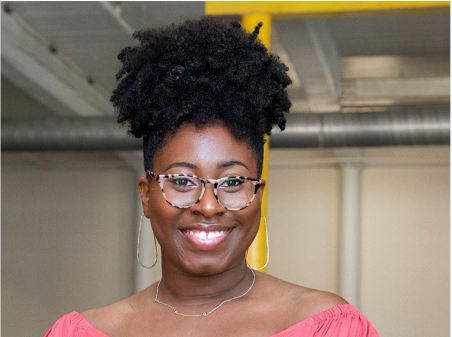
Bio
Frankly. Podcast Listening Session
Frankly. is a seven-episode podcast series exploring the lived experiences of Black and Latinx young people on Chicago’s South and West sides. Co-produced by Chicago youth and the Center for Interdisciplinary Inquiry and Innovation in Sexual and Reproductive Health (Ci3), the podcast centers the voices of young people who have been marginalized due to their race, gender, and/or sexual orientation as they navigate various social environments, develop their identities, and understand the world around them. Frankly. aims to contextualize these stories by examining the ways in which structural barriers and institutions impede young people’s overall health and wellbeing. In this session, we’ll listen to Episode 3: Filling the Gaps in Sex Ed, which includes stories from young people about their experiences with high school sex ed curricula and features the work of community organizations practicing comprehensive, innovative sex-ed approaches.
Speaker
Bio
Youth Health Equity and Public Healthcare Providers
The HCD intervention is a behavior change intervention for health-care providers which aims to improve quality service provision for SRHR services for young clients. The Naya Qadam project adapted the HCD solution with the aim to inculcate a new methodology of unbiased, empathetic, and non-judgmental SRH/contraceptive services towards young clients, regardless of age, marital status, and parity with the harmonization of modern digital needs and recognition. The HCD intervention is a comprehensive approach which revolves around the six principles of unbiased care (referenced above). These principles act as a guiding framework for the practice and assessment of success for the continuum of provider learning, quality service delivery, and the continuous improvement in sexual and reproductive health services and the rights of youth.
Speakers
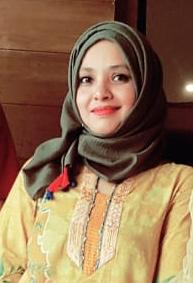
Bio
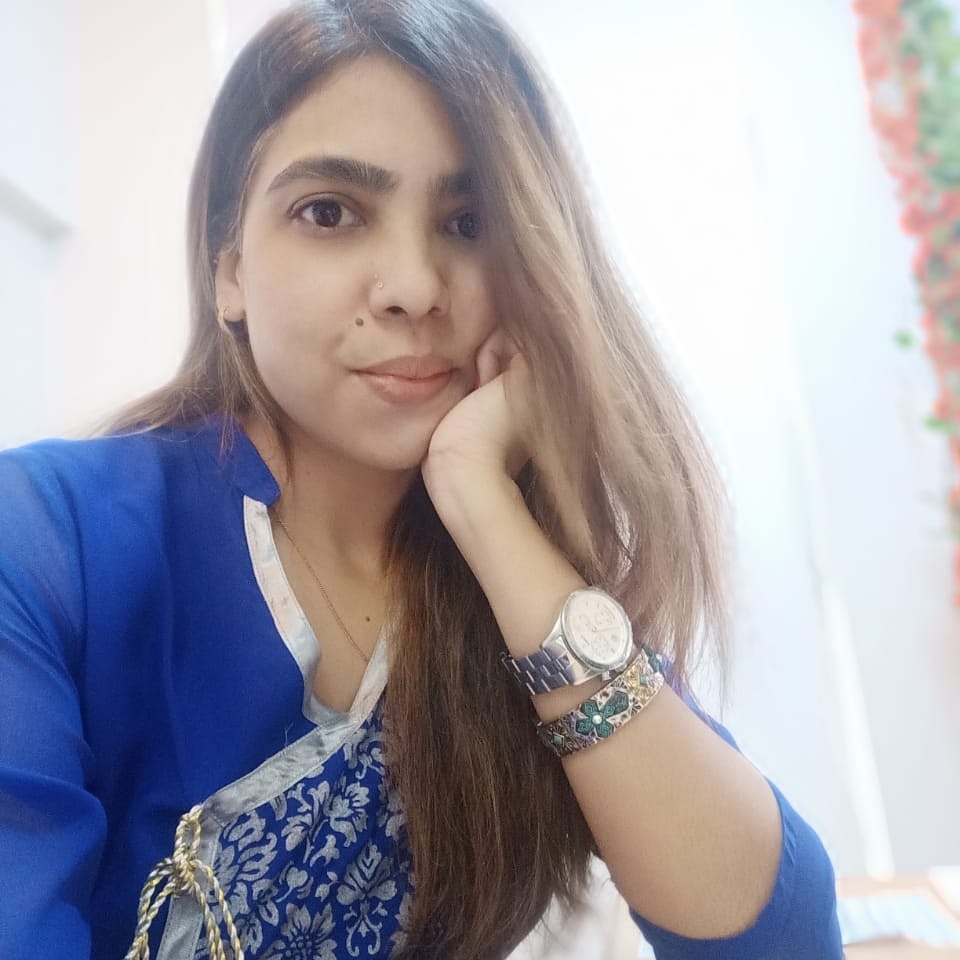
Bio
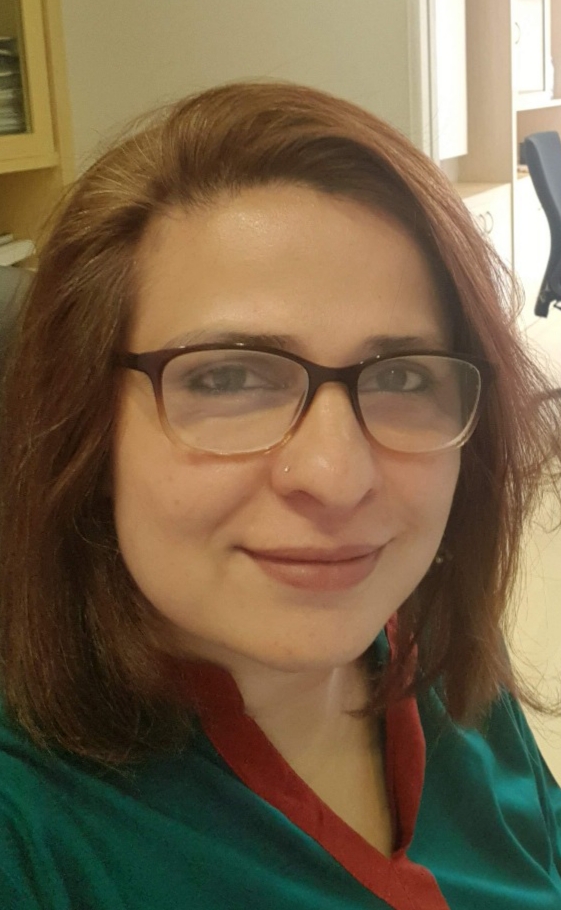
Bio
Beyond Stereotype Training & Learning Approaches: Reaching Youth Sexual Reproductive Health /contraceptive Clients through Trained Providers
Limitations brought new challenges, along with new ways of thinking, that encouraged flexibility and adaptability in work style. This presentation targets actors eager to learn new approaches and go beyond limitations to achieve their objectives in a successful manner. Pathfinder International will share successes and learnings from its innovative digital training and mentorship of community midwives (CMW) by leveraging existing digital platforms to ensure continued access to the sexual and reproductive health/contraceptive services for young women, aged 15 – 24 years. The presentation will benefit health professionals, program implementers, and decision makers to use digital platforms, adopt innovative training and learning methods, and provide continuous mentorship to service providers who reach young women during shocks or crises.
Speakers
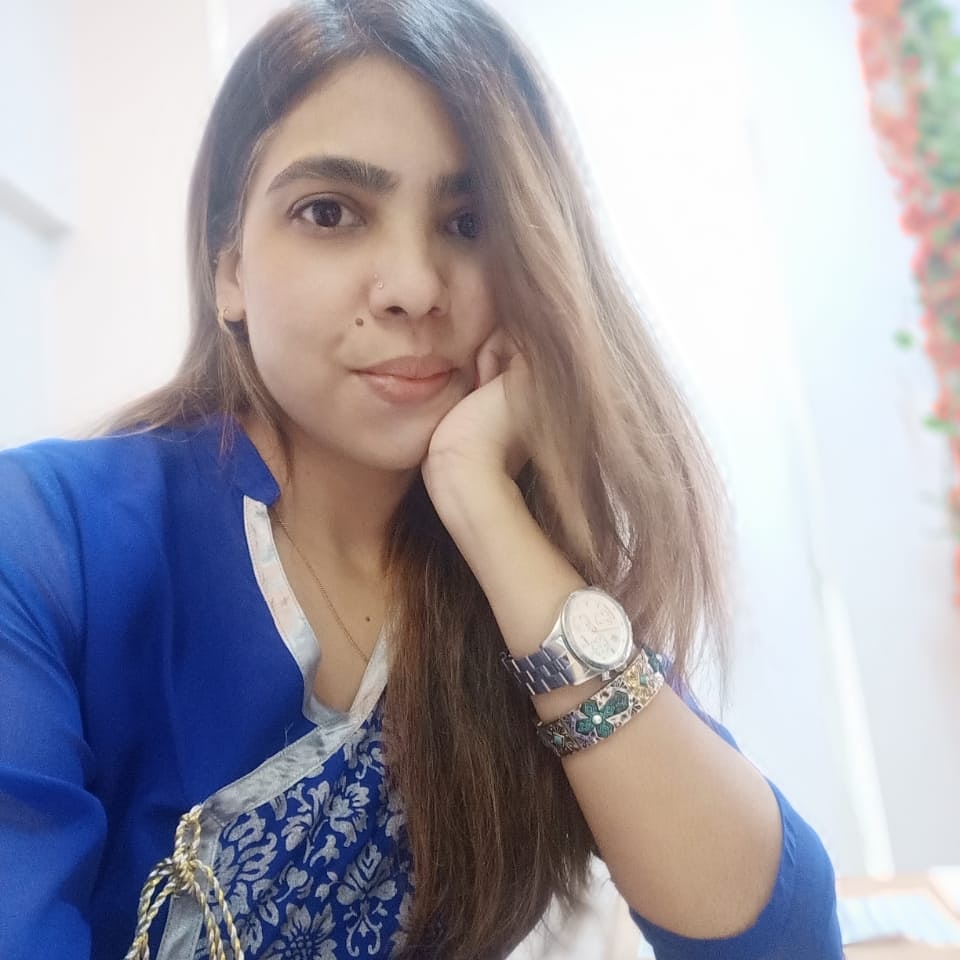
Bio
%20Picture.jpg)
Bio
Masters of Technology: Youth Helping Themselves to Be Responsible Technology Citizens
Do you feel like technology is taking over your life? Like it knows what you want or feel before you know what you want or feel. Does it suck you in and consume hours of your day? Do you find it hard to break away from technology or tame the beast? Do you want to become a master of technology? Join us for an interactive workshop session, where we will read and reflect on key sections of Masters of Technology - a fictional tale about a group of young people who must learn to overcome a technology that takes over their lives in real life and in the virtual world.
Speaker
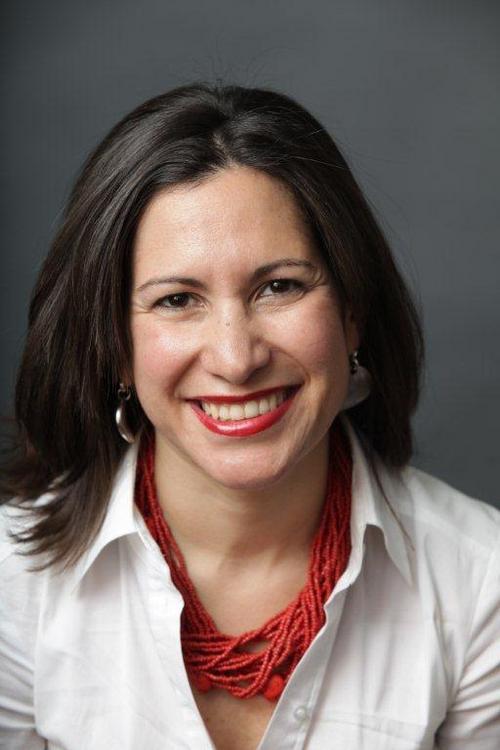
Bio
Dzidzo paDen | Imfundwe'ndlini (translation Learn from Home)
The covid-19 pandemic has affected the normal way of life including how school and educational institutions operate. In 2020, out of approx. 4,5 million learners in Zimbabwe only 916 155 (20.4%) had access to the internet and online learning. This meant that 4 in 5 students were at a disadvantage and not learning. A high school student and a university coding group collaborated with UNESCO ROSA and the Zimbabwe government to solve this problem. Leveraging the increased adoption of the WhatsApp platform in the country, a chatbot was developed to increase student access to resources. Dzidzo paDen | Imfundwe'ndlini has provided access to study notes and practice exam resources to over 36000 students. The bot also provides access to health education resources (particularly CSE) integrated within various learning areas/subjects in the curriculum.
Speakers
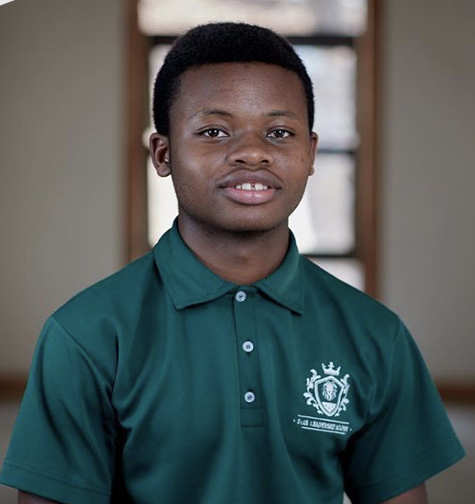
Bio

Bio
An innovative online approach to youth sexual health education and access to services through a community collaboration
Combatting the epidemic of sexually transmitted diseases (STDs) among youth calls for innovative, youth-centered health communication and social media strategies, and multi-sector collaboration between schools, community agencies and providers. Implementation of a comprehensive and inclusive sexual health campaign must be accompanied by a concerted effort to develop collaborative relationships with youth-centered providers, engage youth at all stages, and utilize technology to meet adolescents where they are—online—to improve access to sexual health education and services. This session will provide a model and tools for how communities can address these needs.
Speakers
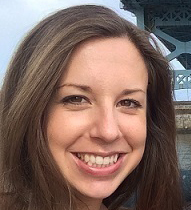
Bio
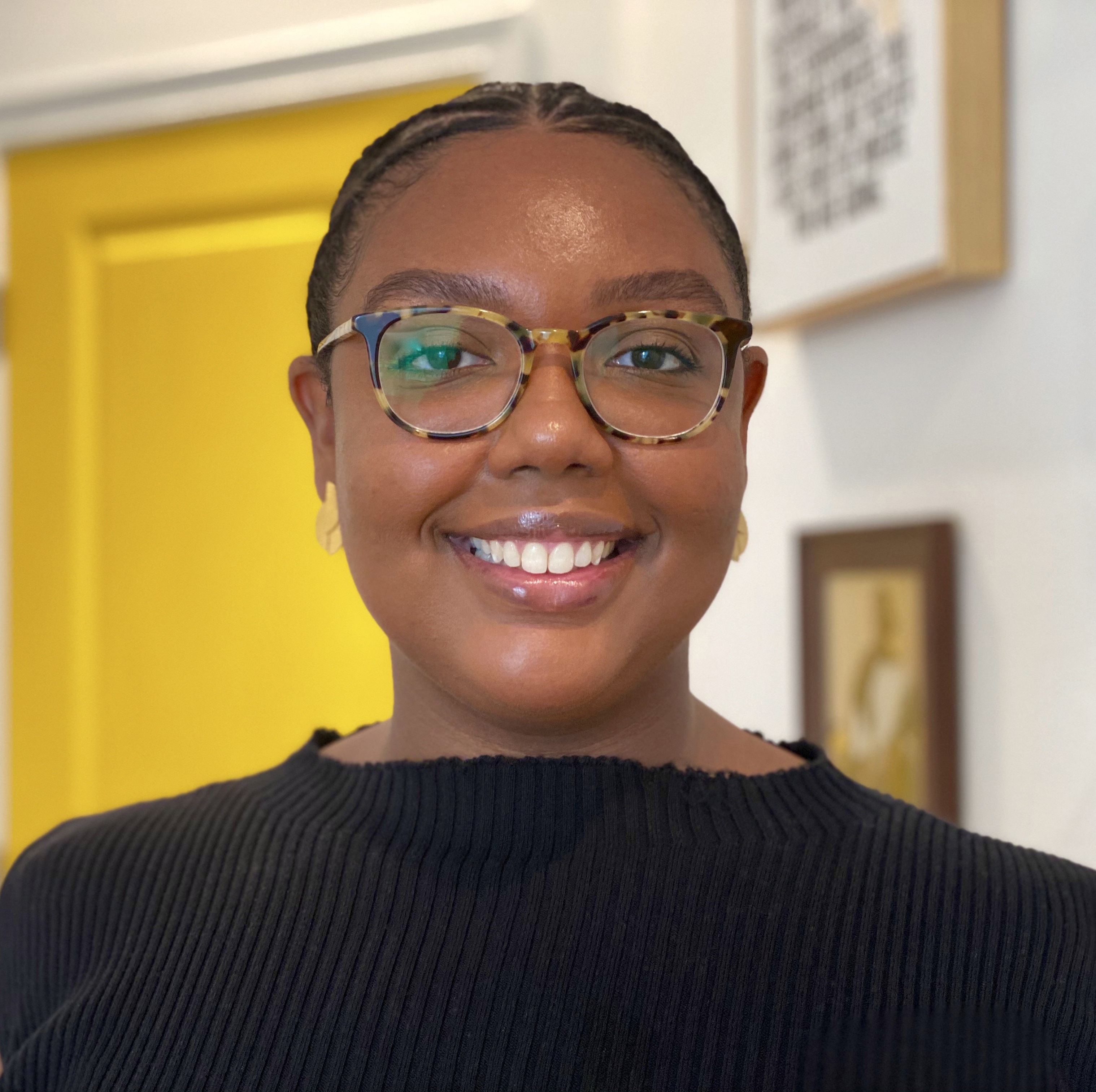
Bio
Making Sense of the Digital Mental Health Landscape: An Overview of Products on the Market
This session will highlight the different categories of companies creating technology to deliver scalable solutions to improve youth mental health and wellbeing. We will discuss these categories in depth and highlight how the landscape of digital mental health tools is evolving to better meet the demands of young people.
Speakers
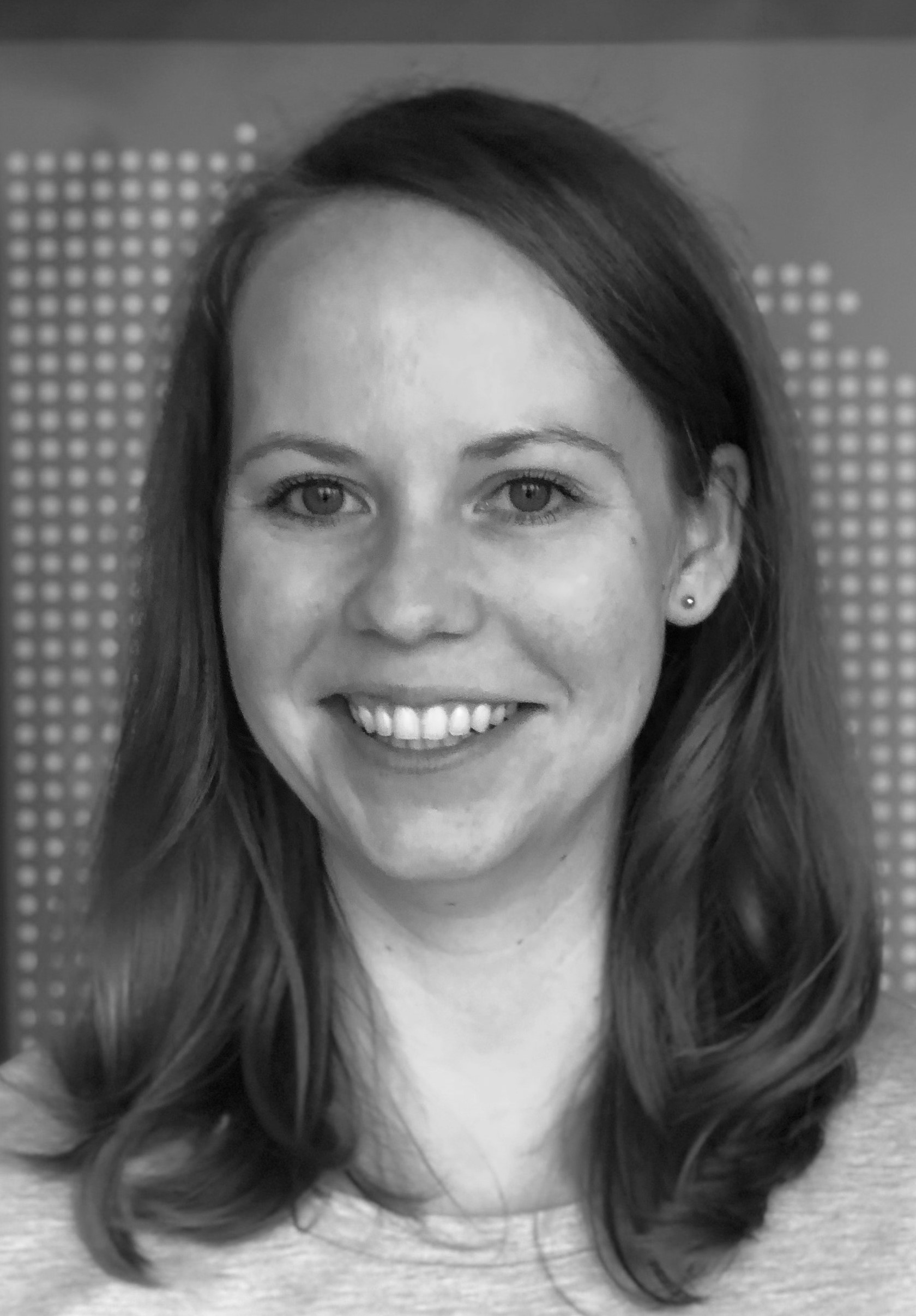
Bio
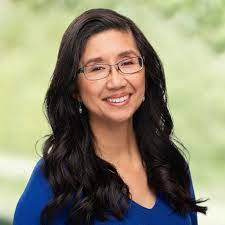
Bio
Online by design: Lessons learned by failing forward to build a virtual mentorship network of HIV prevention advocates
Let’s face it: face-to-face networking is the ideal way to practice mentorship. But, in a world of pandemics, financial concerns, and increasing anxiety surrounding planetary health, the answer to face-to-face networking may just be a matter of moving it all online. Easier said than done. In this breakout session, we will talk through the highs and lows of creating an entirely online mentorship network in an effort to build a real, sustainable community.
Speaker
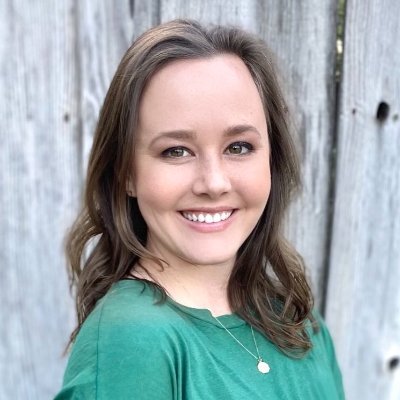
Bio
Using Audio Devices to Deliver Adolescent Programming in a Migratory Pastoralist Setting in Ethiopia: Lessons Learned from Act With Her
How would you reach very young adolescents with health messages if they didn't have access to the internet or cell phones, couldn't read well, and were constantly moving from place to place with their families? In this presentation, Pathfinder and CARE will share our experience implementing the Act With Her project in the Afar region of Ethiopia, where many communities live a migratory, pastoralist lifestyle. We will present on our experience using Amplio's battery operated Talking Book device to record curriculum sessions on a variety of topics relevant to adolescent health and wellbeing (including sexual and reproductive health, menstrual hygiene management, economic empowerment, nutrition, and education). During our presentation, we will share the challenges we faced, the perspectives of staff and communities on the talking book, and the lessons we learned from working in Afar. Join us to learn about adapting to reach very young adolescents in remote, pastoralist settings.
Speakers
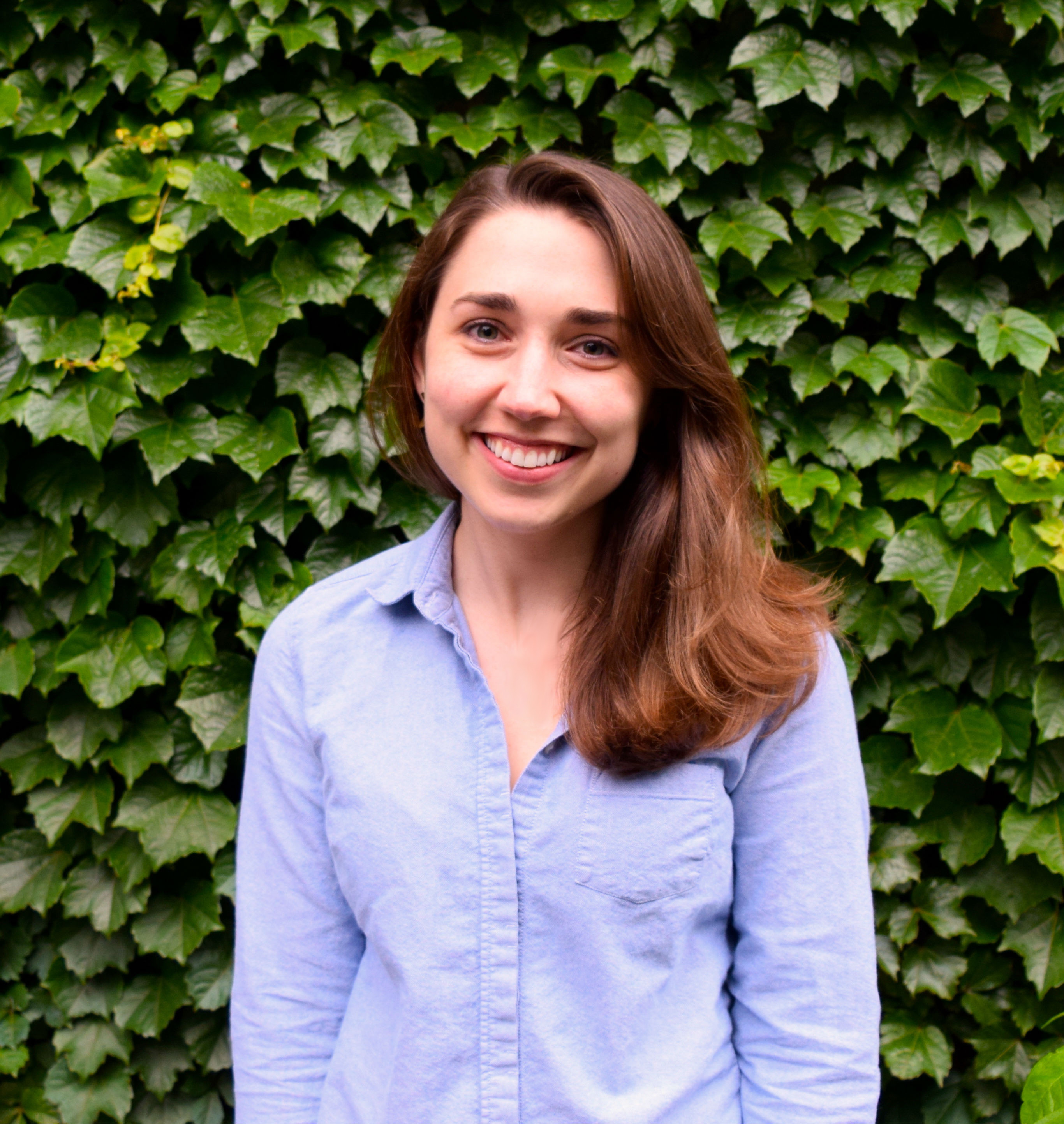
Bio
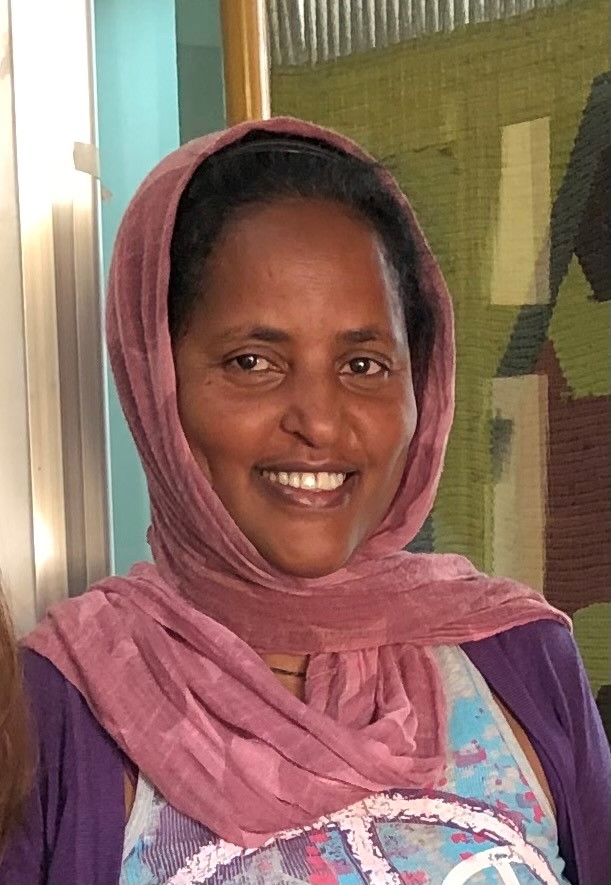
Bio
Bio
PrEP Your Step: Implementing an Online Crowdsourcing Contest to Engage Washington, DC Youth in pre-exposure prophylaxis (PrEP) Promotion during COVID-19
This session will share best practice recommendations for meaningful youth engagement, focusing on the PrEP Your Step crowdsourcing project that examines the use of online contests to improve pre-exposure prophylaxis (PrEP) campaigns for young Black and Latinx men who have sex with men (MSM) and women in Washington, DC (DC). Participants will learn about specific youth-centered, community-engaged strategies utilized during the COVID pandemic to develop a customized, web-based platform to promote HIV prevention to DC youth. This session will discuss the potential that youth-informed, online crowdsourcing campaigns have on improving the acceptability and relevance of PrEP promotion materials and providing innovative solutions that reflect local culture and empower youth to make sexual health decisions about themselves, for themselves.
Speakers
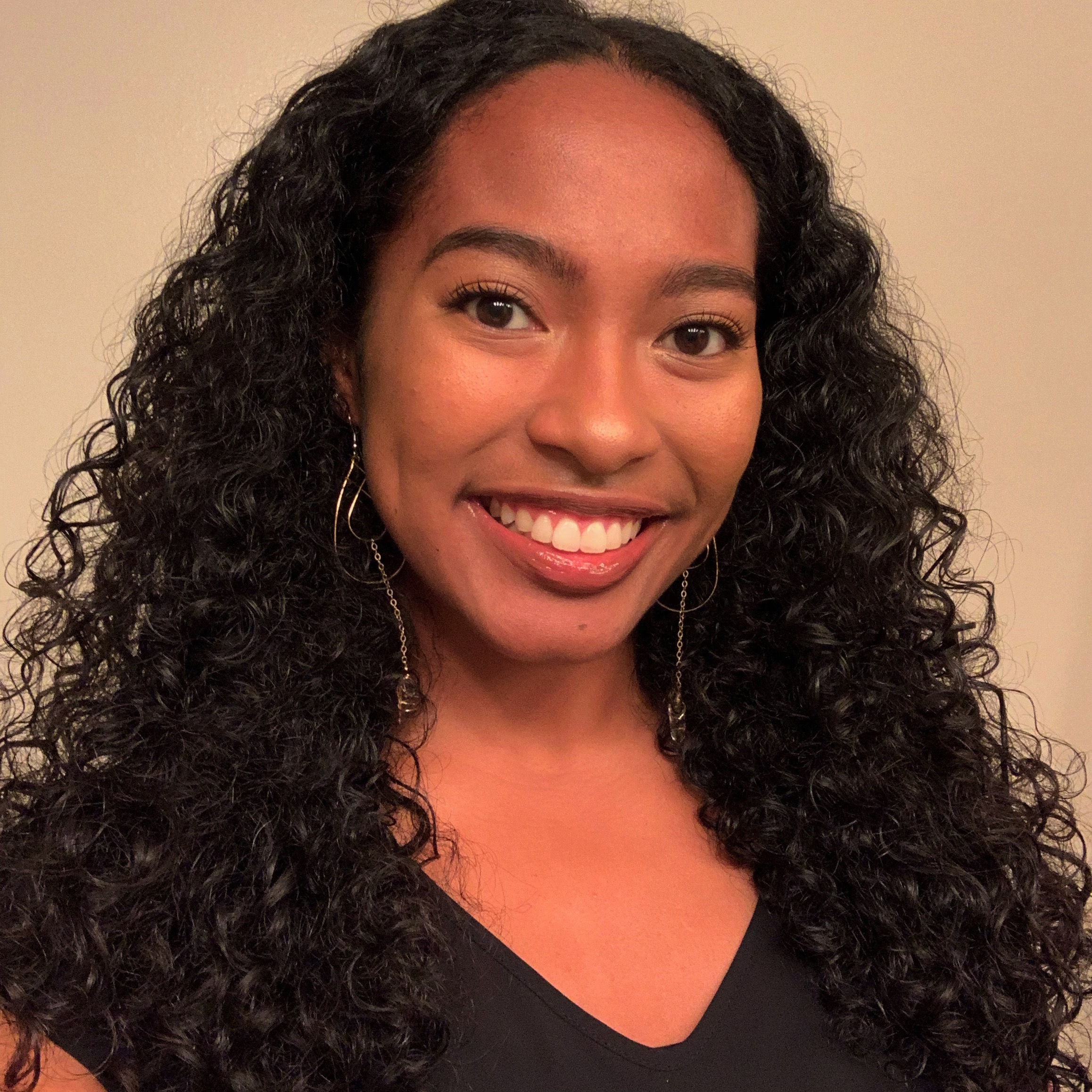
Bio
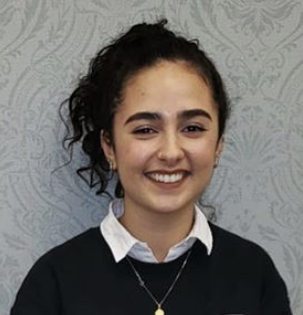
Bio
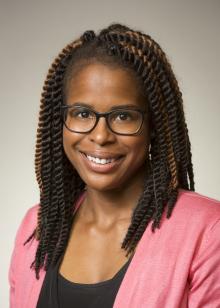
Bio
Using human centered design and digital technology to create awareness on SRH services among adolescents in BurkinaFaso Billi NowNow Project
Billi Now! Now! (BNN! ) is Planned Parenthood’s Youth Engagement pilot project in Burkina Faso whose objective is to build a vibrant youth-led movement that puts youth at the center of their own SRHR messaging, and which leverages digital technology and youth culture to engender healthy SRHR behavior among youth; build evidence for advocacy for increased access to youth SRHR services, and equip youth with tools to safeguard their economic future. (BNN!)— an allusion to the one billion young people on the planet and the urgency of their needs. ‘Billis’ — the young people driving the program. The BNN! project has a rallying call of: “a billion young people, in charge of their bodies, culture, and destiny.” The aim of the project is to drive positive catalytic SRHR messaging on digital platforms and actions driven by young people to increase access and utilization of youth sexual reproductive health services.
Speaker
.JPG)
Bio
Using Technology to Improve Youth Access to Reproductive Health Information in Madagascar.
Tanora Fiamatra Aho (TAFA) or Role Model is part of the Accessible Continuum of Care Services Sustained (ACCESS) program in consortium with the Johns Hopkins Center for Communication Programs (CCP). TAFA is a social media and digital campaign aimed at youth 15-24 in 13 regions of Madagascar. The campaign’s goal is to have more access to accurate information about their reproductive health (RH) to help them increase their RH knowledge and make informed decisions about their health. TAFA partners with the public and private sector to support vulnerable youth populations without internet and mobile access. The TAFA Facebook content ranges from modern contraceptive methods, gender-based violence, STI prevention, menstrual hygiene how-tos, quizzes, and interactive challenges. The TAFA app, launching in May, will offer more detailed educational material and personalizable tools, including a period tracker and supportive hotline phone numbers.
Speakers
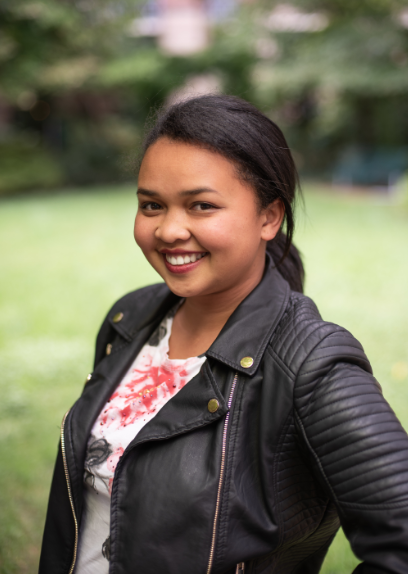
Bio
Bio
TabuTabu: Sexuality Education Programs Co-created With and For Underserved Communities in Latin America
At TabuTabu, our development process centers on co-creation. By involving local learners and our partner NGOs as we construct the sexuality education programs, we ensure that the final product is representative of the communities’ realities, and relevant to local needs. Through a case-study of our collaboration with adolescents in Favelinha, one of Rio de Janeiro's (Brazil) most economically and geographically-marginalized urban periphery favelas (shanty towns), we present how community involvement is shaping a sexuality education program that is for them, by them. TabuTabu is prototyping a model that consists of: i) a tailor-made app in which learners meet and answer questions about characters who explore social challenges related to sexuality; and ii) complementing group activities, for learners to apply the learnings interpersonally. Beyond expanding adolescents’ understanding of sexuality and SRHR issues in their community, the program fosters self-reflection, empathy and mutual respect as a means for social change.
Speaker
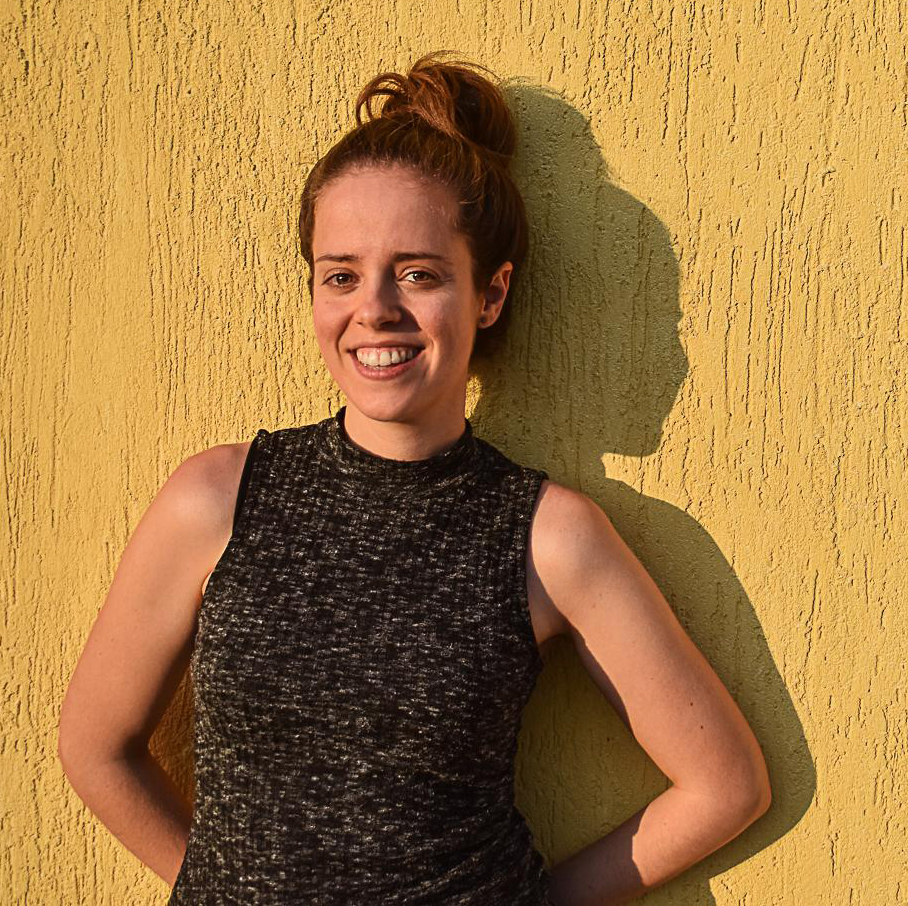
Bio
Reintegration of Teenage Mothers Back Into The society initiative
Teenage pregnancy is a worldwide social and medical problem that has been around for a while though low and middle-income countries like Kenya have higher rates due to various factors. Kilifi county is among the counties with the highest numbers of teenage mothers. Sadly, most of the teenage mothers are not taken back to school and are made to be either house wives, second or third wives, domestic workers, sent to work at Export Processing zones (EPZ) within the project area, or, sent to live with relatives. We are taking the teenage mothers back to school and taking care of their kids in our baby day care center. The teenage mothers will be enrolled in primary school, secondary school or vocational training depending on their needs. Bicycles will be given to them to use to commute from home to school to minimize interactions with potential predators on the road.
Speaker

Bio
Improving Youth Reproductive Health Services Using mobile phone-based applications in Low Resource Settings: Lessons from implementation in Uganda
Ensuring availability of reproductive health commodities for the youth reproductive health is a challenge in Uganda. Problems across the supply chain system among other factors limit the provision of quality youth reproductive health services.Mobile phone-based applications can improve the availability and access of youth reproductive health services. However, it is important that the development and use of the mobile phone-based applications focus on integrating the functionalities, youth reproductive health needs the youth with the available services. Our session will show the strides health technology has made to improve access to contraception and reproductive health services and how stakeholders can contribute to health technology.
Speakers
Bio
Bio
“We are more attracted to social media now”. A qualitative exploration of wellness amongst youth in Fiji
Literature have indicated that the adolescent age group is amongst, 77 % Fiji’s social media users. The extensive use of social media indicates the need to assess impacts of social media on adolescent health and well-being. This study aimed to explore high school students' perceptions of wellness and also their perspective on the role of social media on adolescent wellness.
Speaker
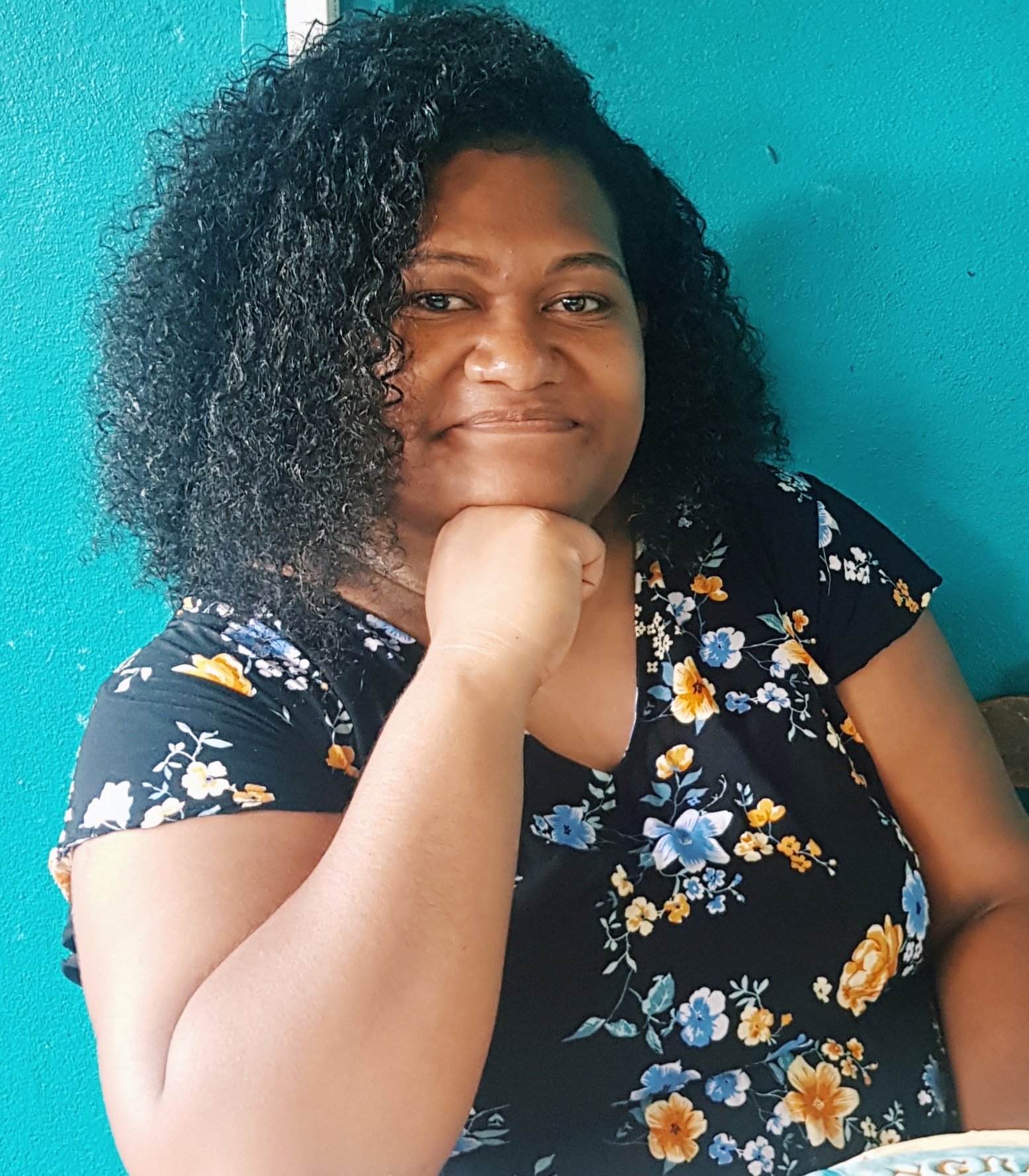
Bio
M.D.igital 2021: National Telehealth Convention “The Role of Medical Students in the Global Digital Health Strategy 2020-2025”
The pandemic propelled Digital Health into the mainstream media, nominating it as a game changer for healthcare access. The impetus inspires us to build on existing platforms by asking, “How can WE help?” M.D.igital 2021 serves to align regional-national digital health activities with the Global Digital Health Strategy 2021-2025 and relate them to the new roles of medical professionals and students, corroborate digital health innovations that will complement existing and newly created digital health networks and solutions, and gain knowledge on eHealth standardization and interoperability, digital transformation across the health ecosystem, and evidence-based digital health interventions. Learn about highlighted recommendations and insights synergized during the M.D.igital 2021: National Telehealth convention. It is up to us, the younger generation, to continue what our forerunners started and ensure that their efforts will not go to waste - the future is ours to design and live out.
Speakers
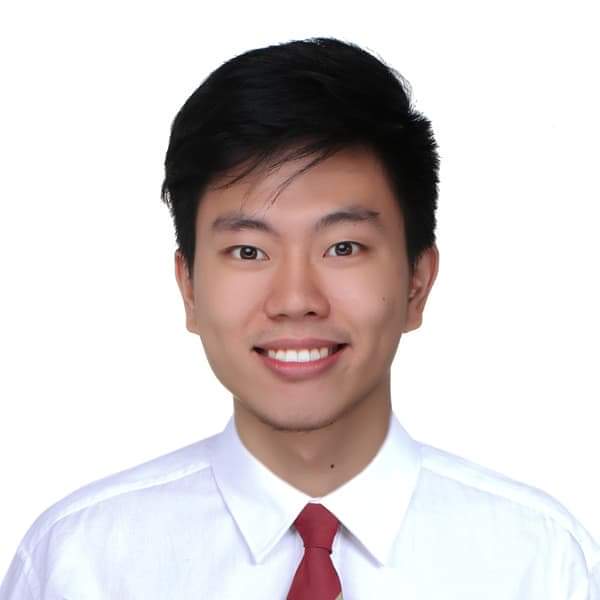
Bio

Bio
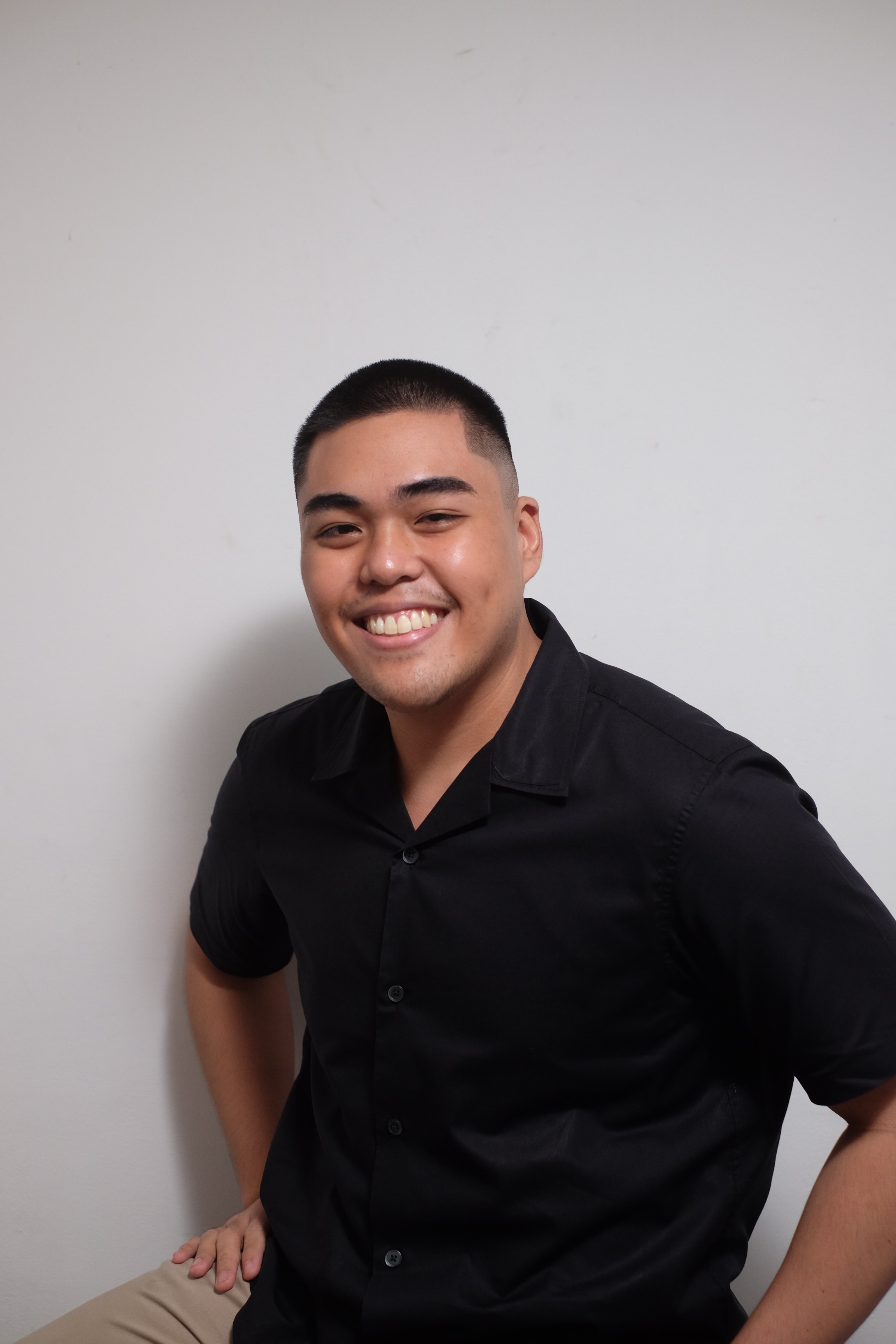
Bio
Comprehensive Sexuality Education (CSE) Learning Platform
Eastern and Southern Africa (ESA) region has 158 million young people aged 10-24; a number that is expected to rise to 281 million by 2050. Better education and public health measures will be hugely beneficial to the health and development of these young people. For most adolescents and young people, this period of their lives is a time of enormous vibrancy, discovery, innovation, and hope. Yet it is also the time when they face many sexual and reproductive health (SRH) challenges, including early and unintended pregnancy, HIV and sexually transmitted infections (STIs), gender-based violence (GBV) and child marriage – all of which can undermine education opportunities, especially for girls, and affect future health and opportunities. The CSE learning platform seeks to invest in the education and health of adolescents and young people at the right time ensures that they transition into healthy adults who can contribute productively to the economy.
Speaker
Bio
Strategies to recruit, retain, support, and engage Youth Co-Investigators in community-engaged HIV research and public health programs
As part of the Next Gen PrEP research project, a seven member youth co-investigator (YCI) board was convened to co-develop and implement research activities, including the creation of survey and interview tools, conducting and analyzing participant interviews, and offering a youth-driven lens to inform programmatic and policy recommendations regarding the next generation PrEP formulations (microbicides, implants, inserts, bNAbs). As part of the study implementation, we elicited YCI’s feedback on their experiences in the project. We discuss strategies and techniques to recruit, retain, communicate with, and support the professional development of YCIs in community-engaged research and public health programs. Noting youth involvement in each step of our research, we provide recommendations to promote youth’s sense of commitment, growth, and ownership in HIV research.
Speaker
Bio
Youth Leading the Way to an AIDS-Free Generation Z: A Digital Call to Action
Because adolescents and youth play a crucial role in determining the current and future state of the HIV epidemic, the Elizabeth Glaser Pediatric AIDS Foundation worked alongside young leaders to develop two digital resources to drive local dialogues and shape youth-led responses on the ground. The first, called the AIDS-Free Generation Z: A Call to Action for Improving Youth-Focused HIV Programming, describes EGPAF’s work toward ending HIV and AIDS among Generation Z, describing key lessons and recommendations in effectively reaching young people. The second, called Lead the Way to an AIDS-Free Generation Z, is an accompanying youth-centered conversation guide and call-to-action for adolescents and youth living with, or affected by, HIV. The poster intends to outline the approach taken in the development and virtual dissemination of these digital tools in collaboration with young leaders throughout.
Speakers
Bio
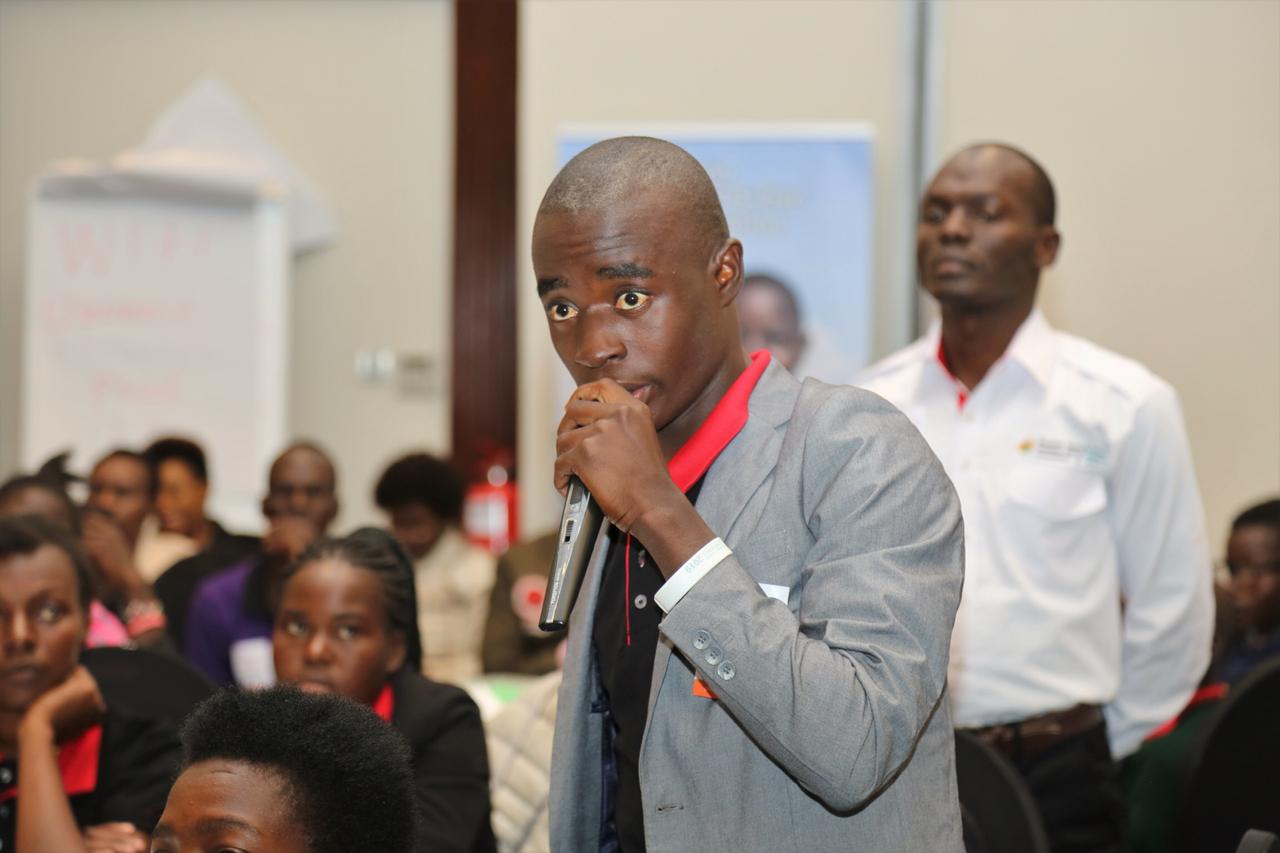
Bio
Friendly words for friendly times. Kinky words for kinky times. How Wingman Suggestive Keyboard builds intimacy while keeping it hot.
Wingman is the first suggestive smartphone keyboard that helps young people talk about the hard stuff. Using machine learning, Wingman evaluates the suggestiveness of sexts and support users build intimacy with partners using the right words and the right time. Friendly words for friendly times, sexy words for sexy times, and kinky words for kinky times. Born out a design thinking process, Wingman sex-positivity aims to helps young people take their digital foreplay to the next level by helping partners establish clear expectations, learn about desires, safer sex practices, and boundaries before they meet face to face.
Speakers
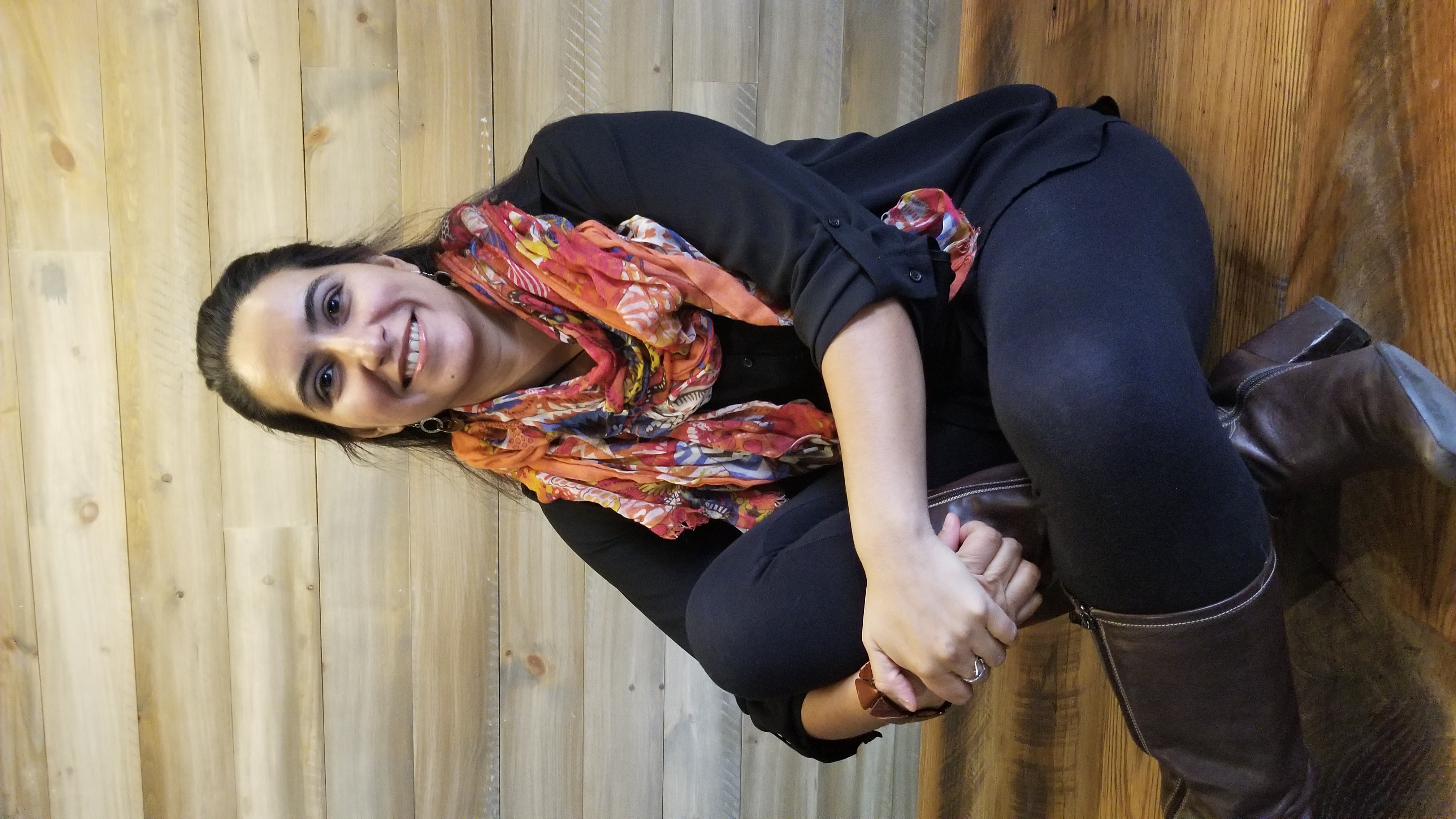
Bio
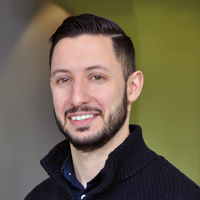
Bio
